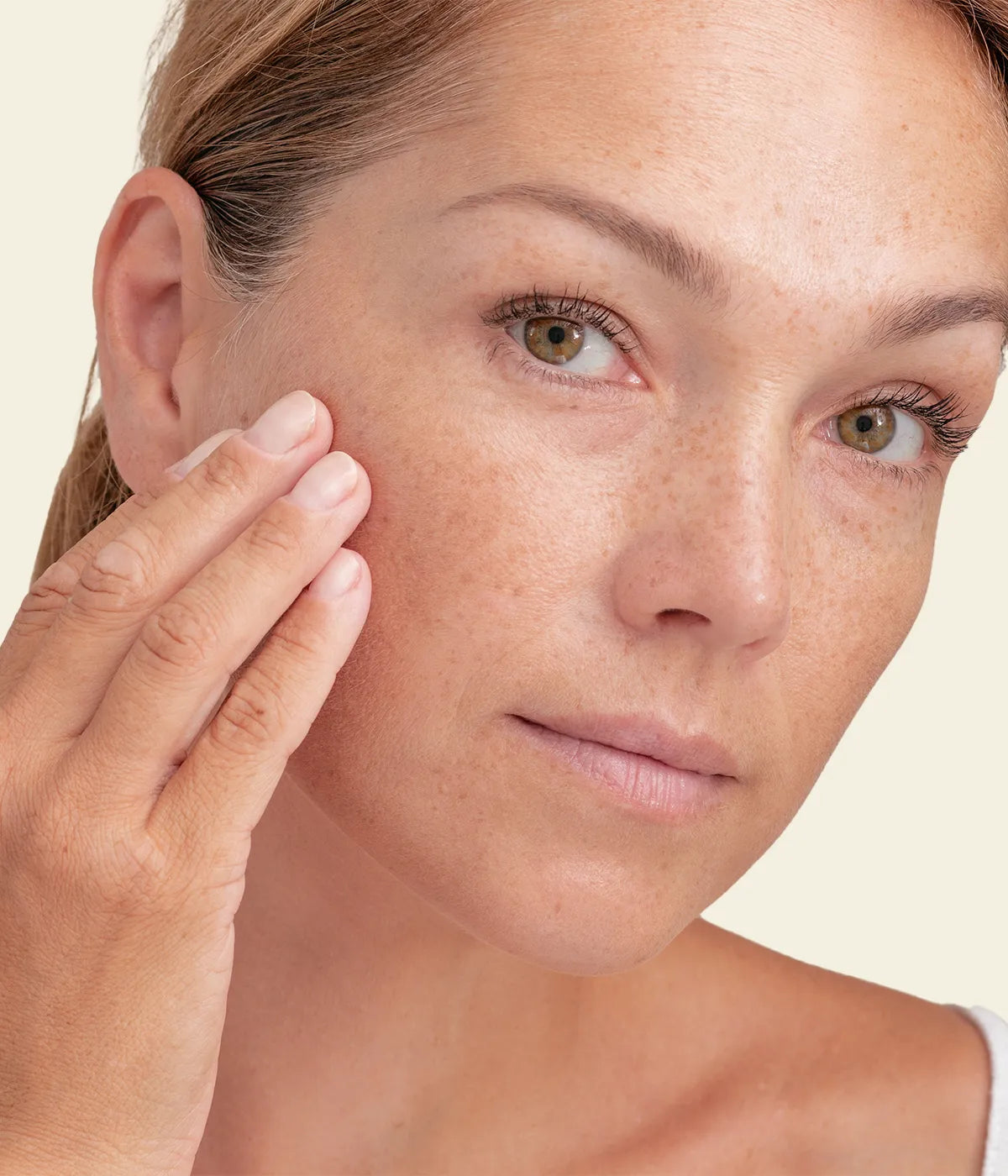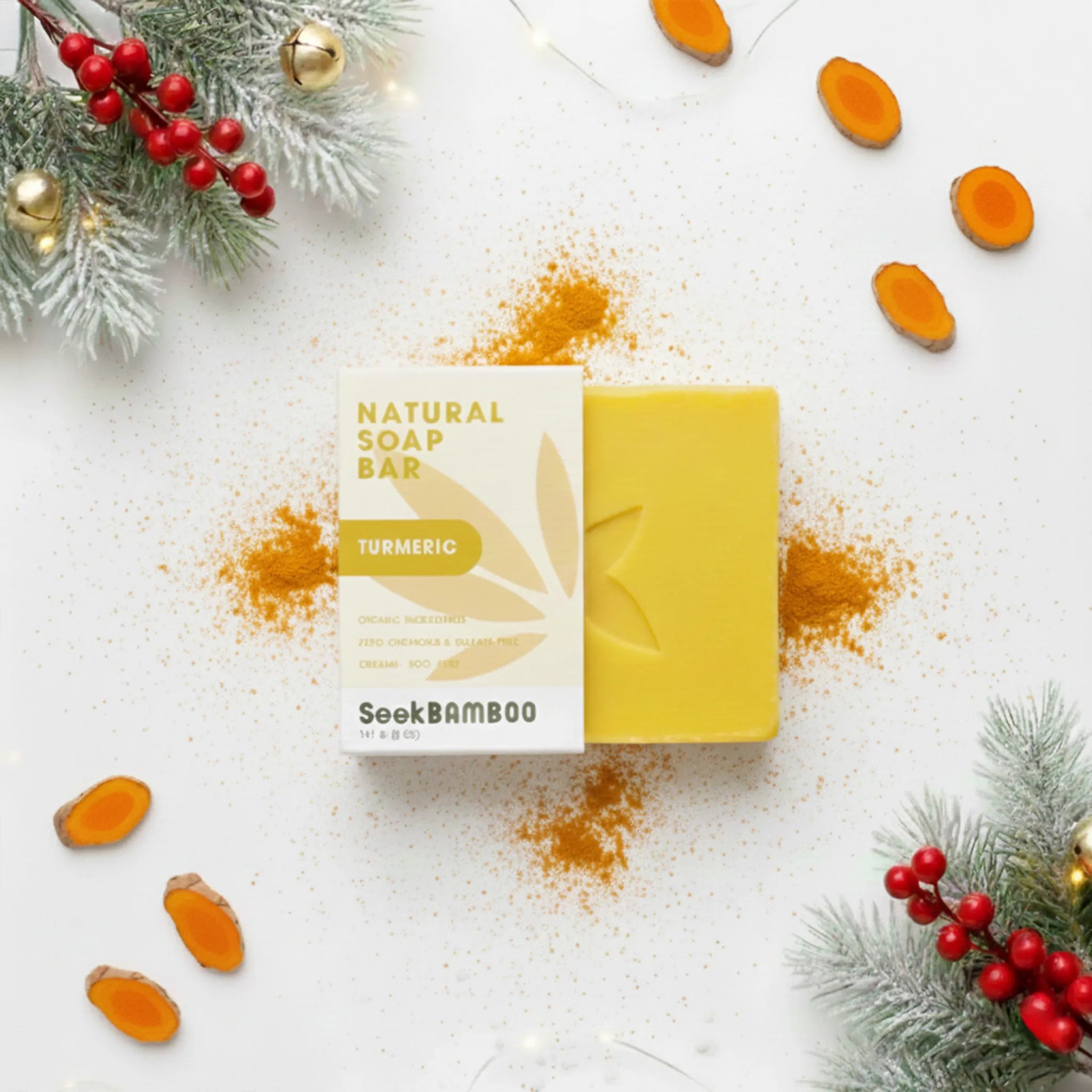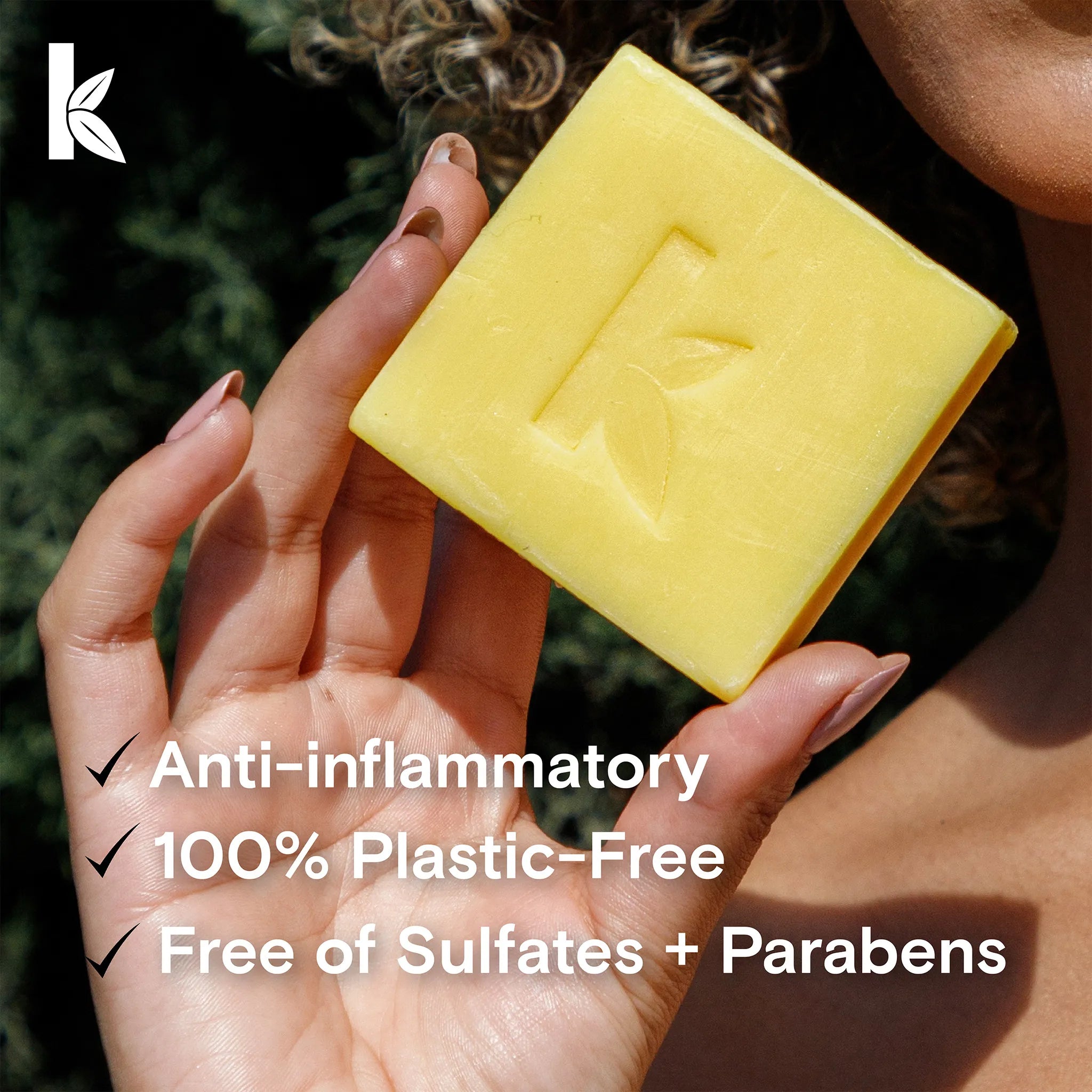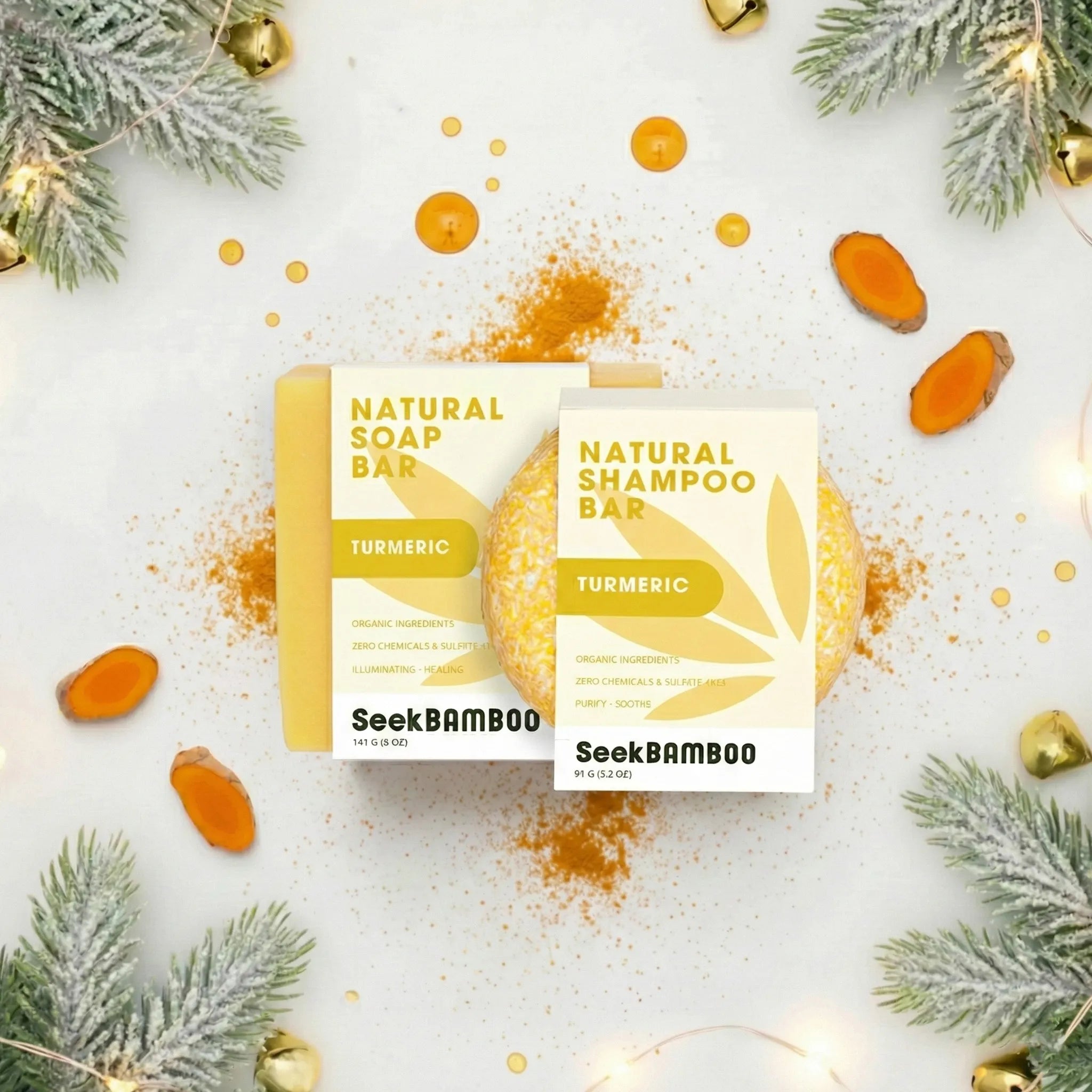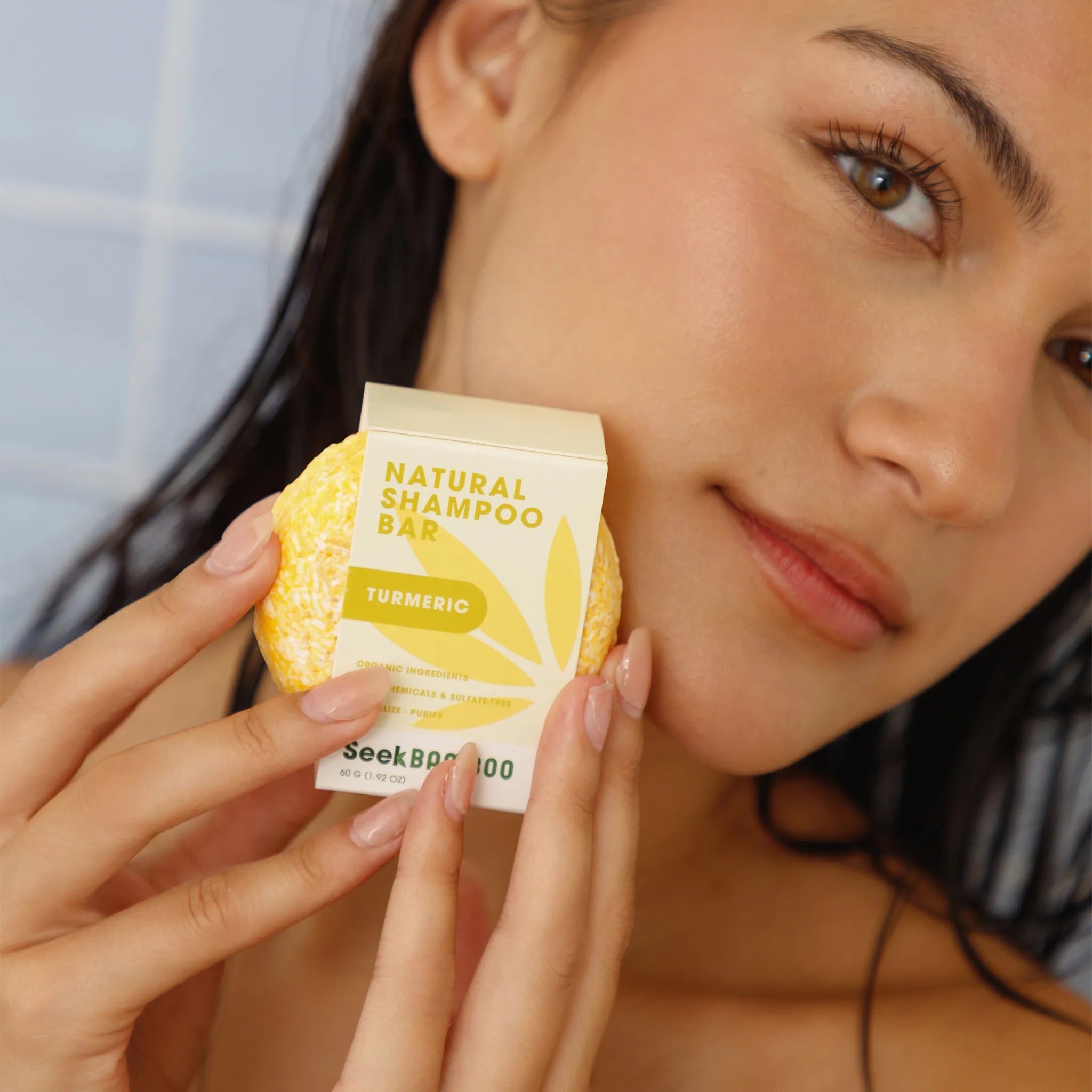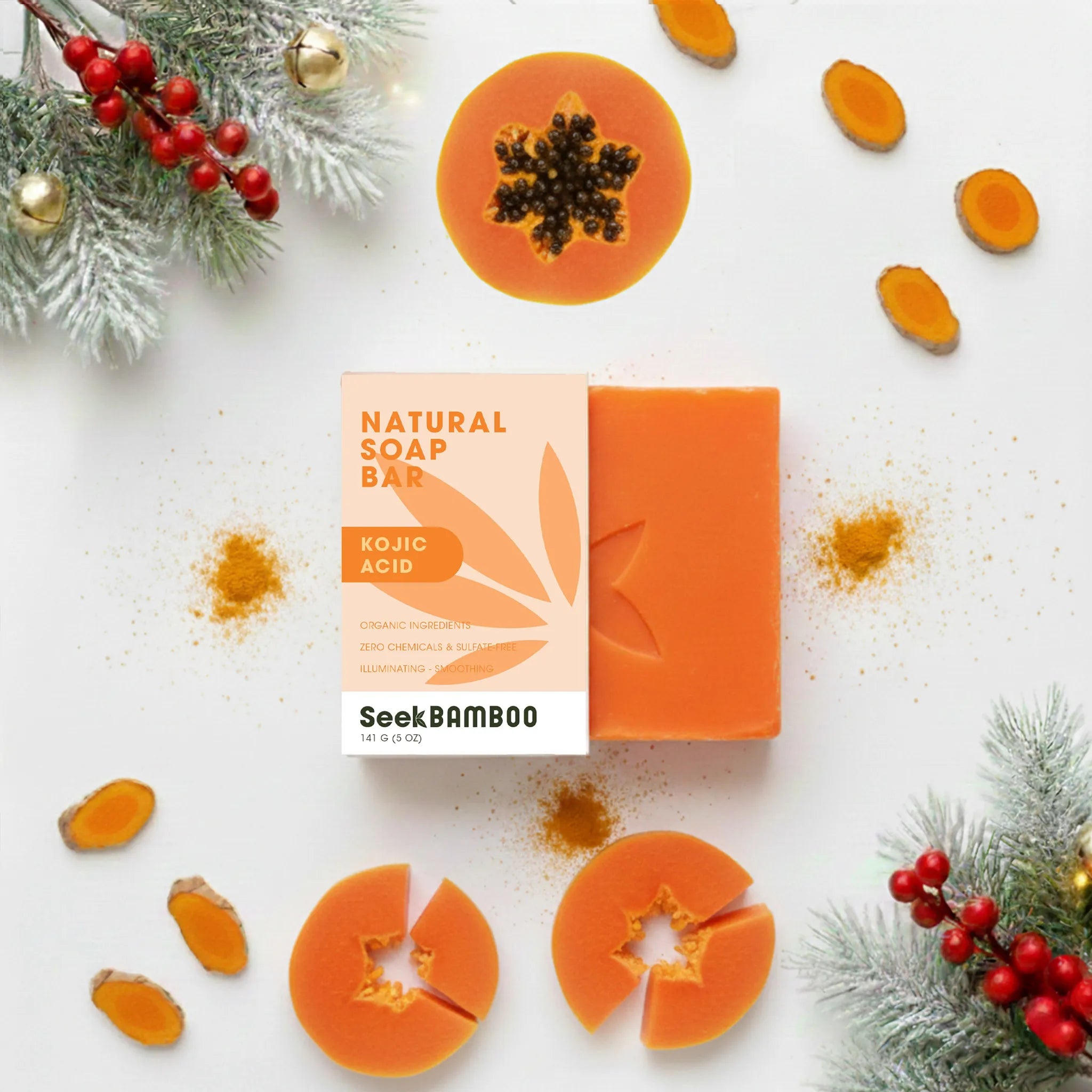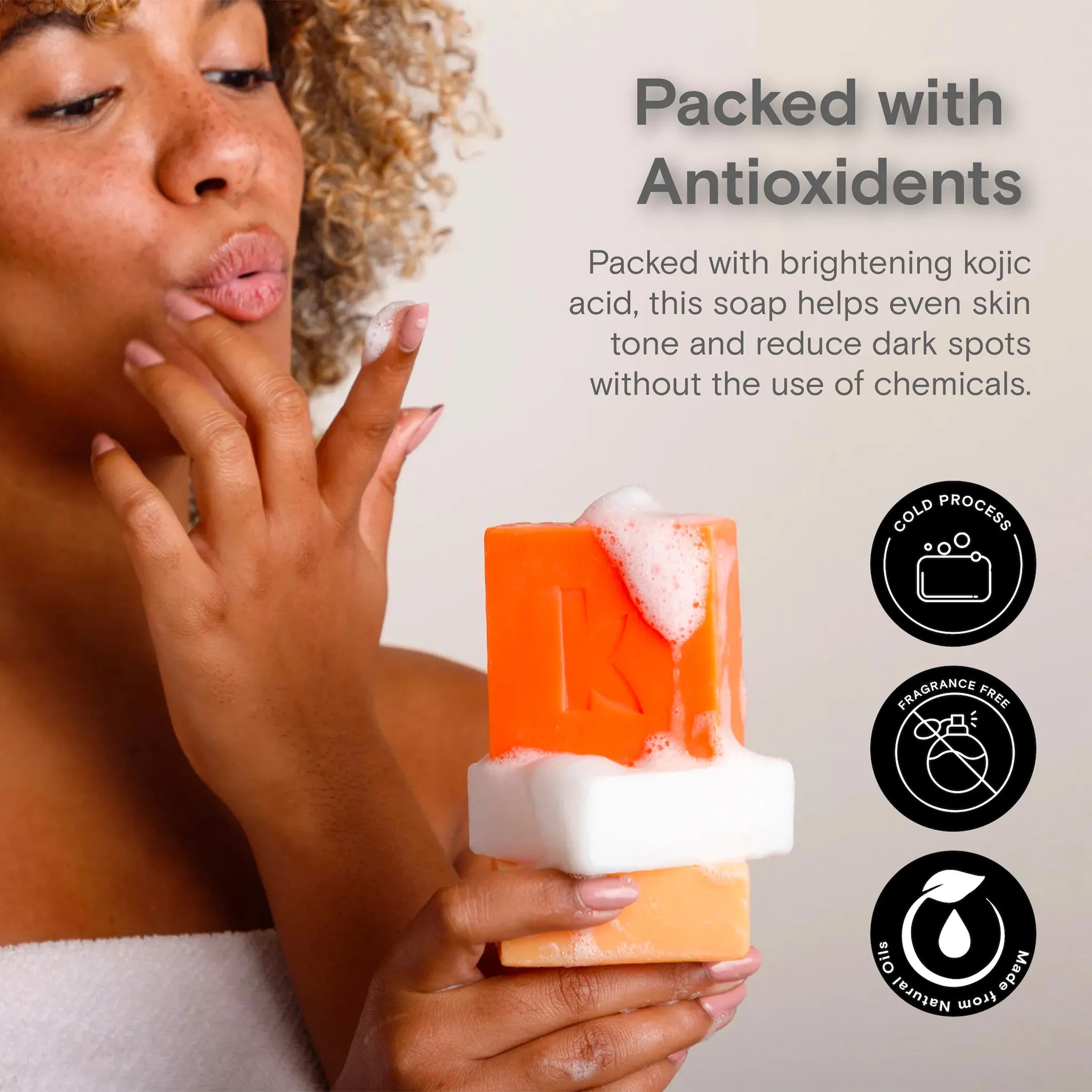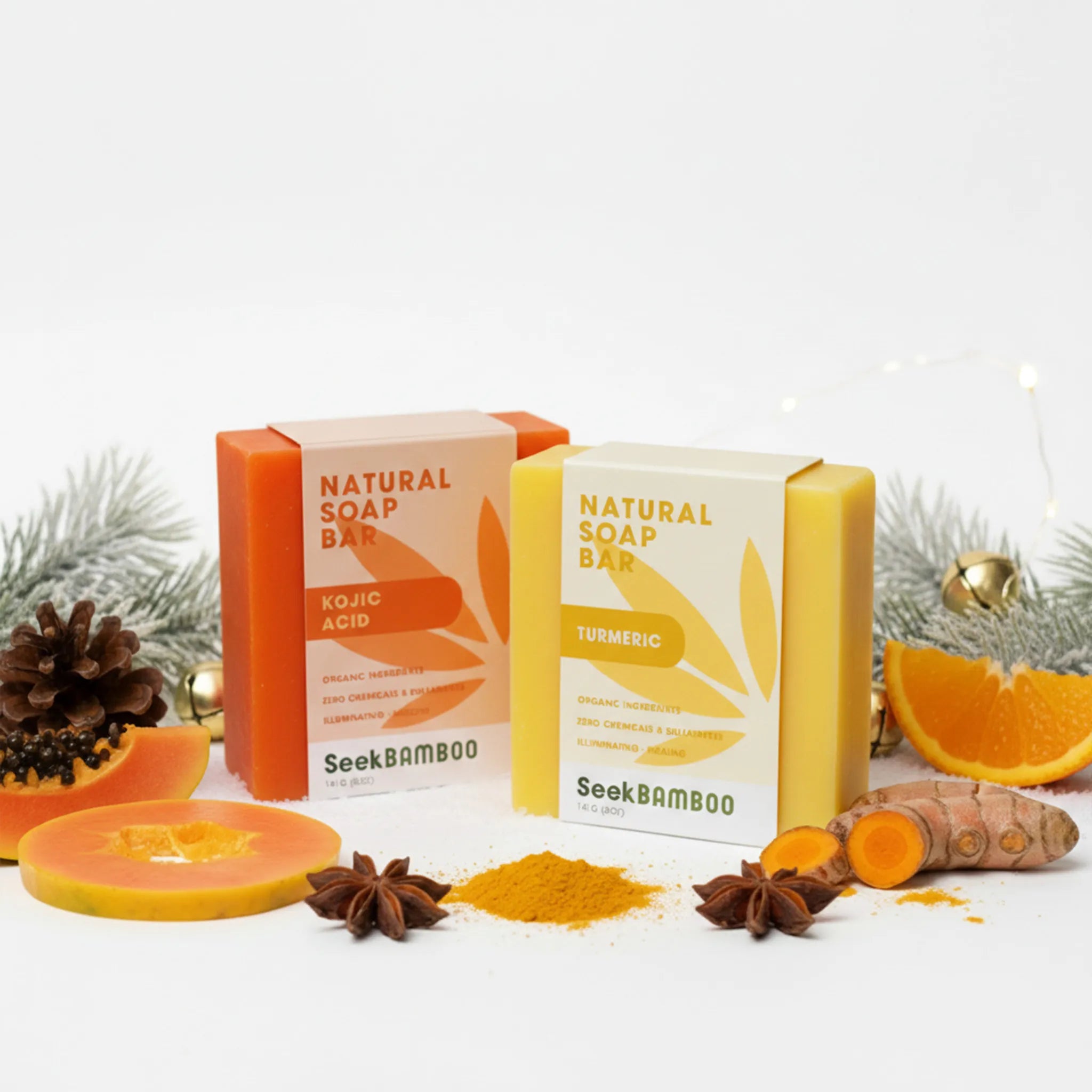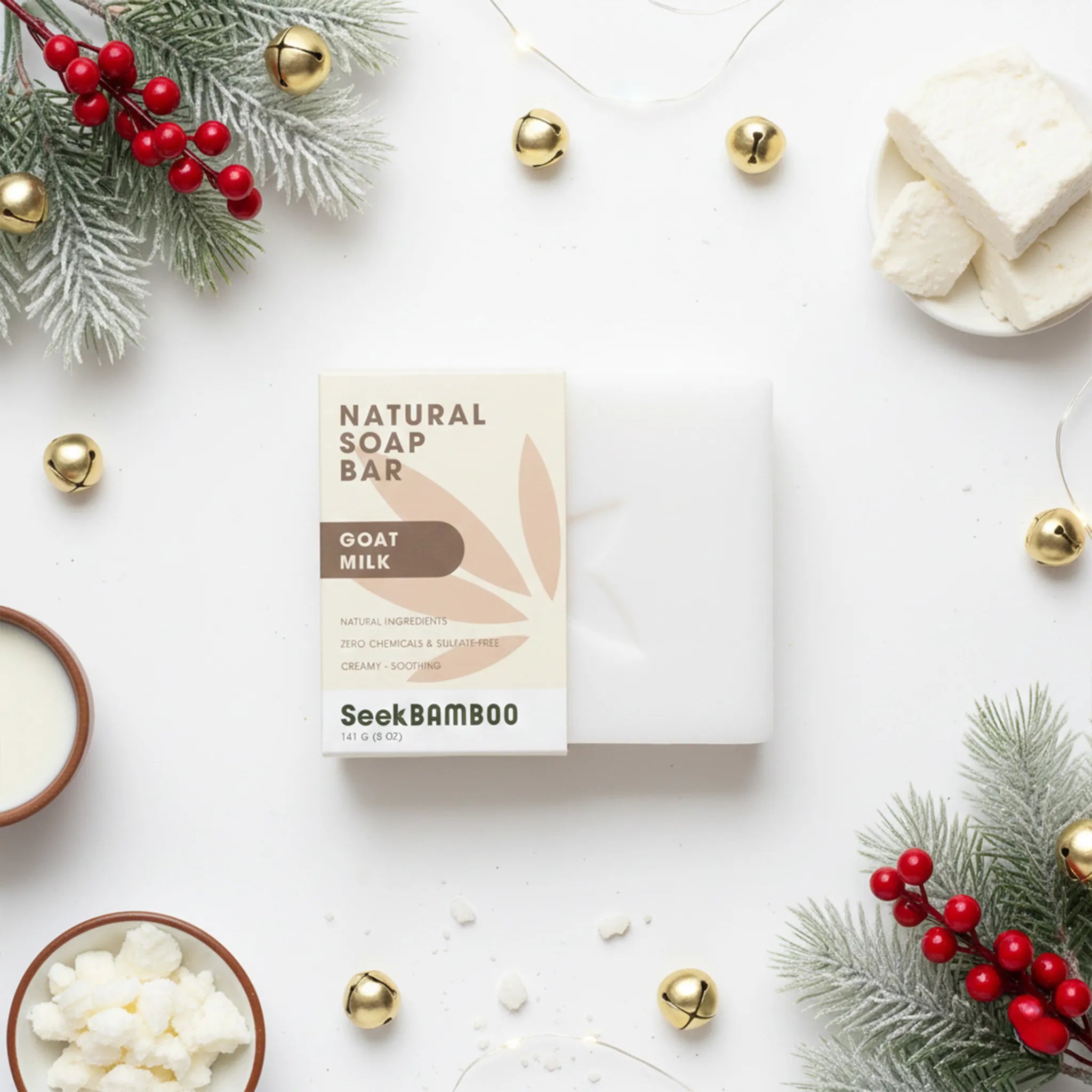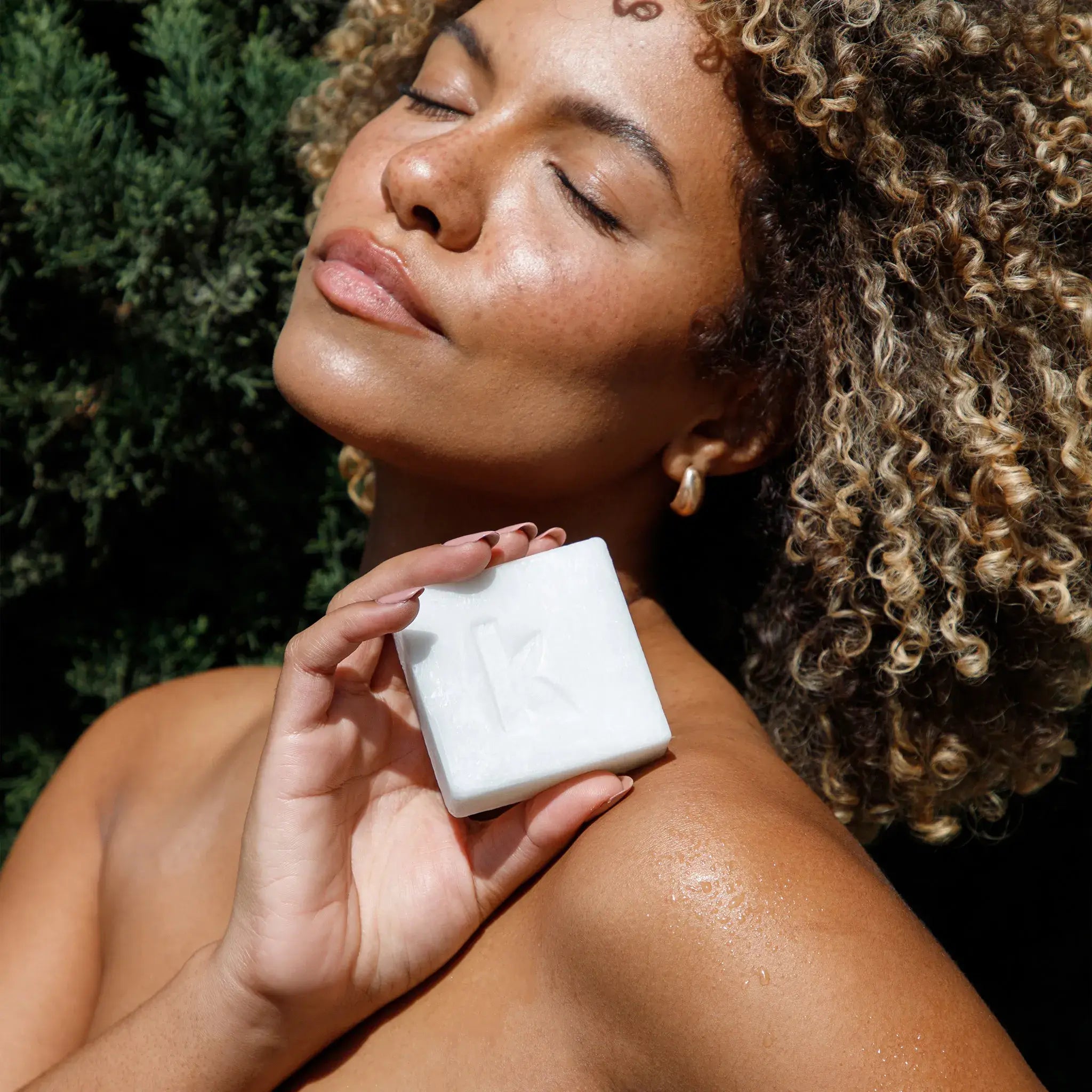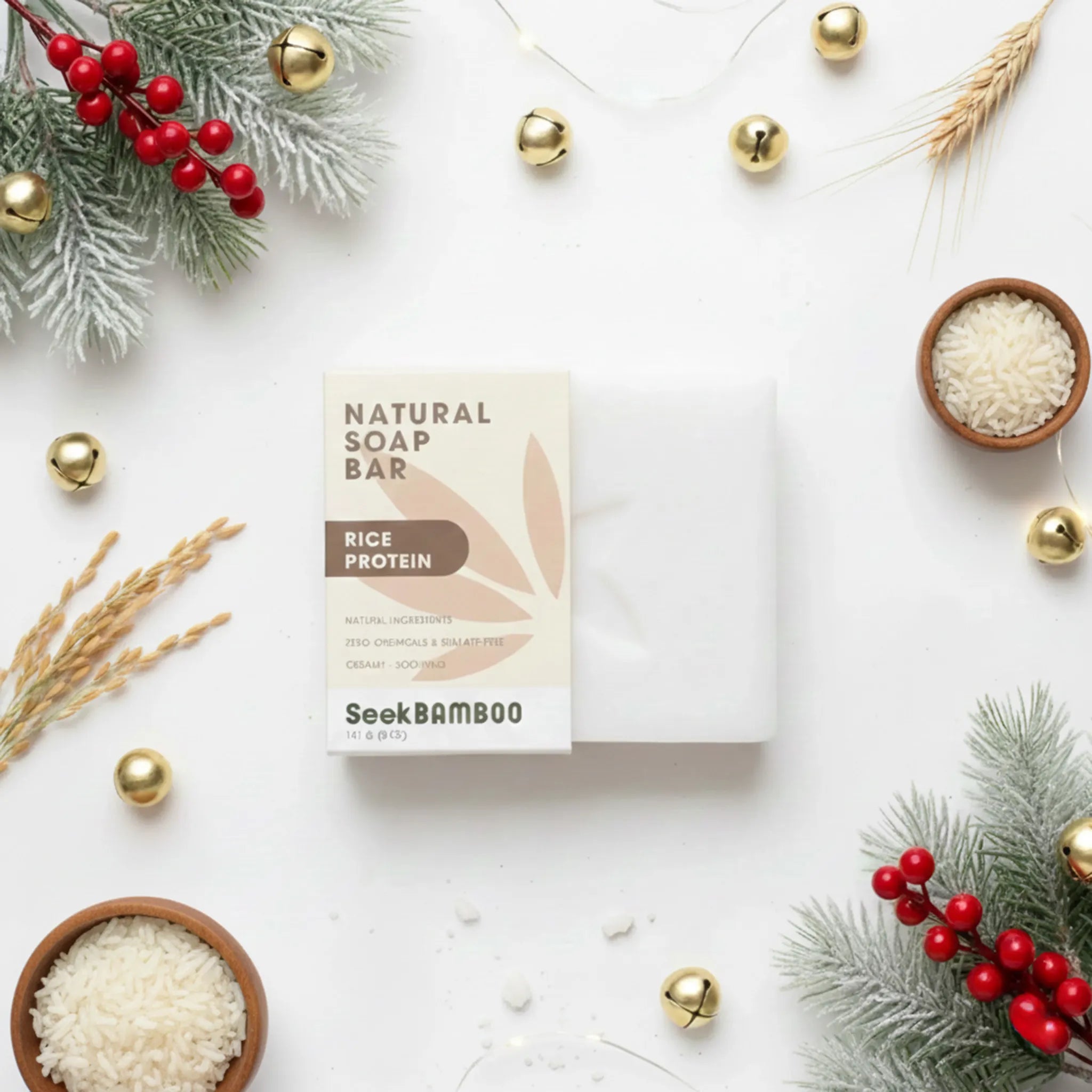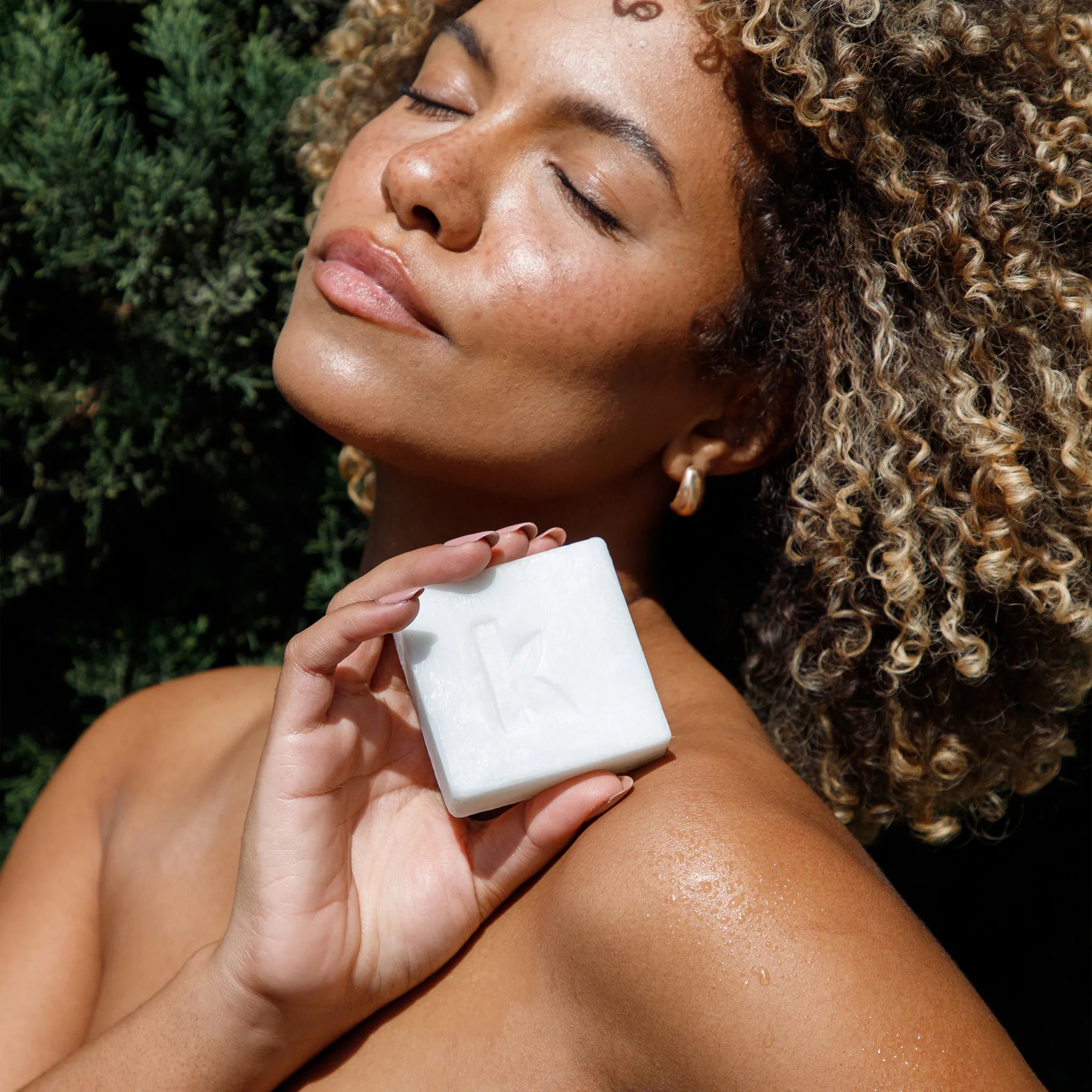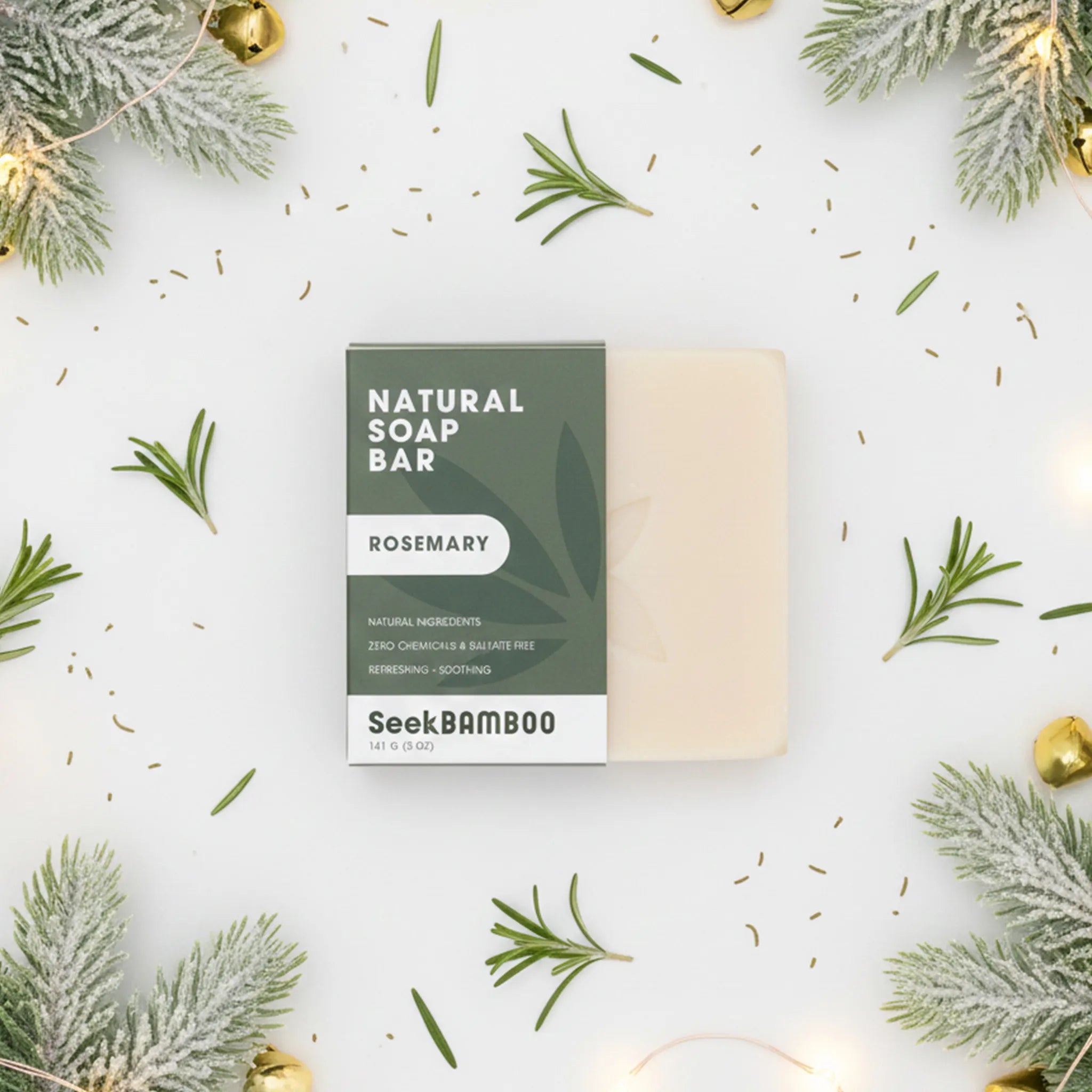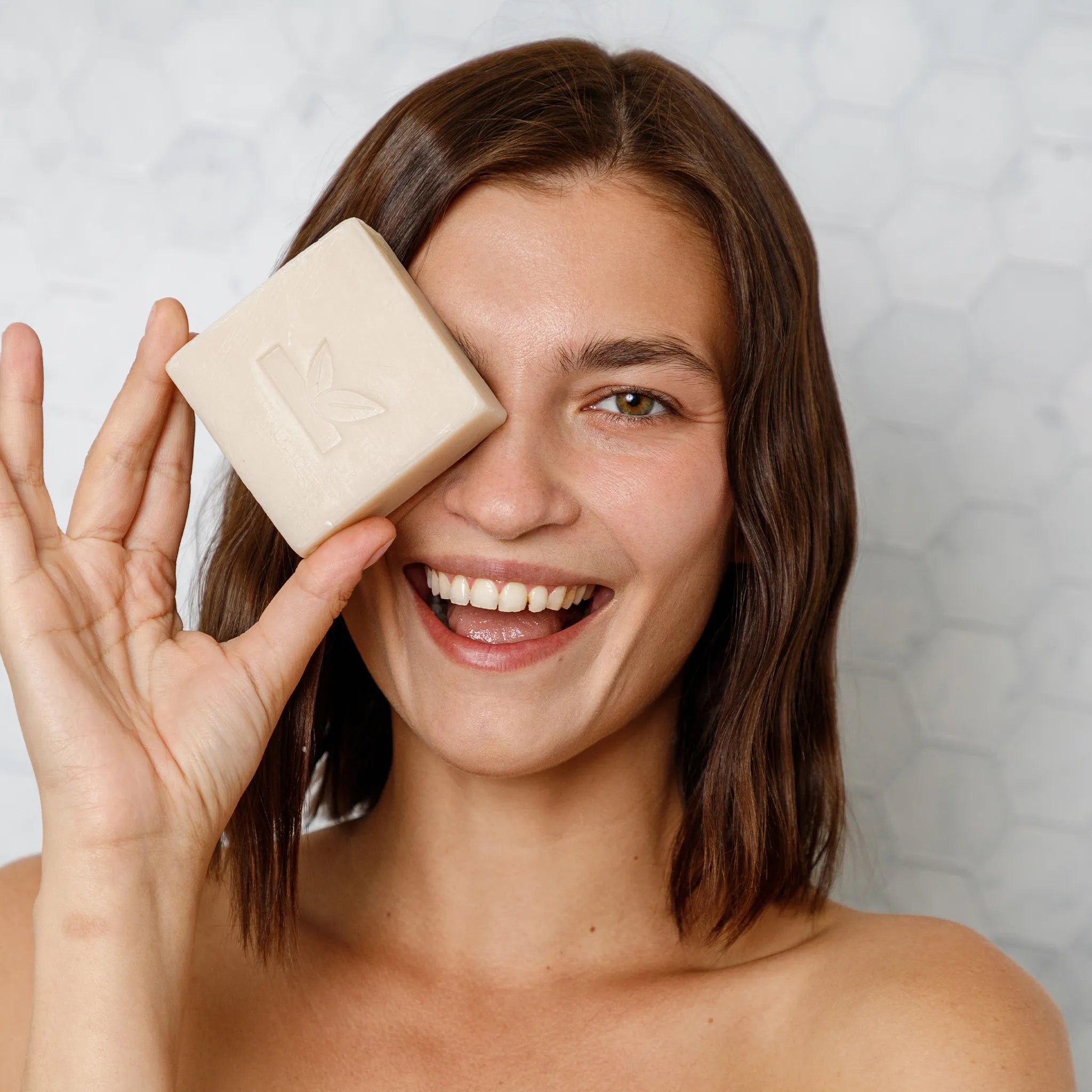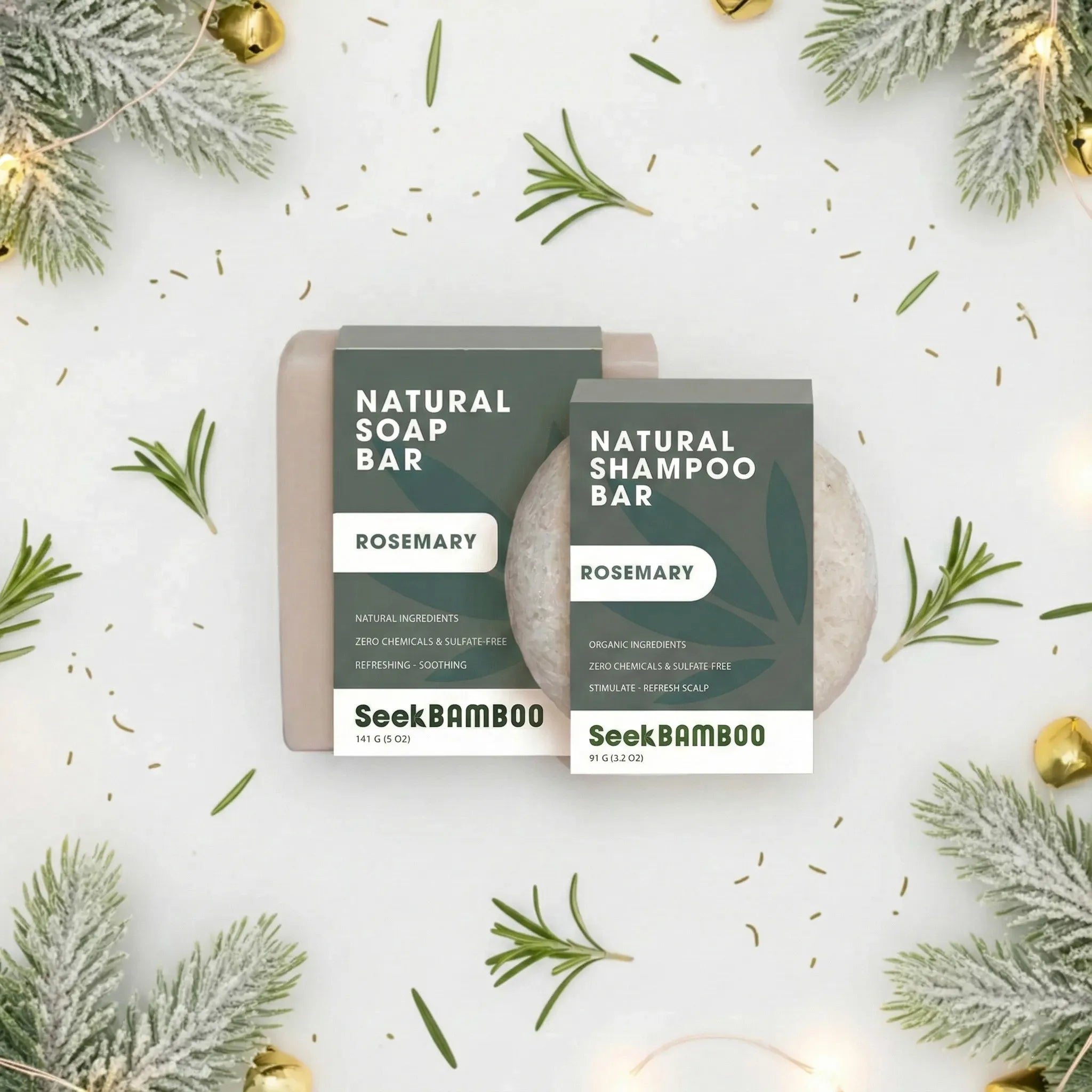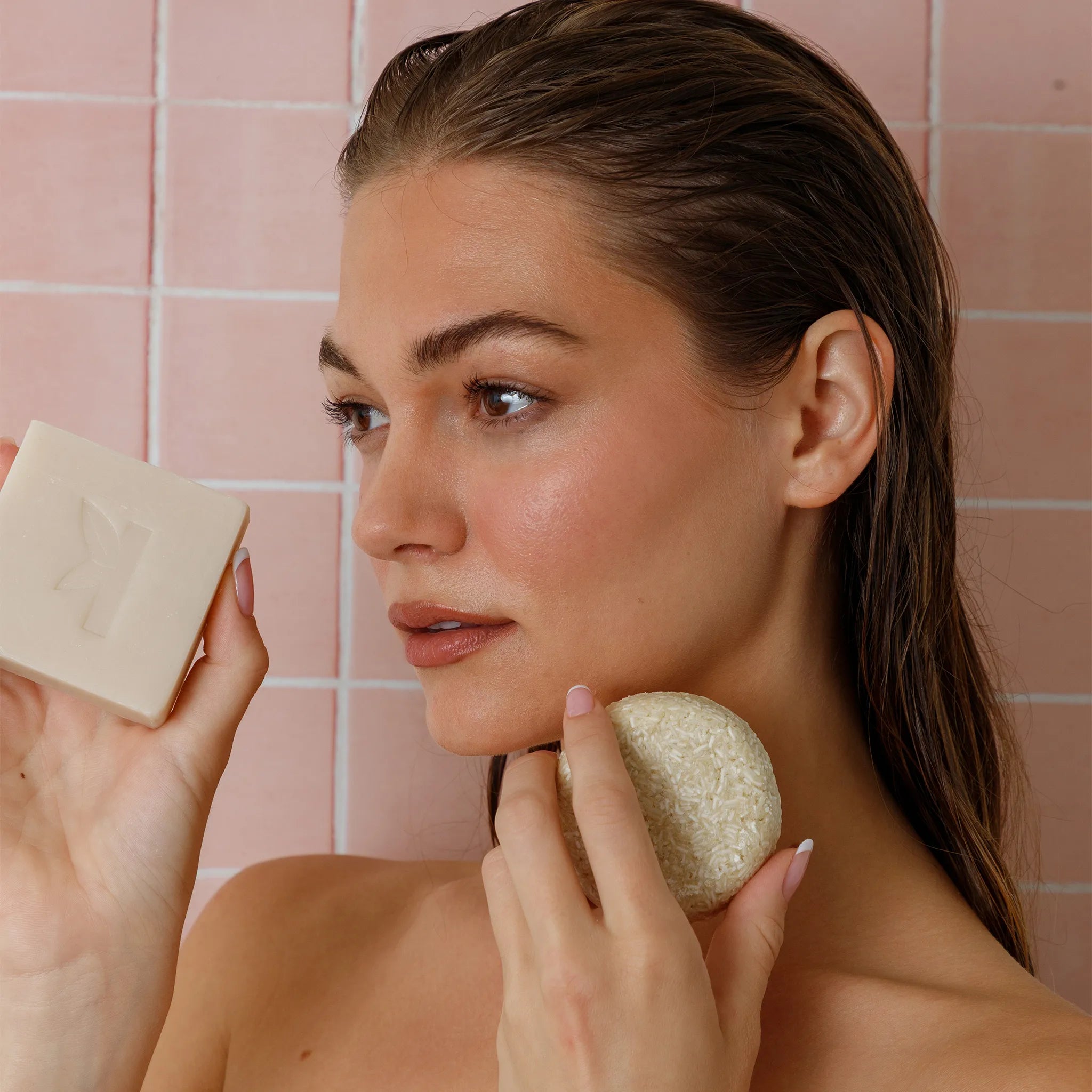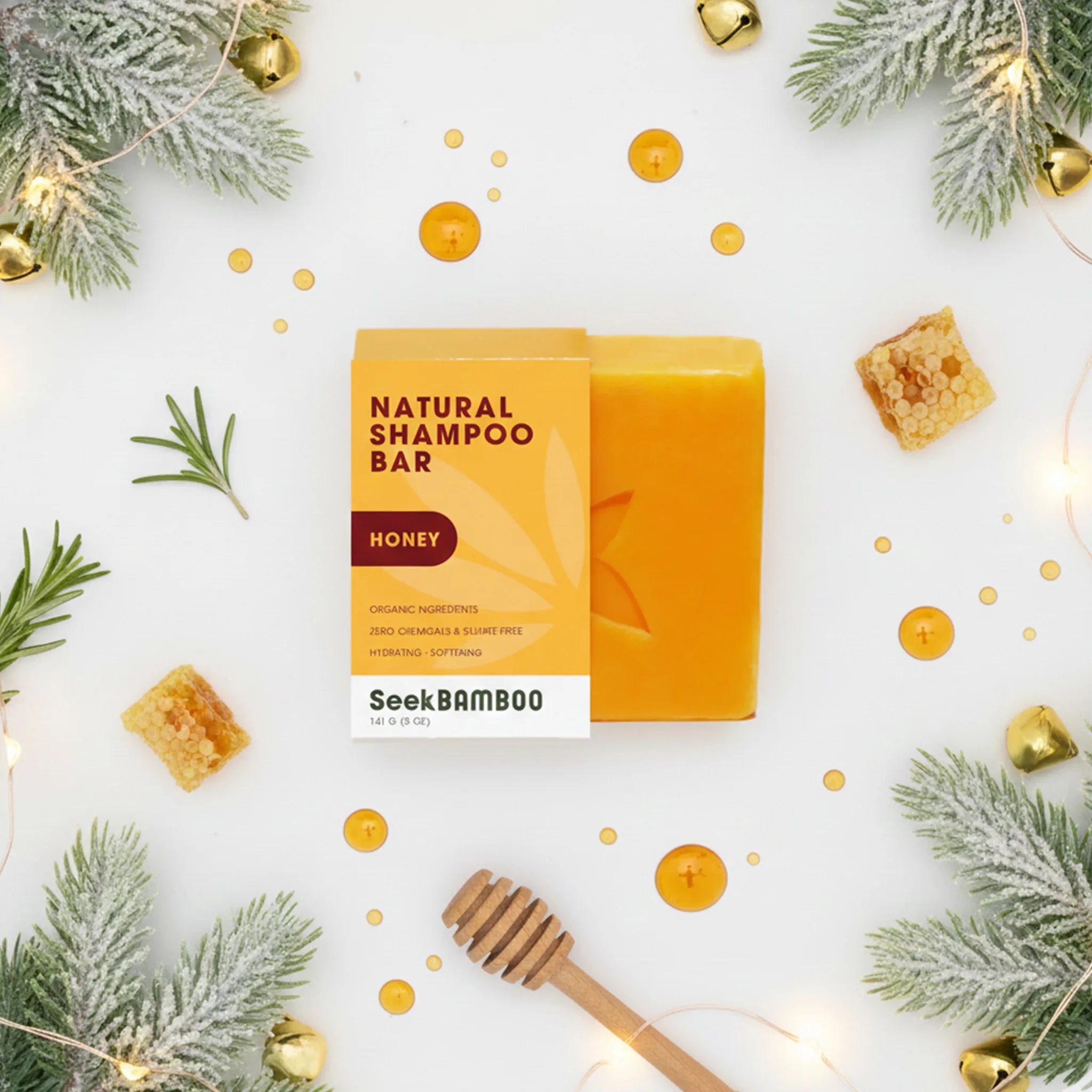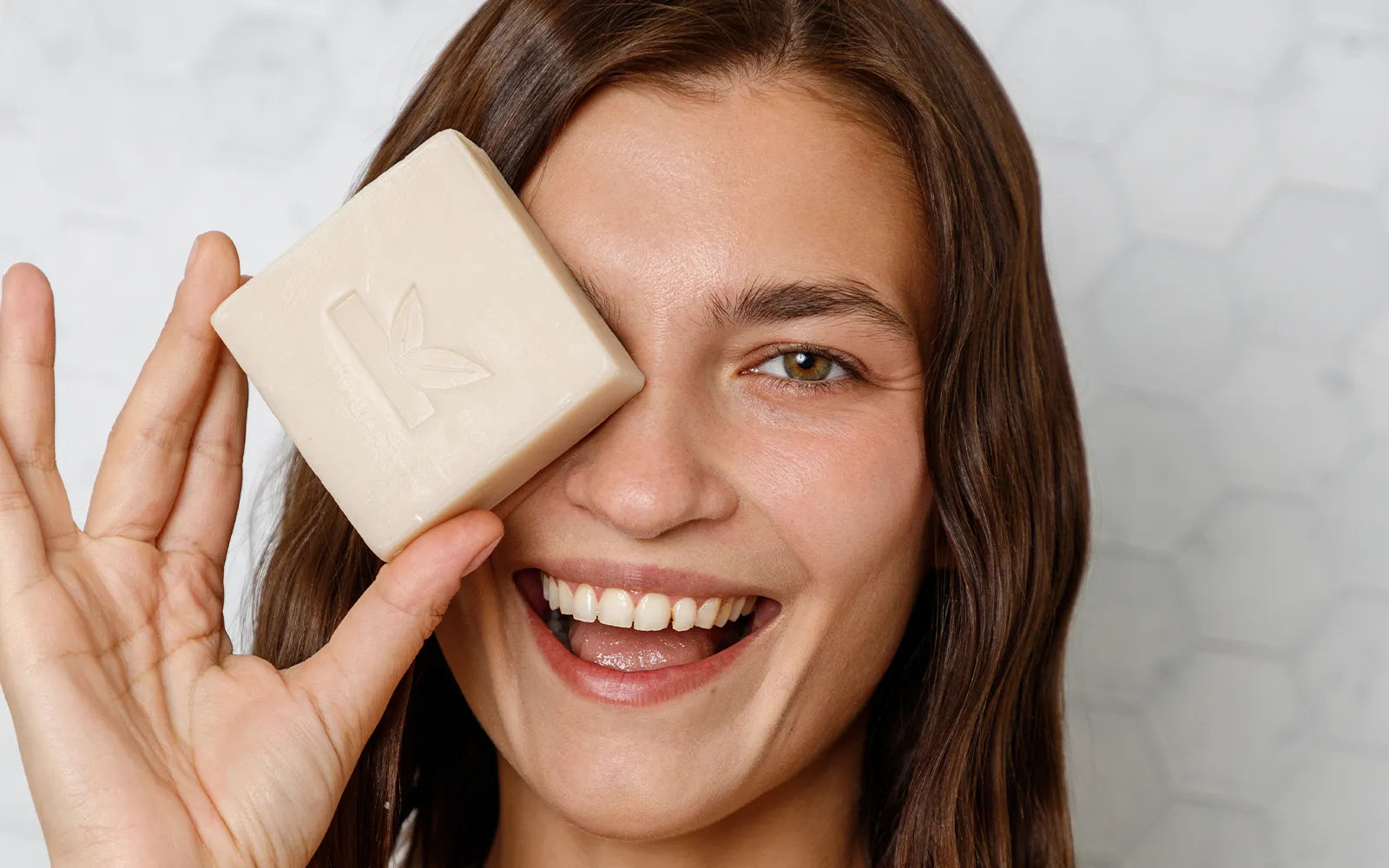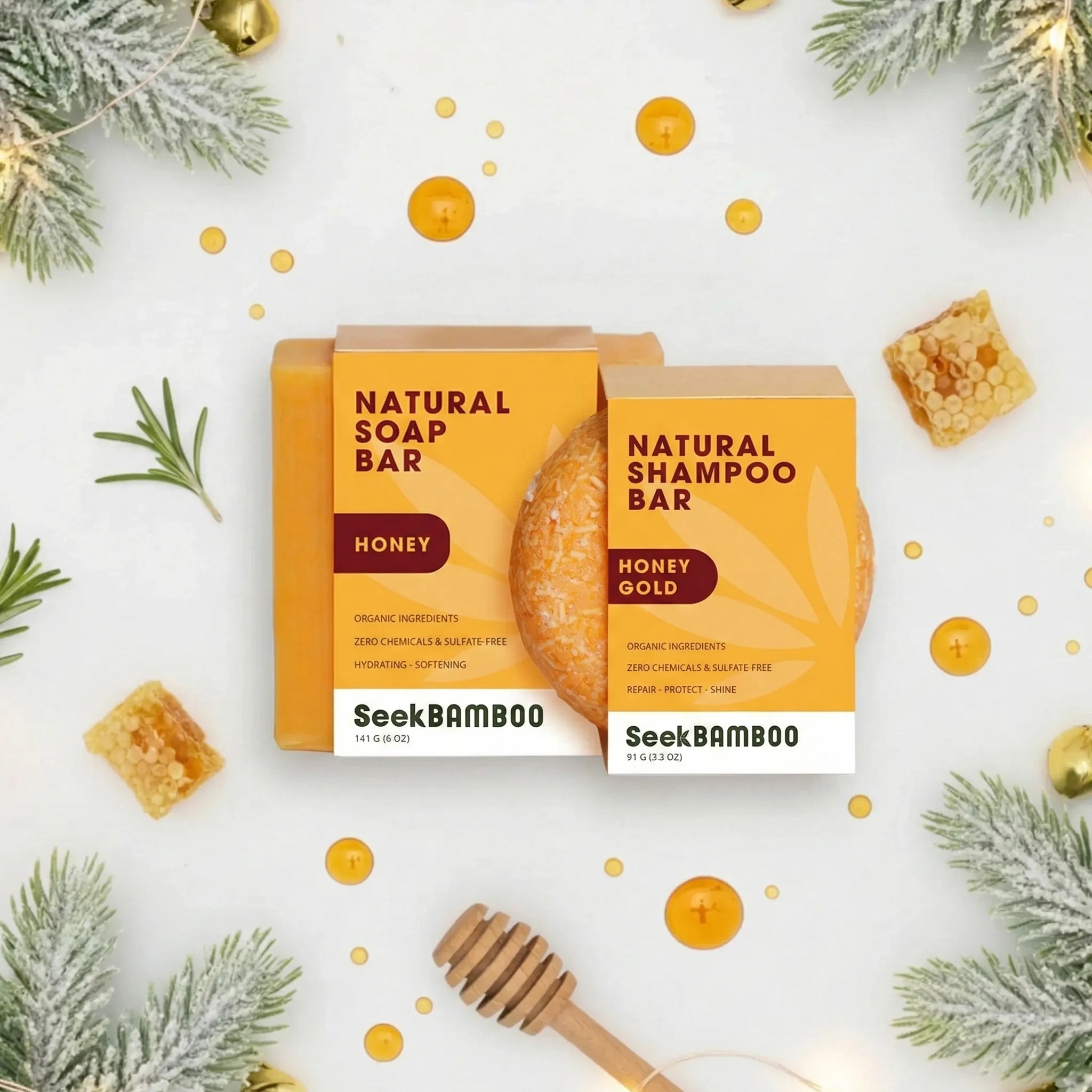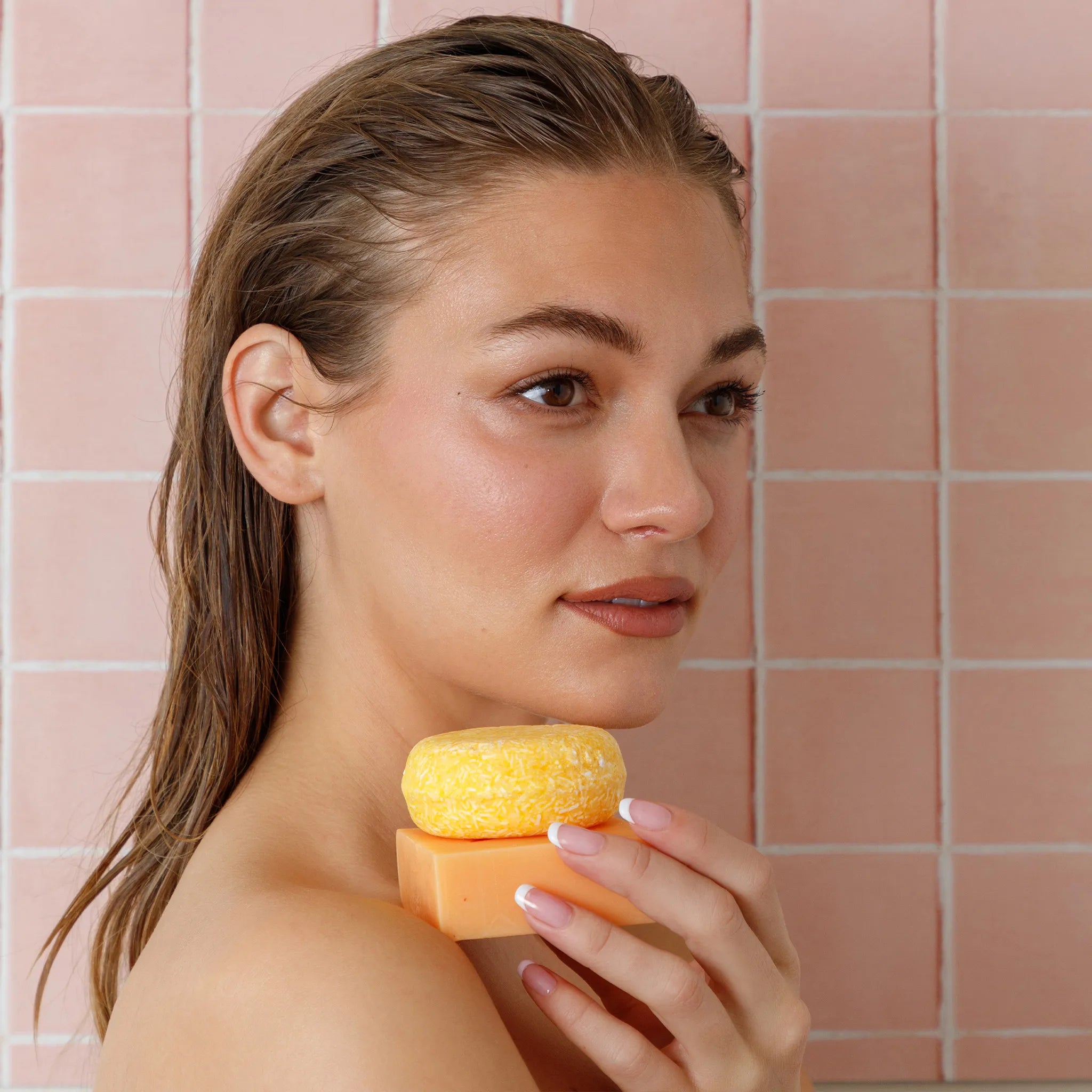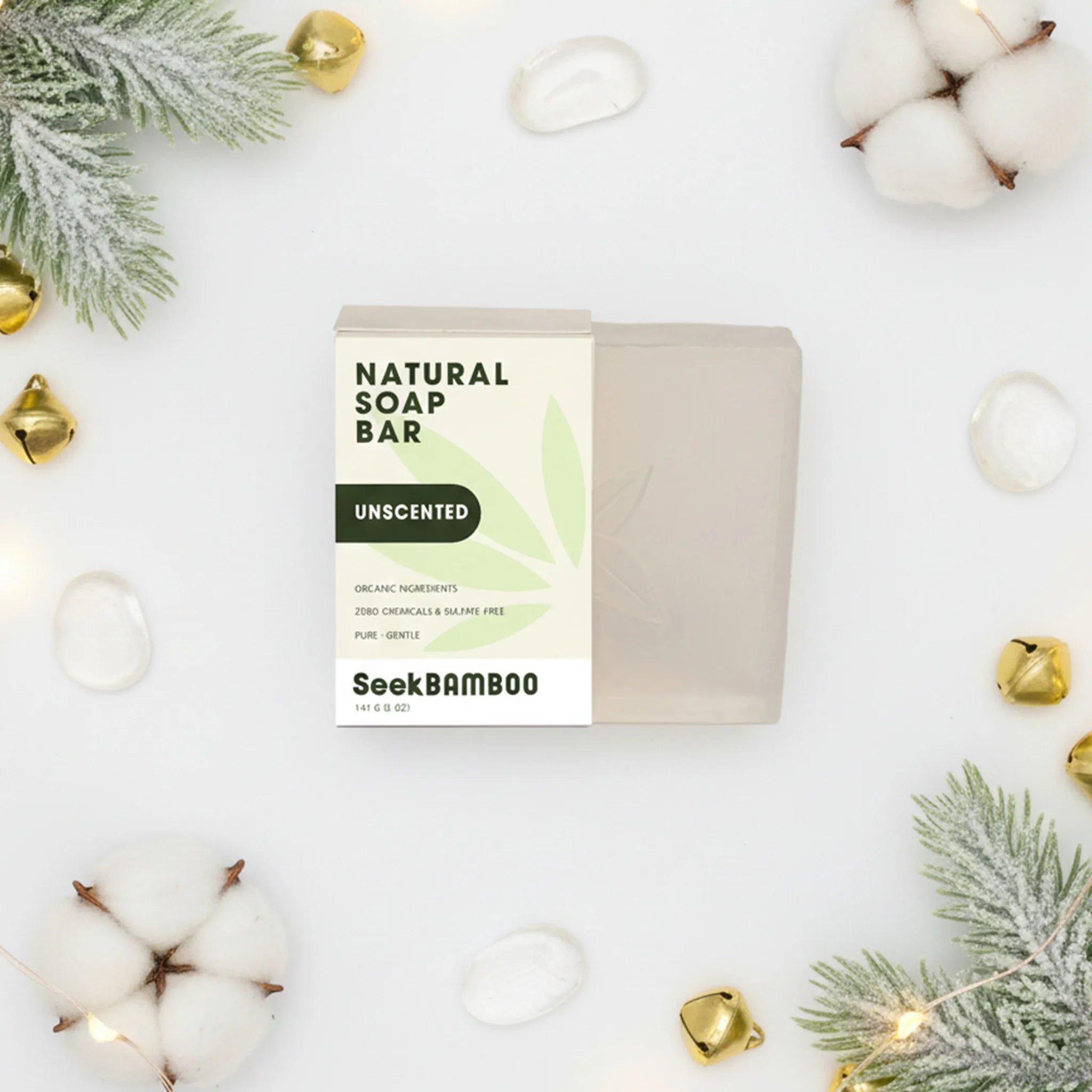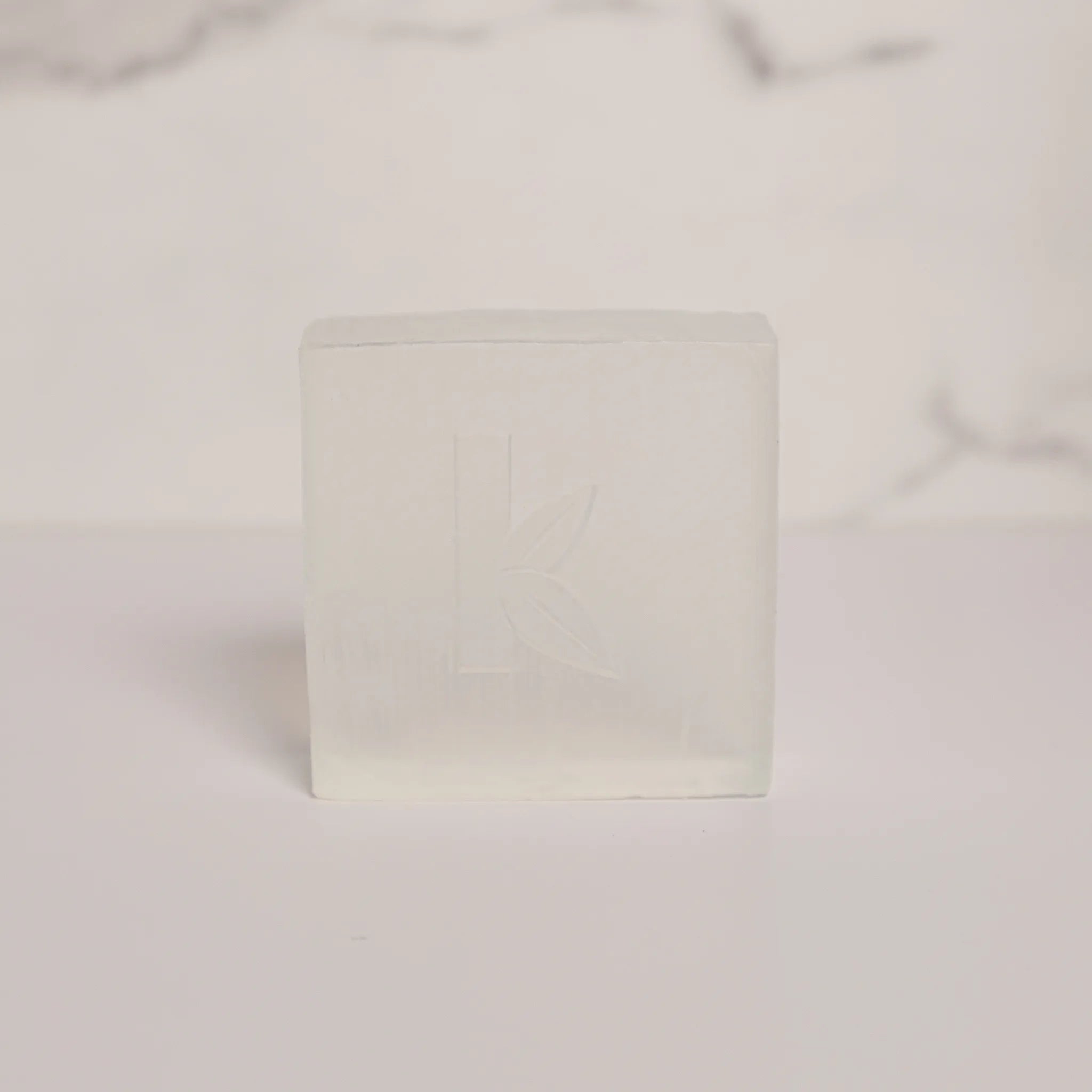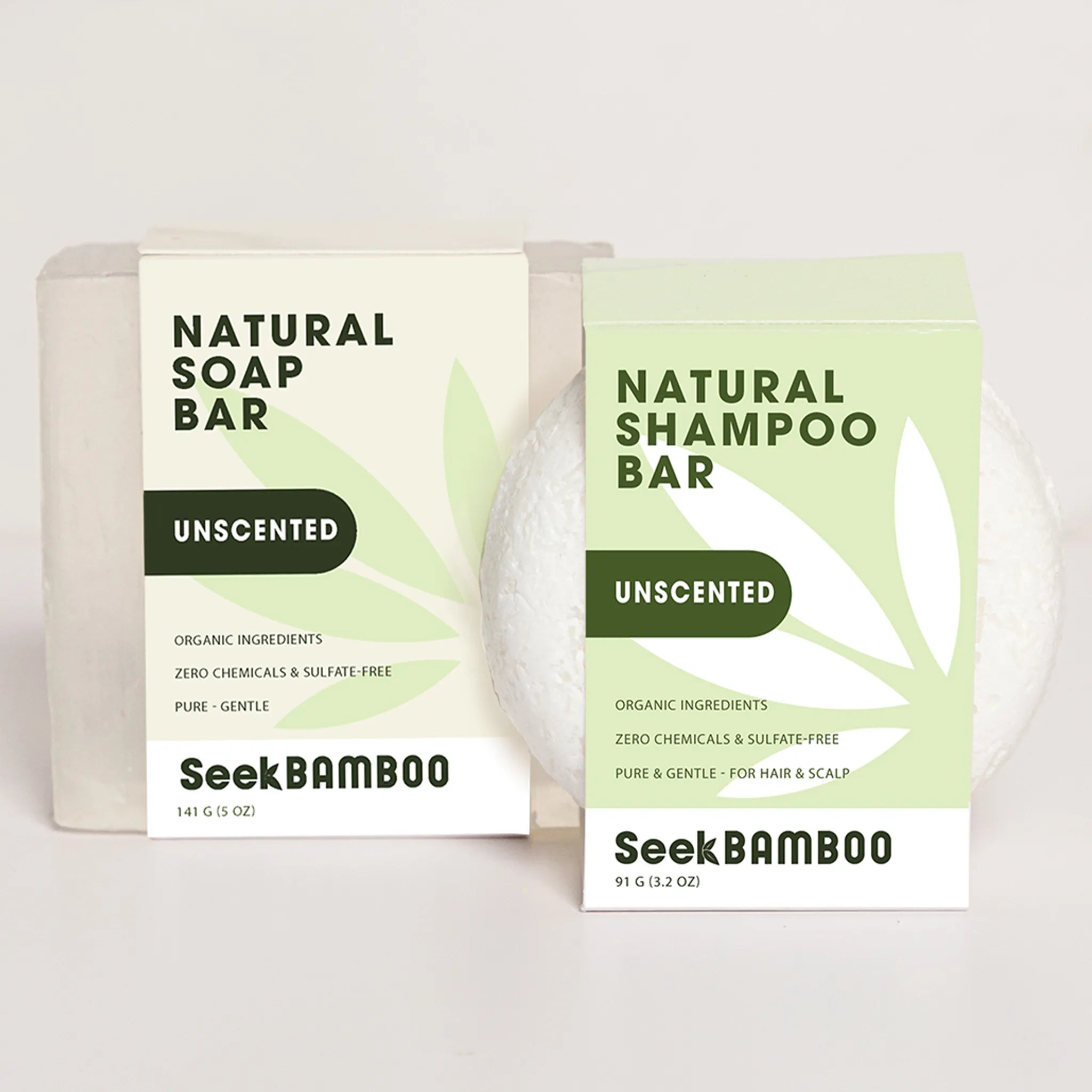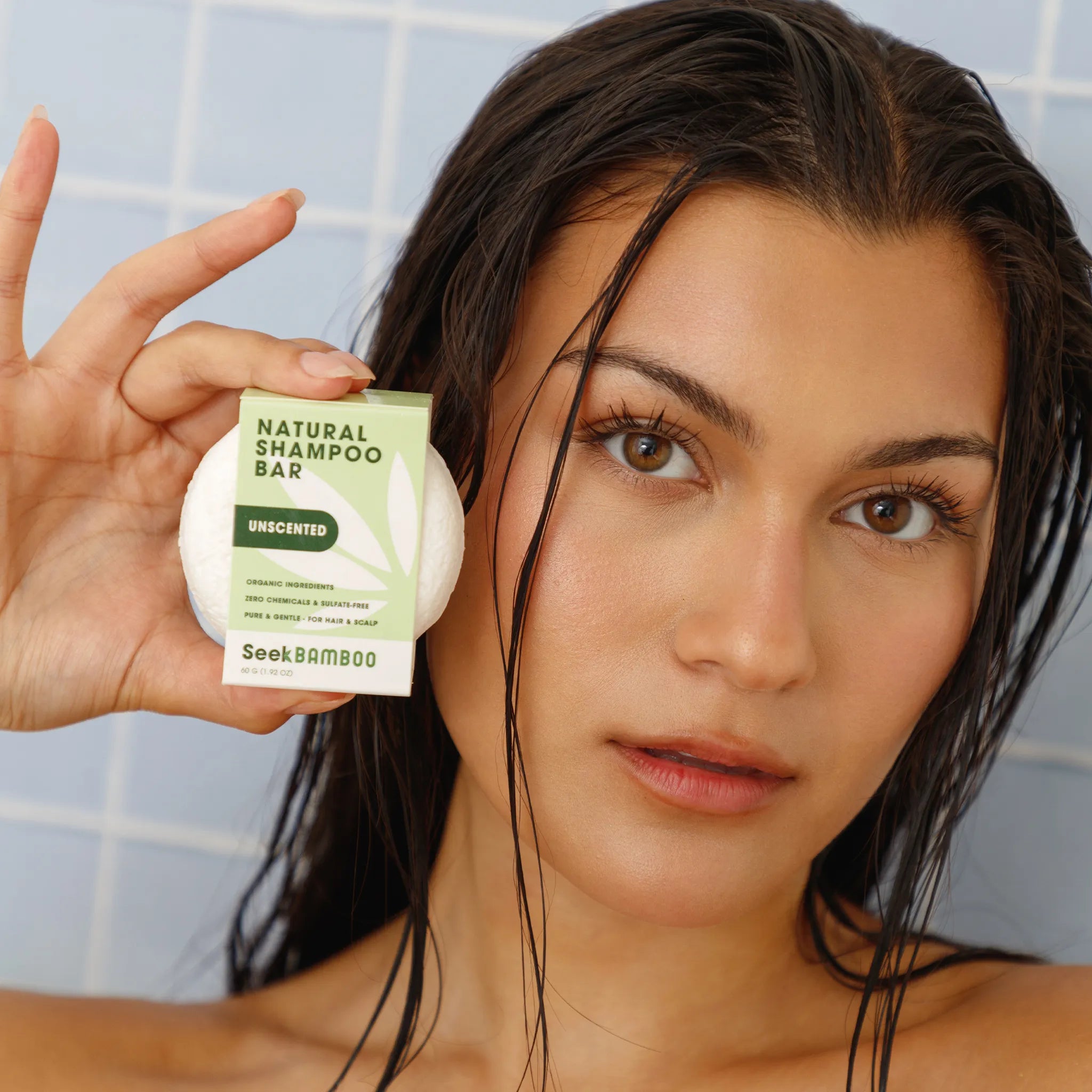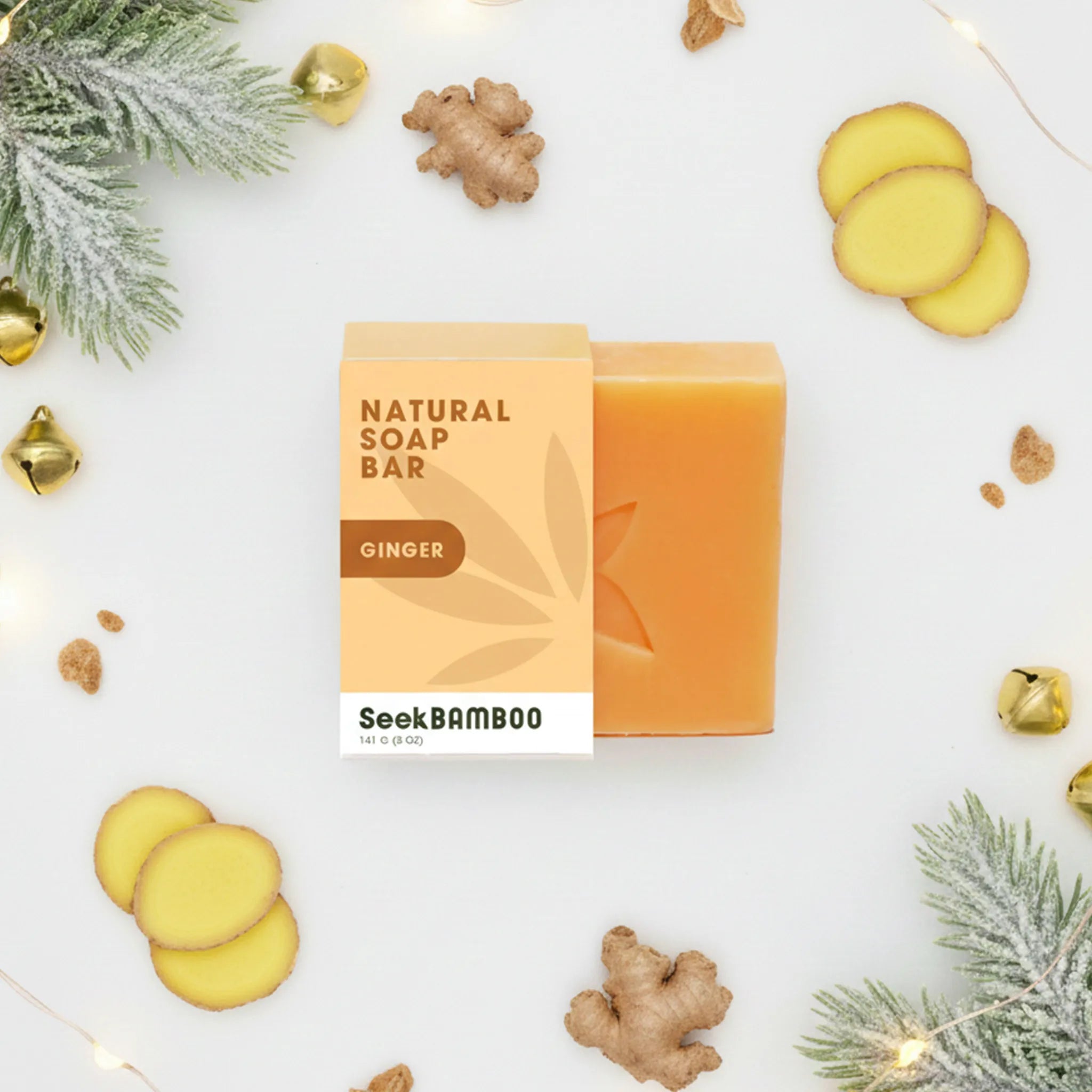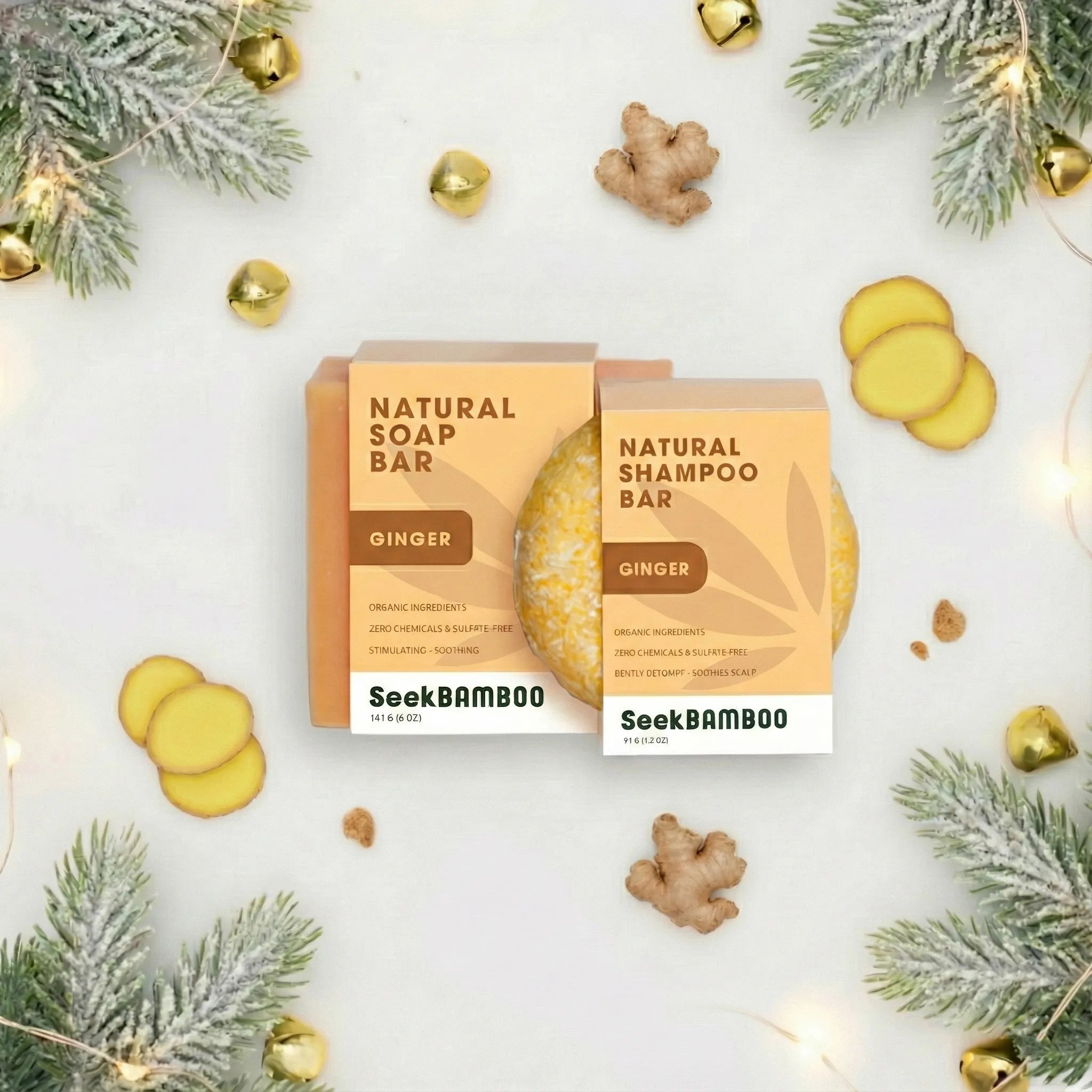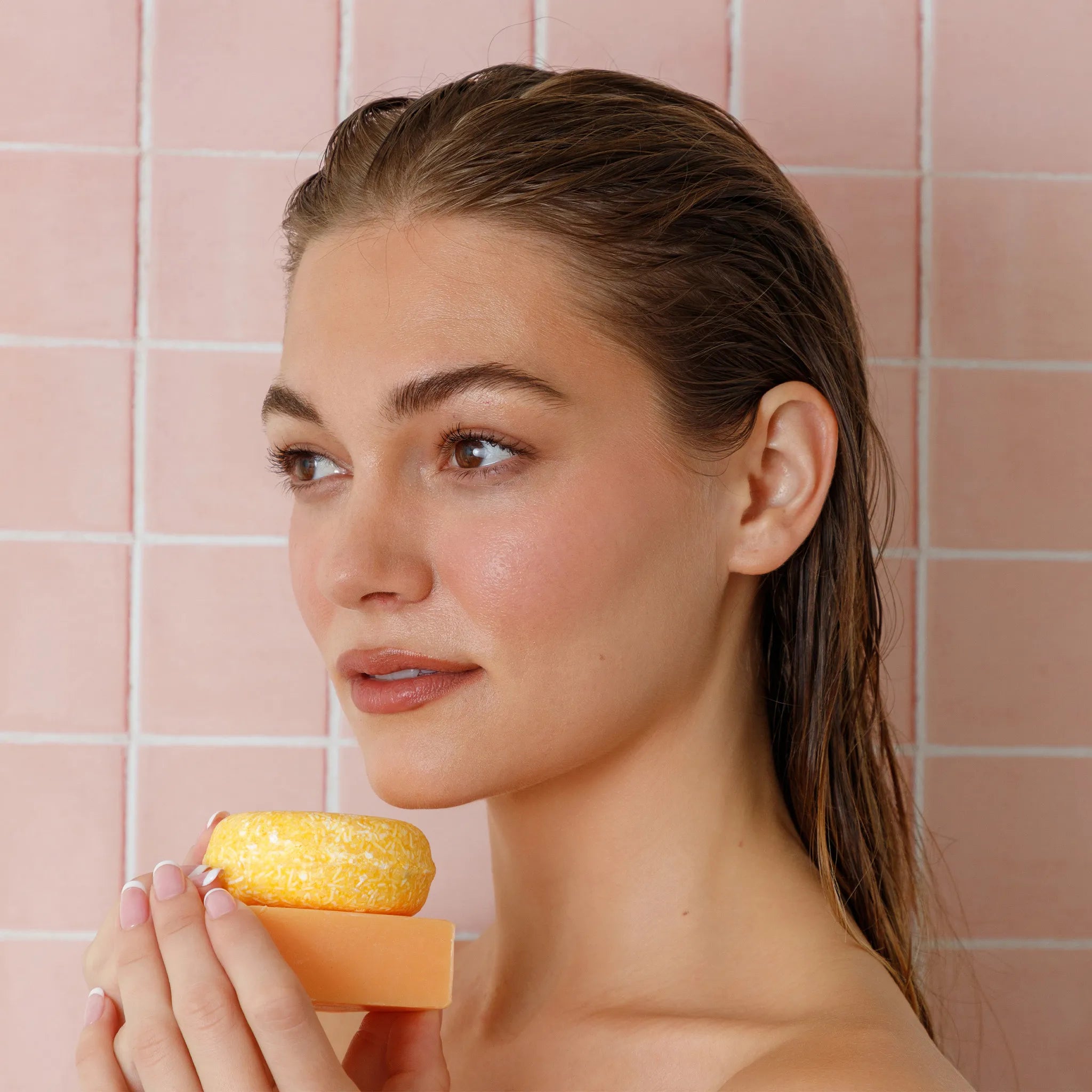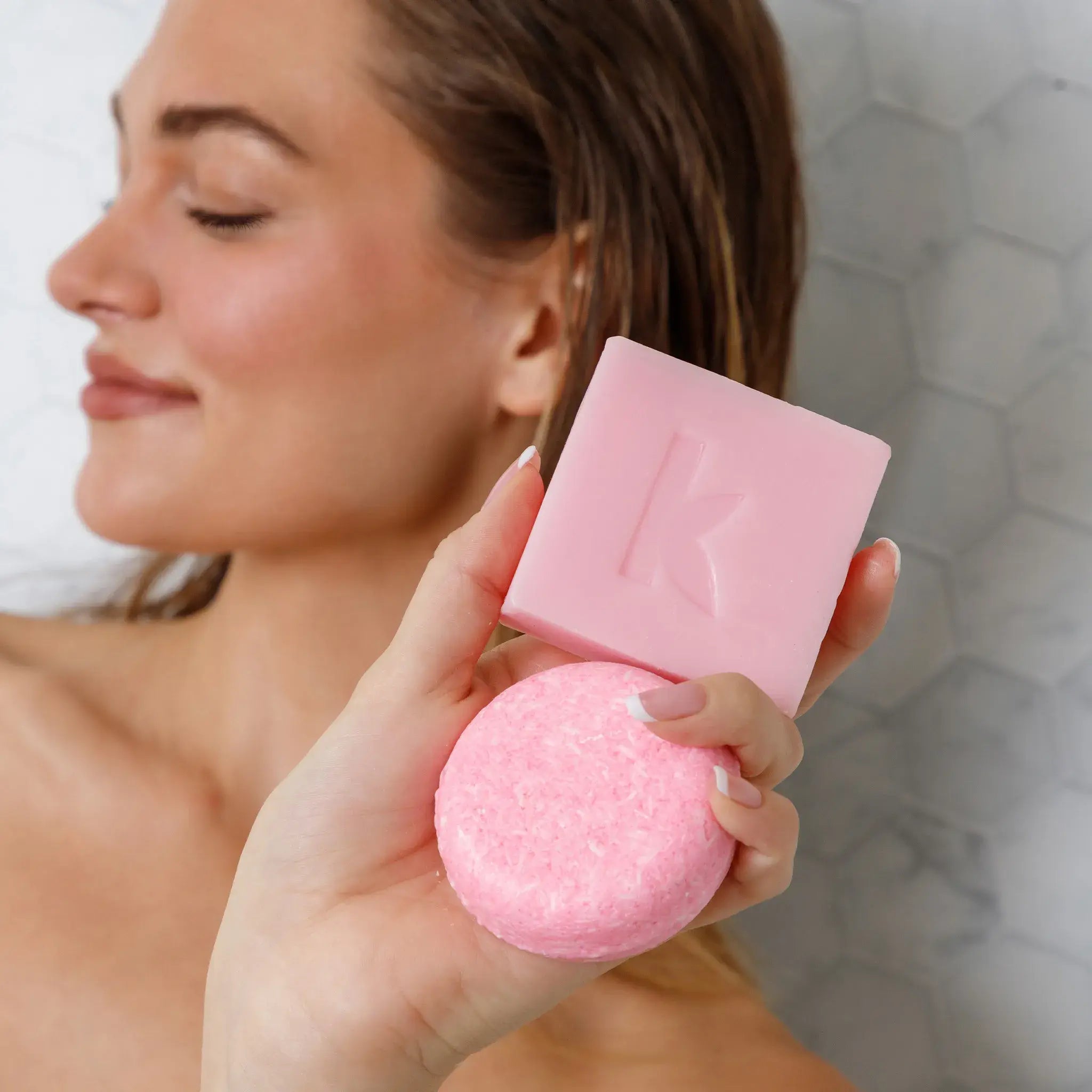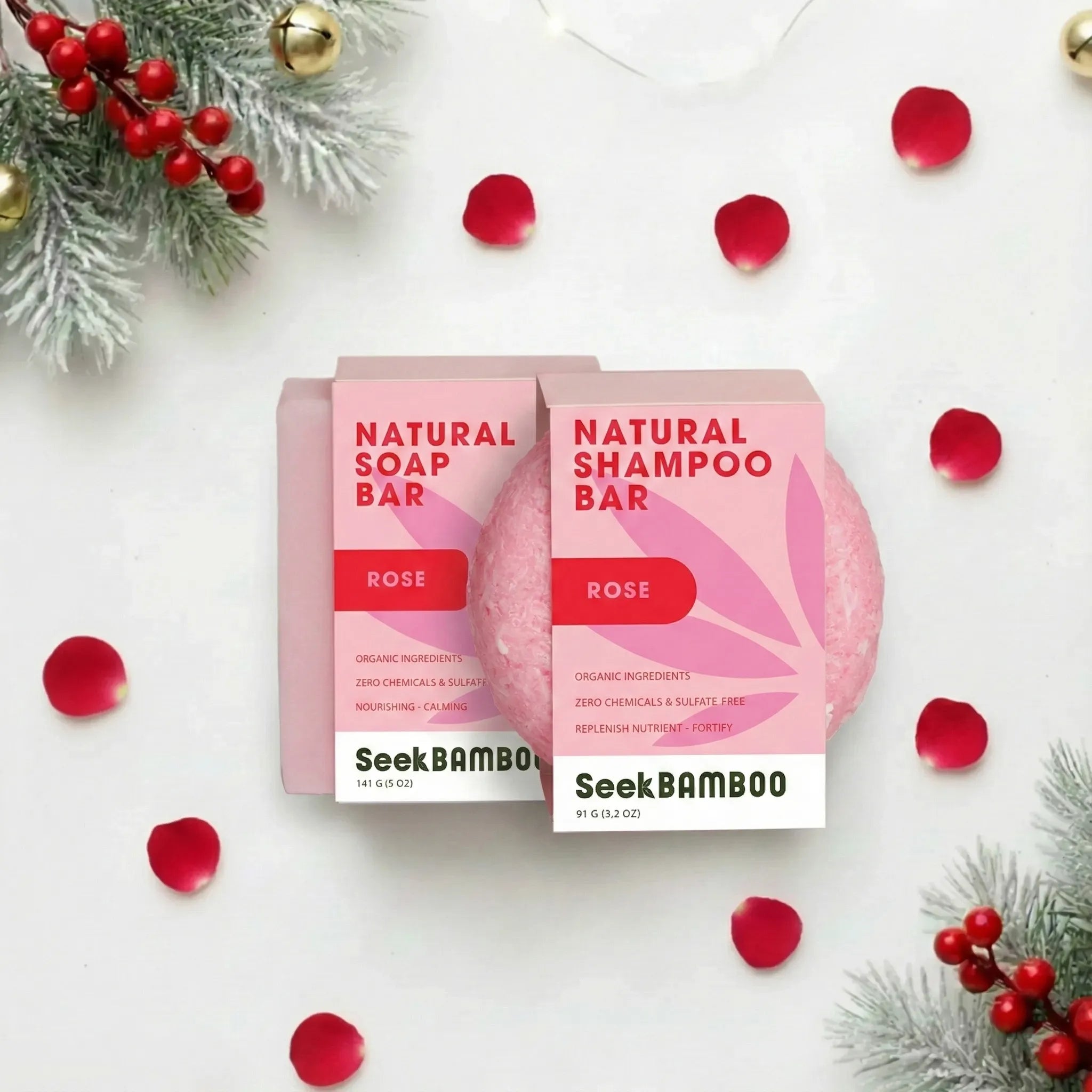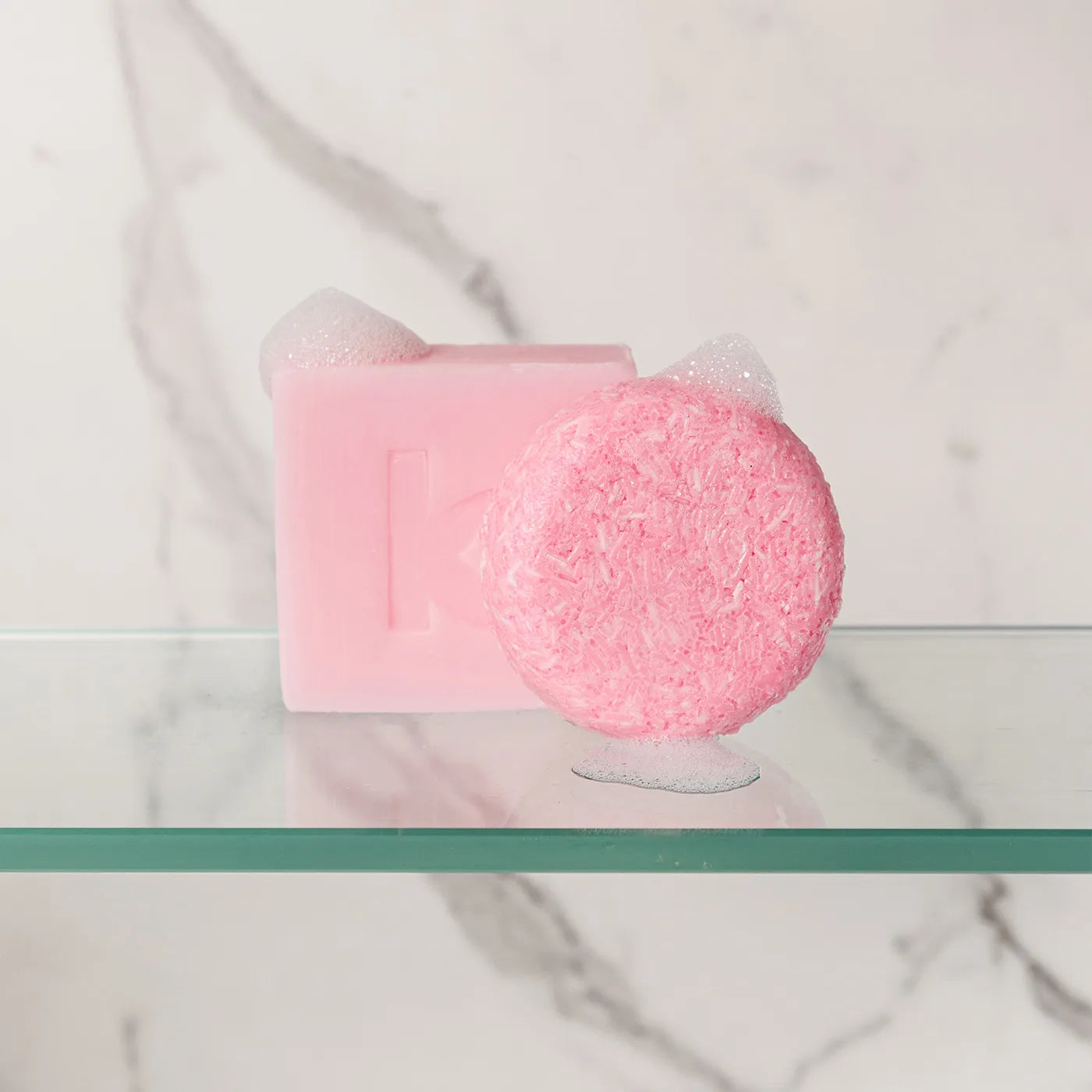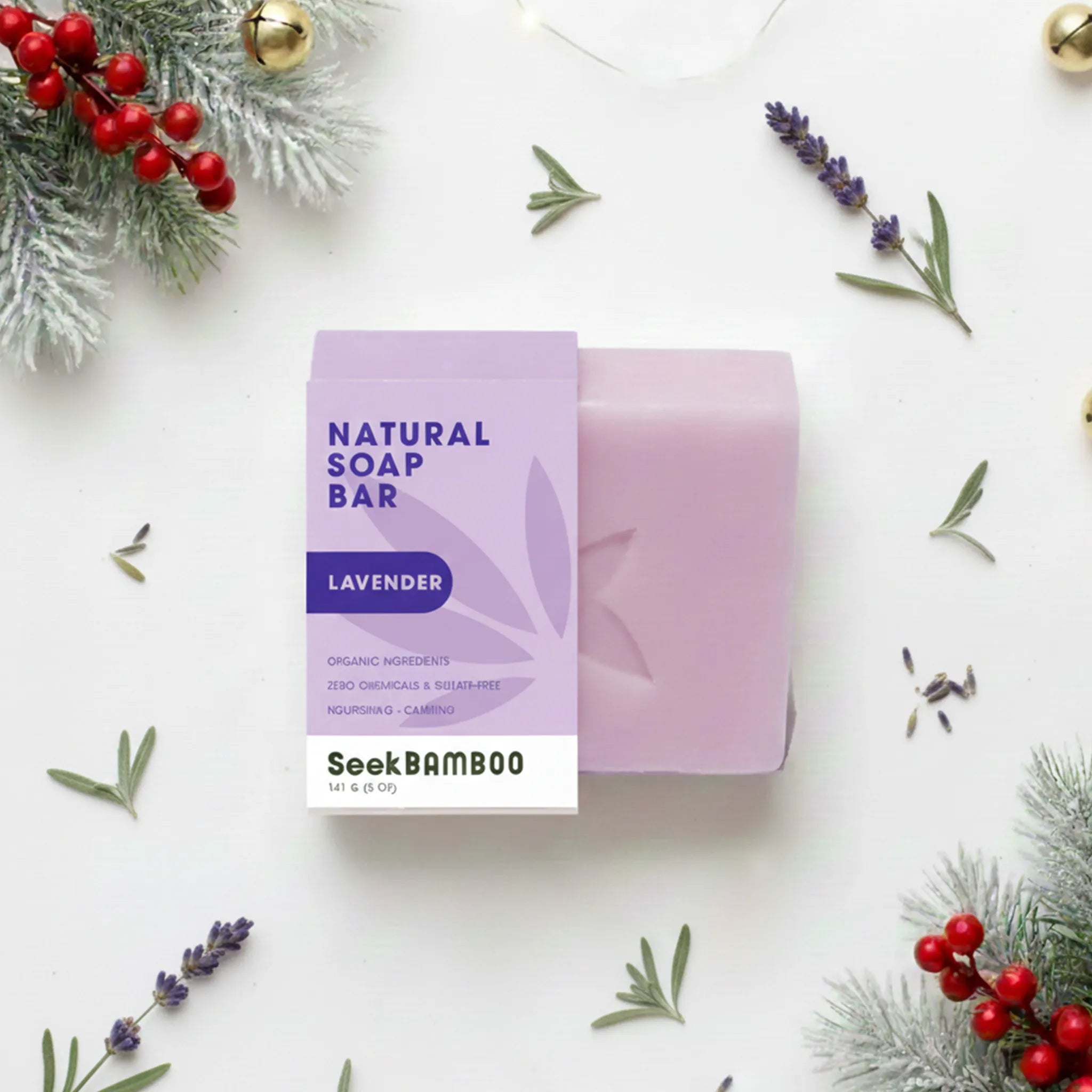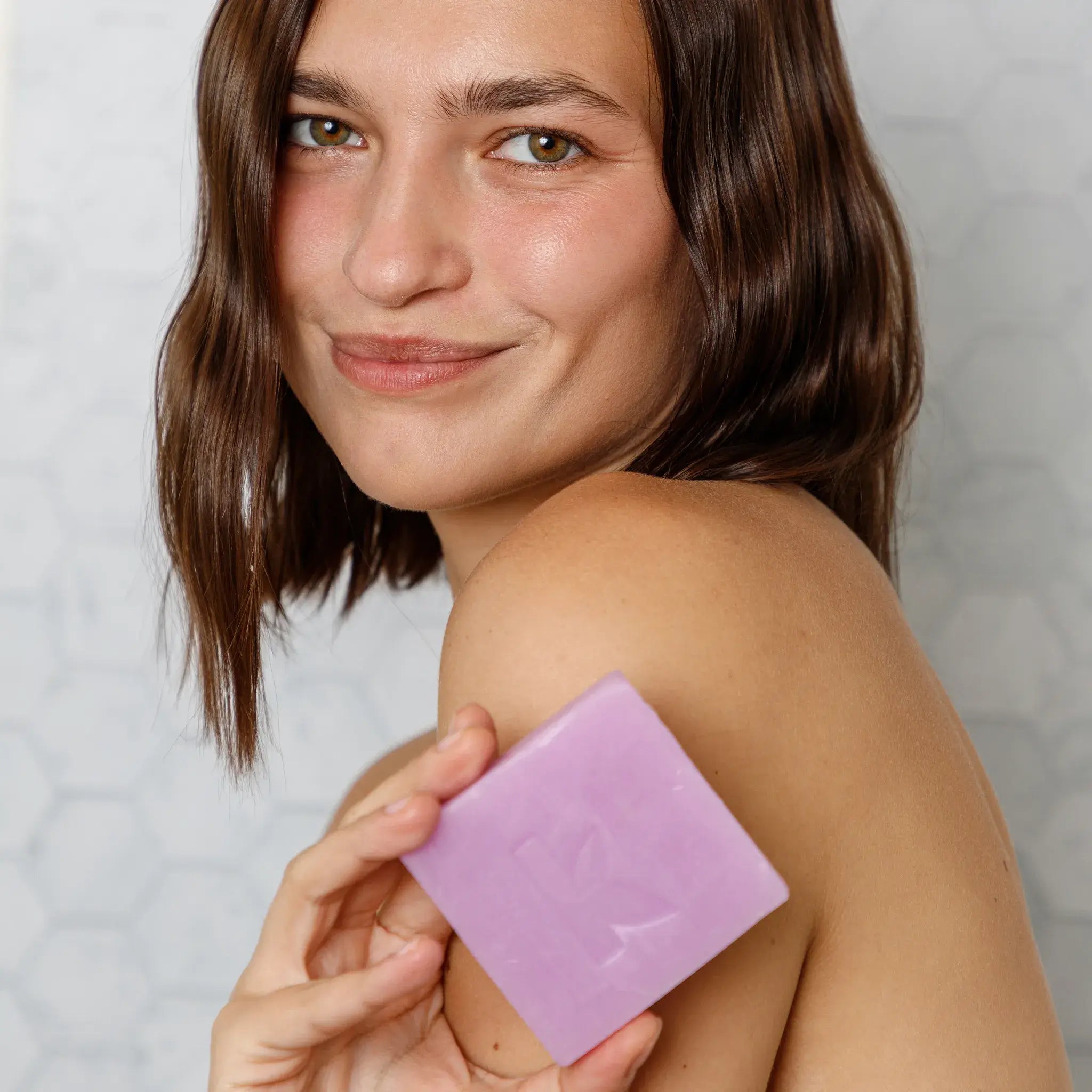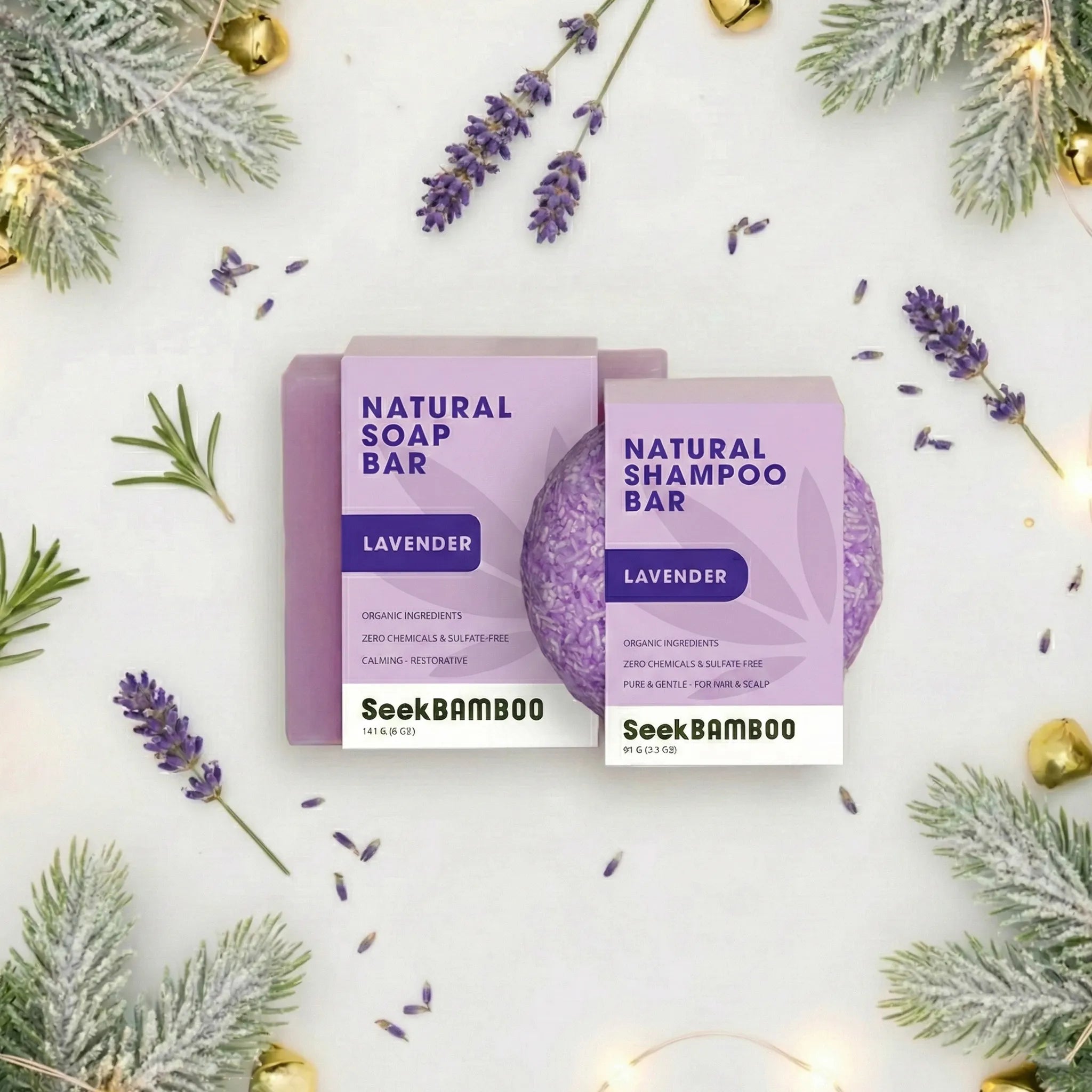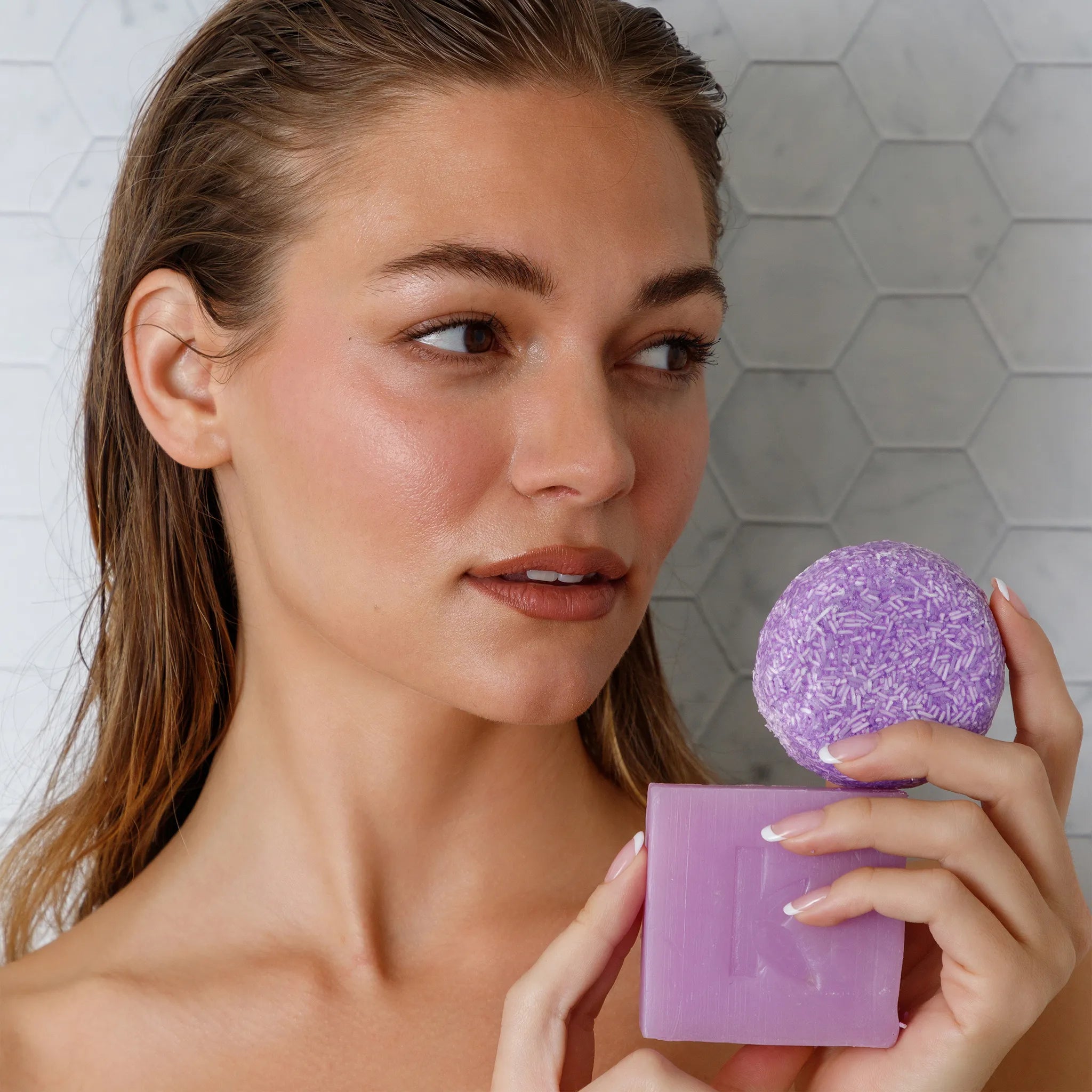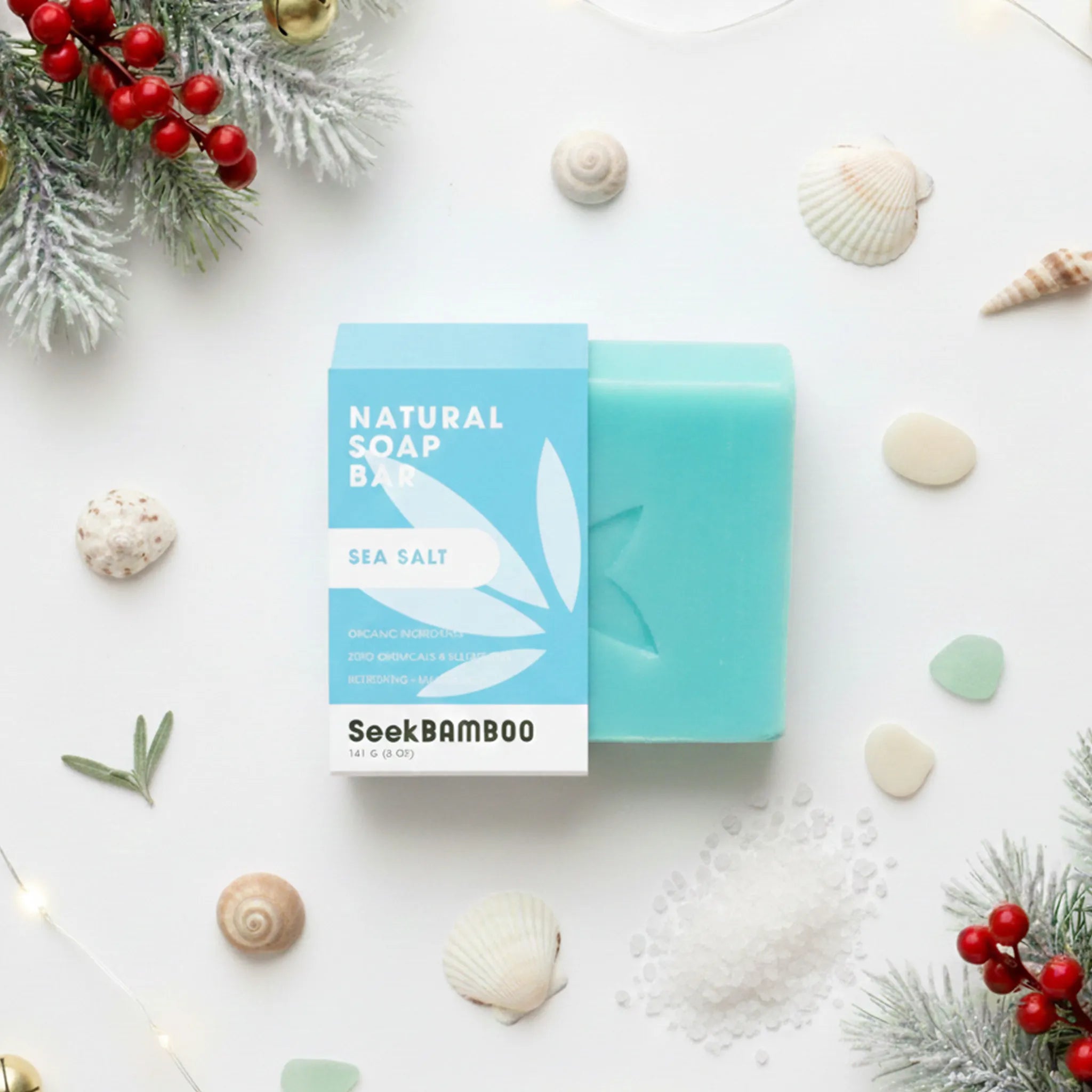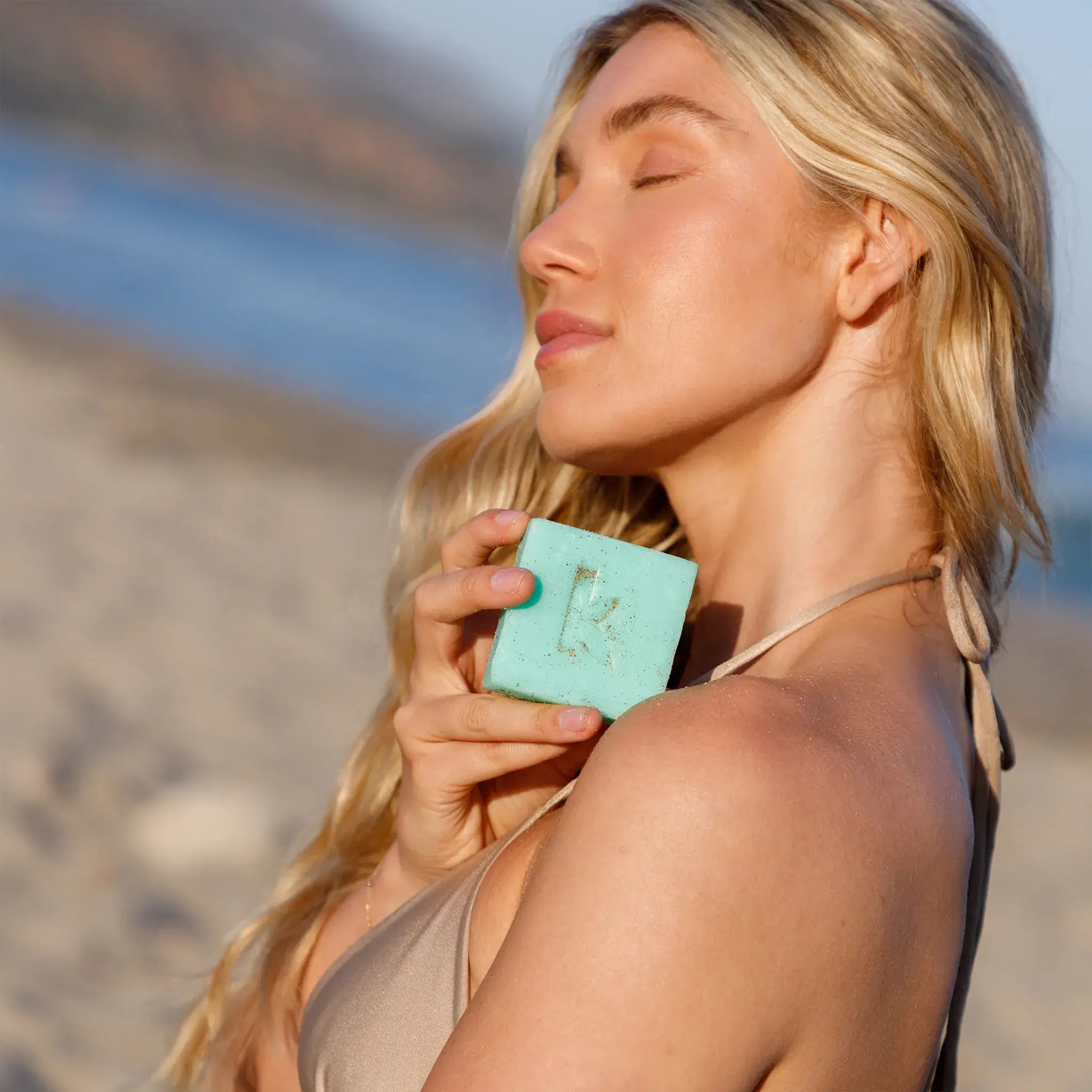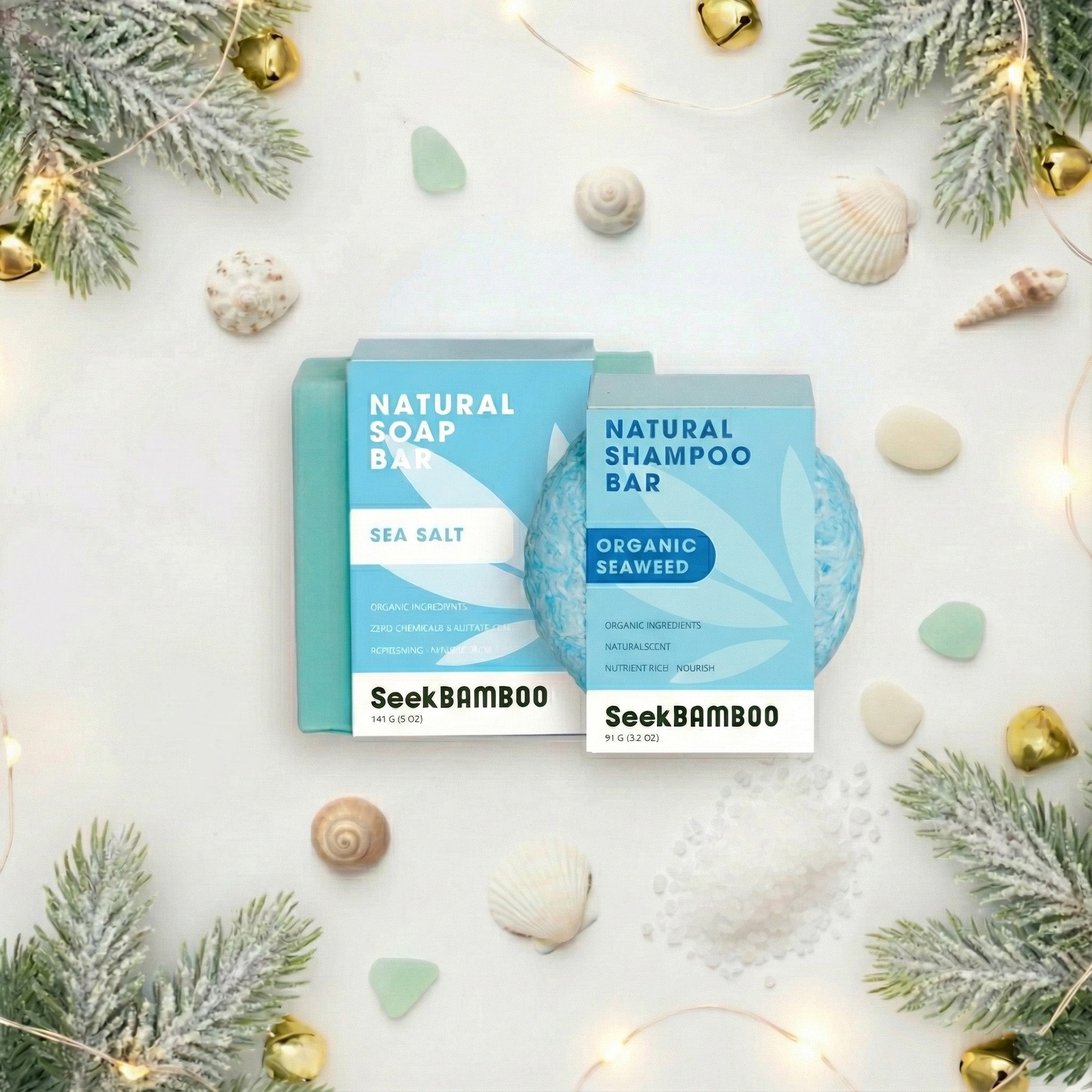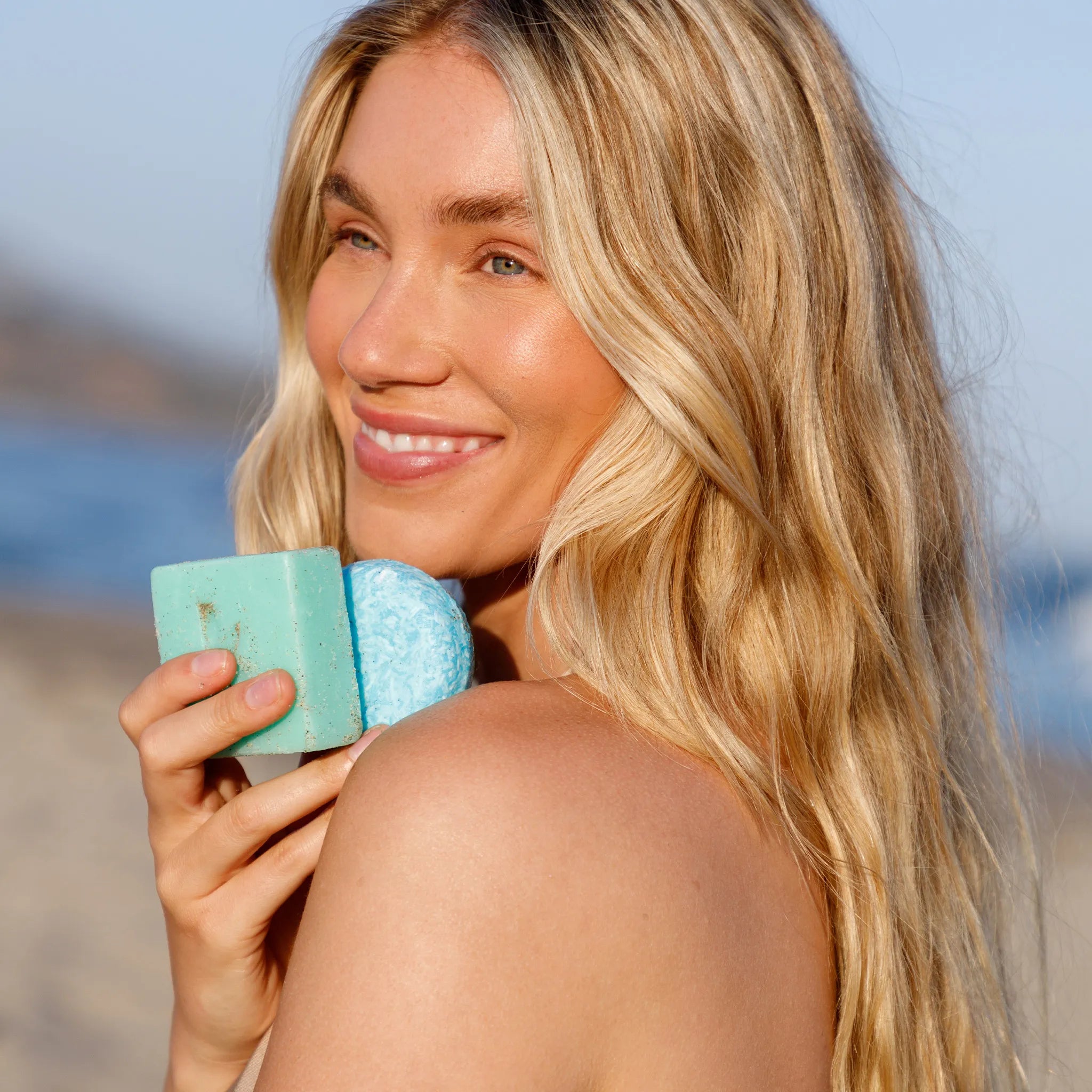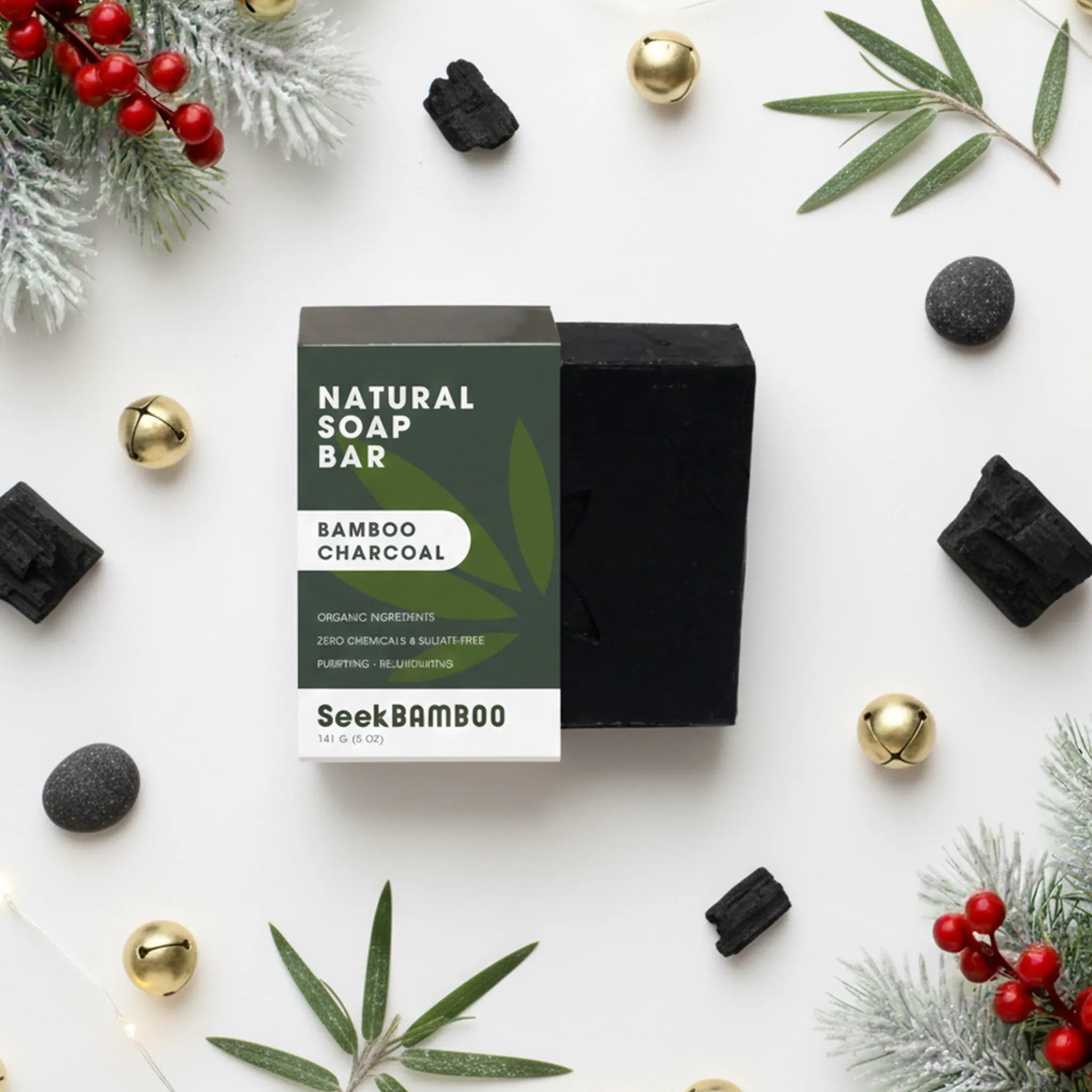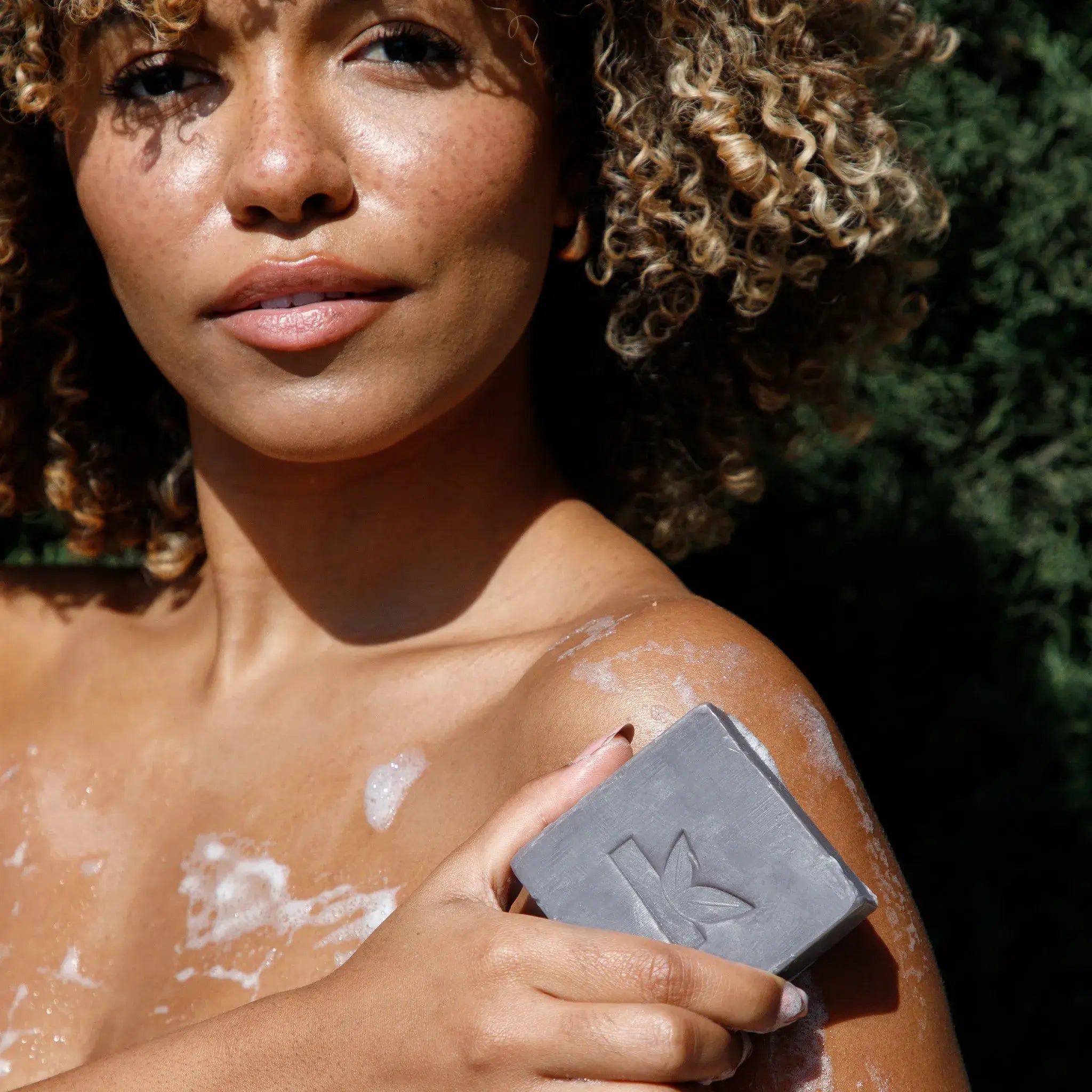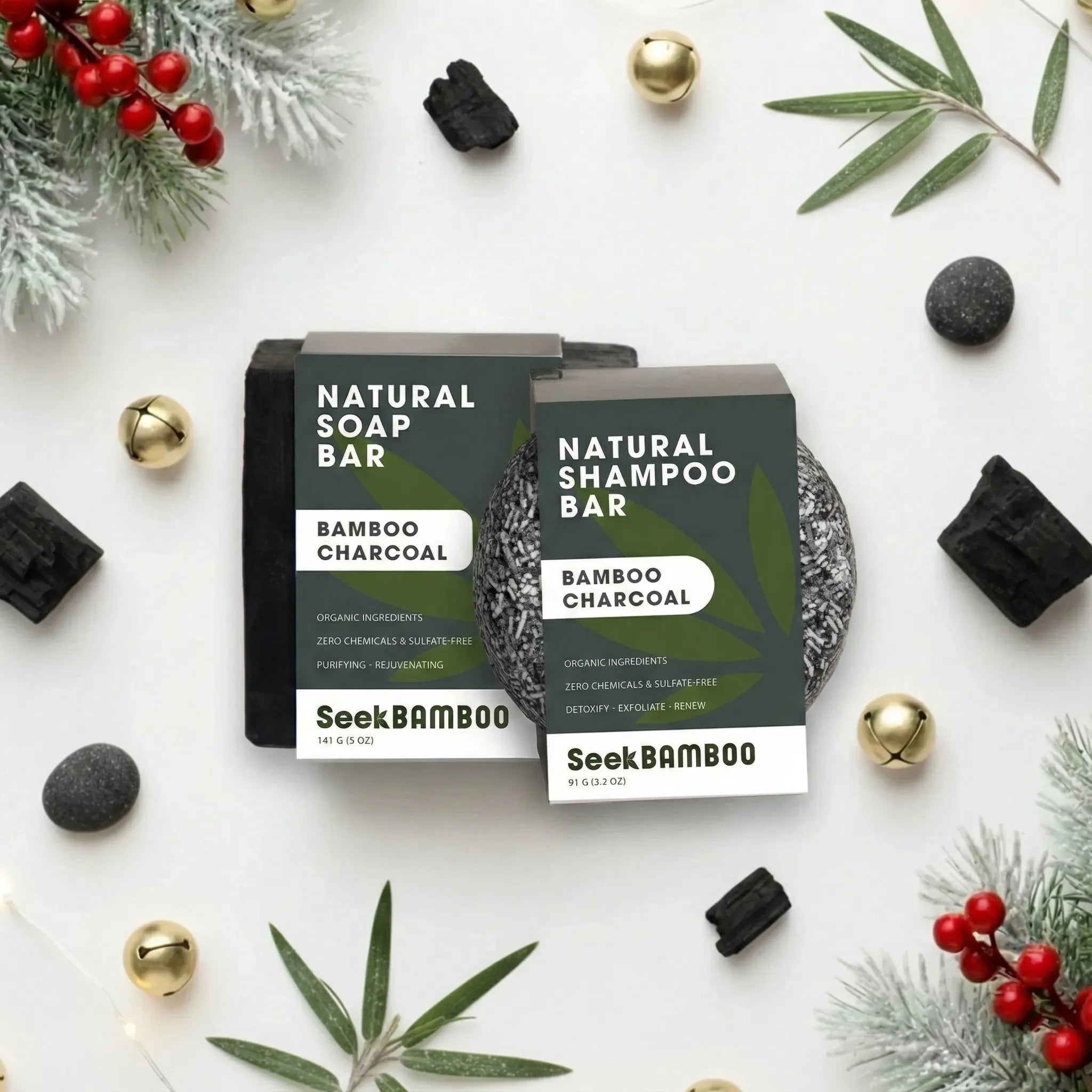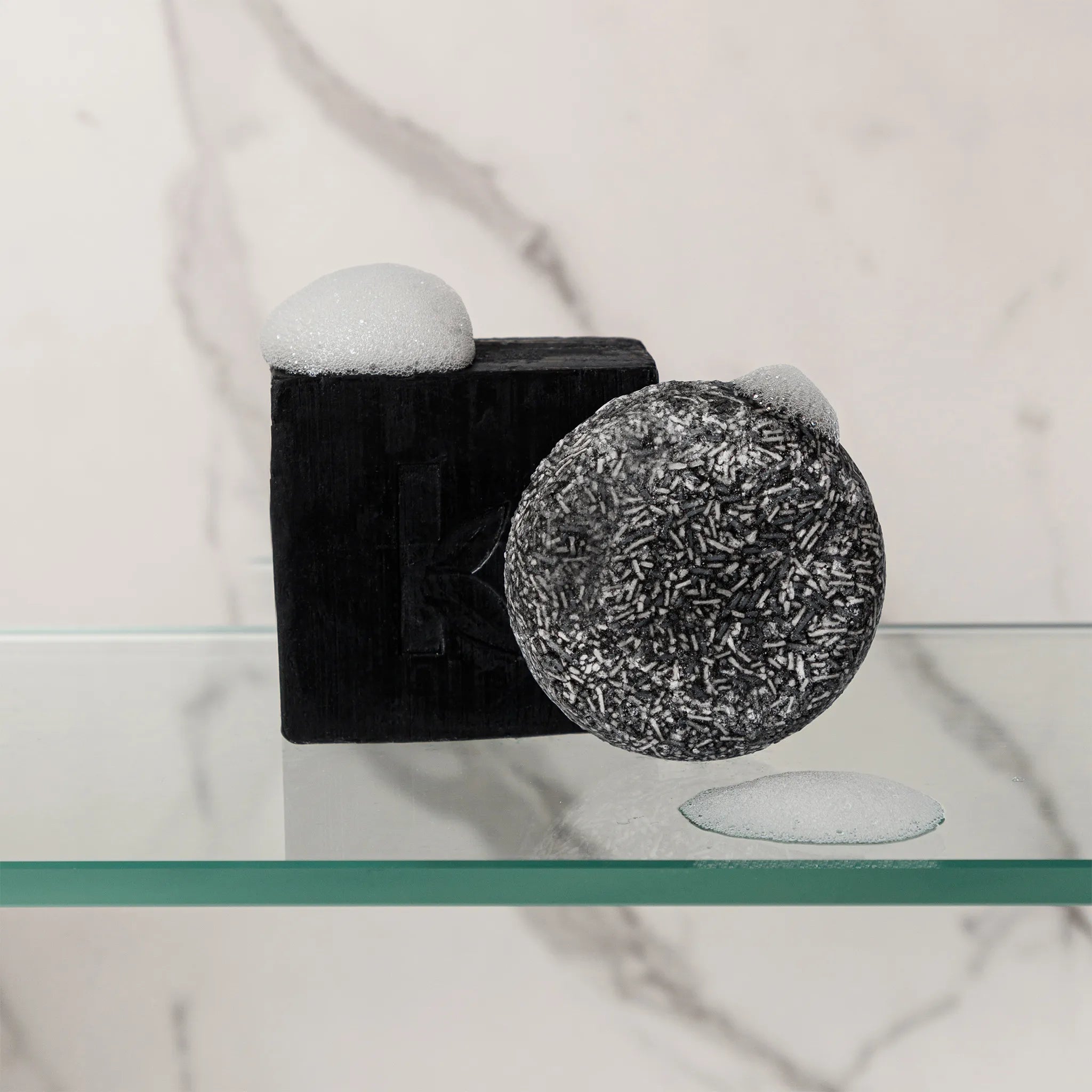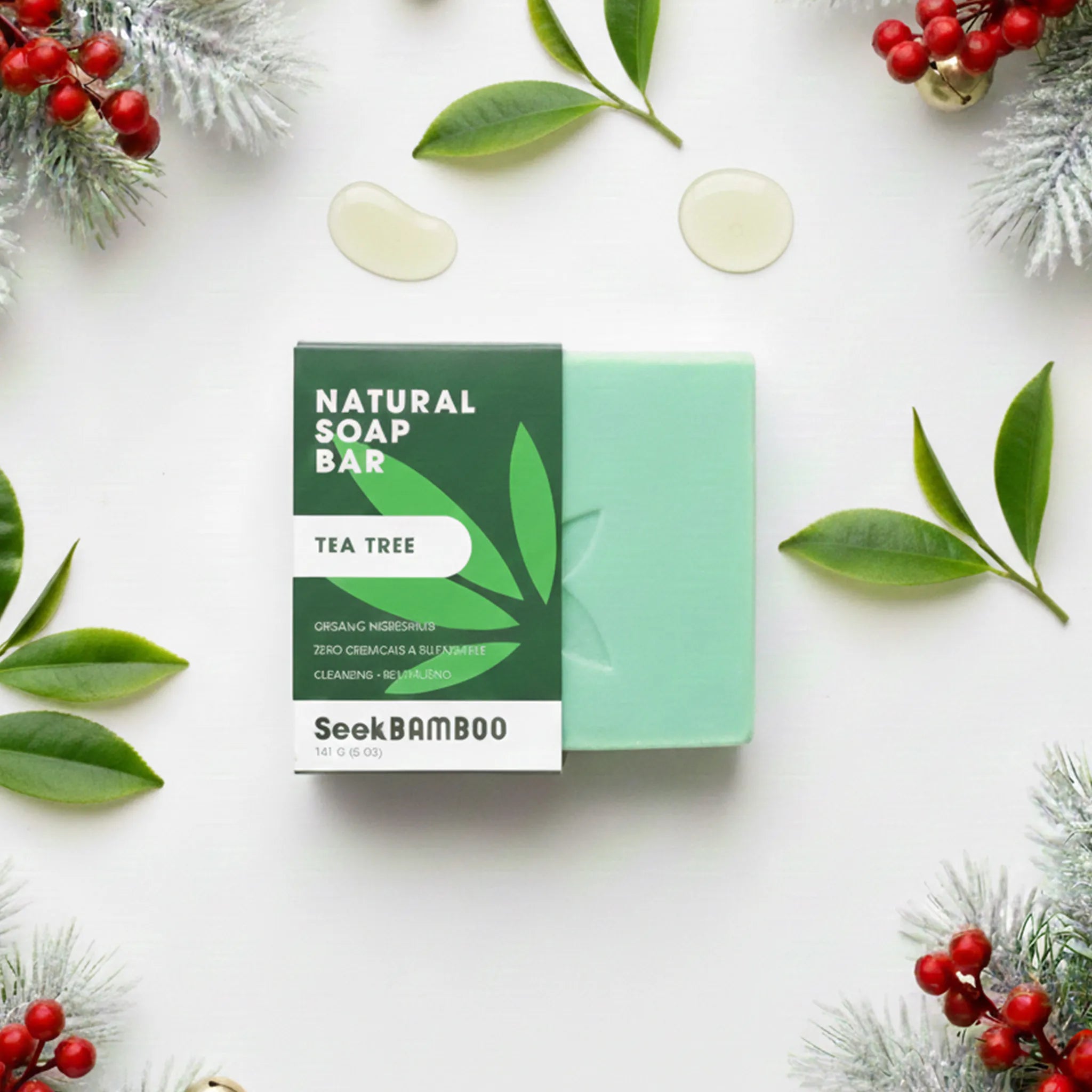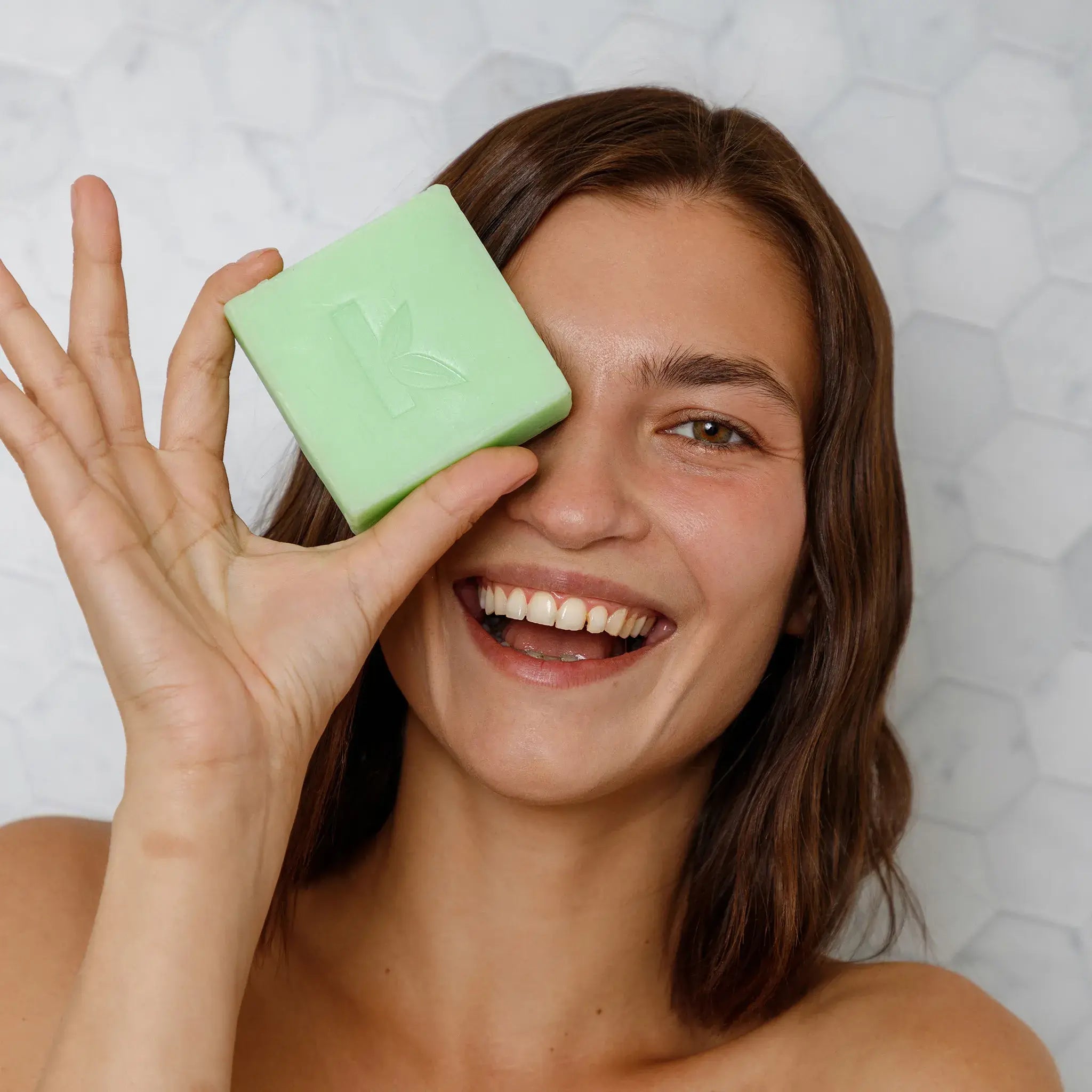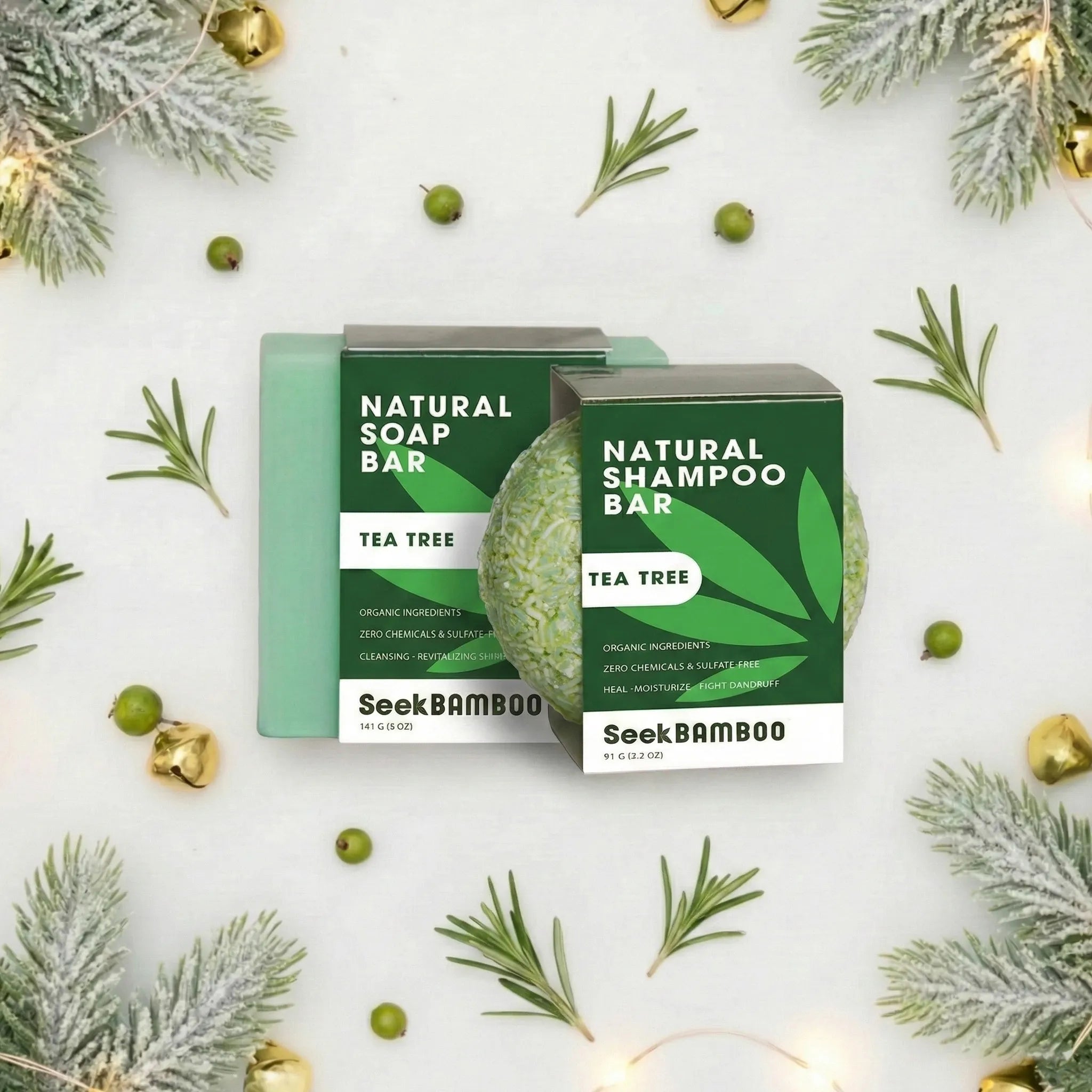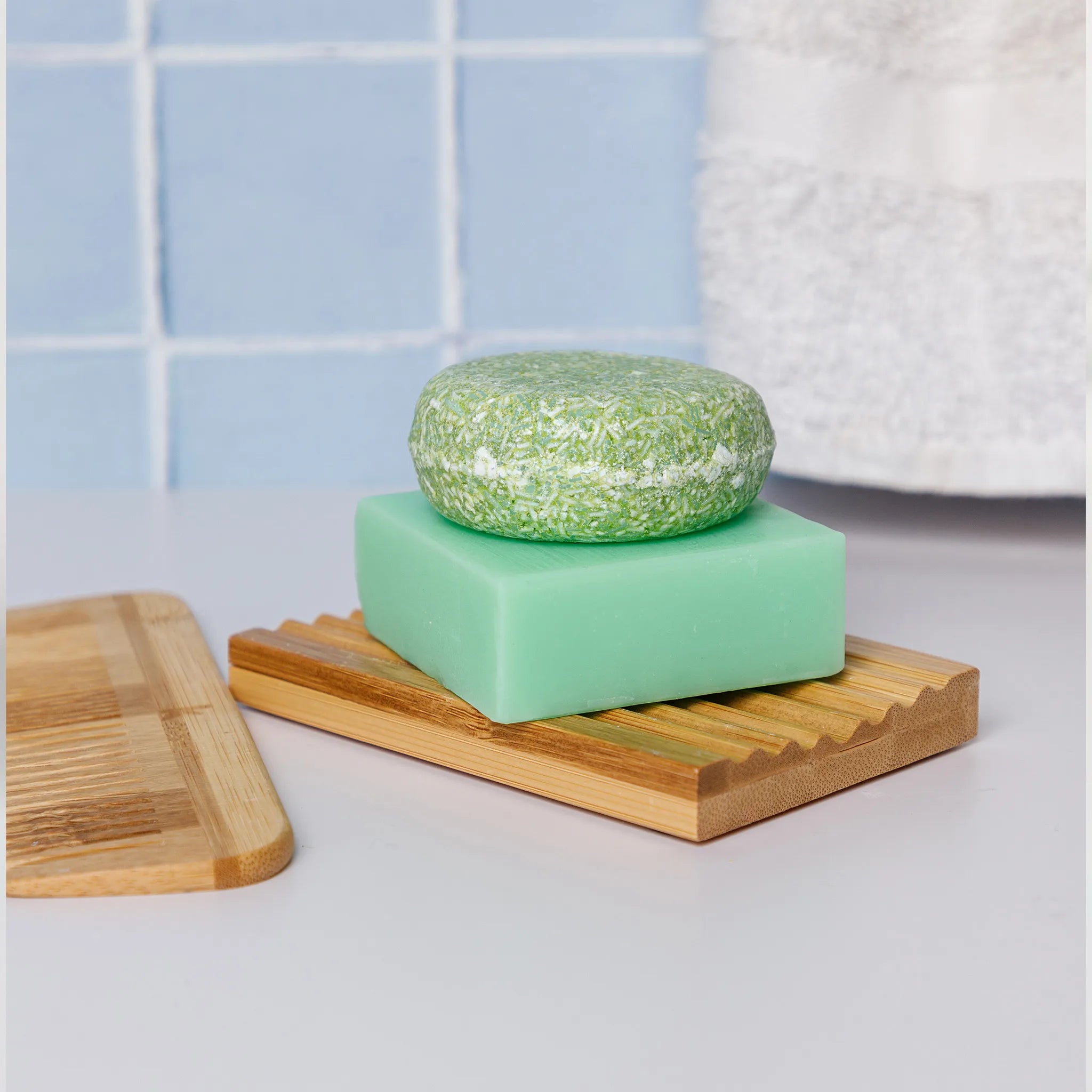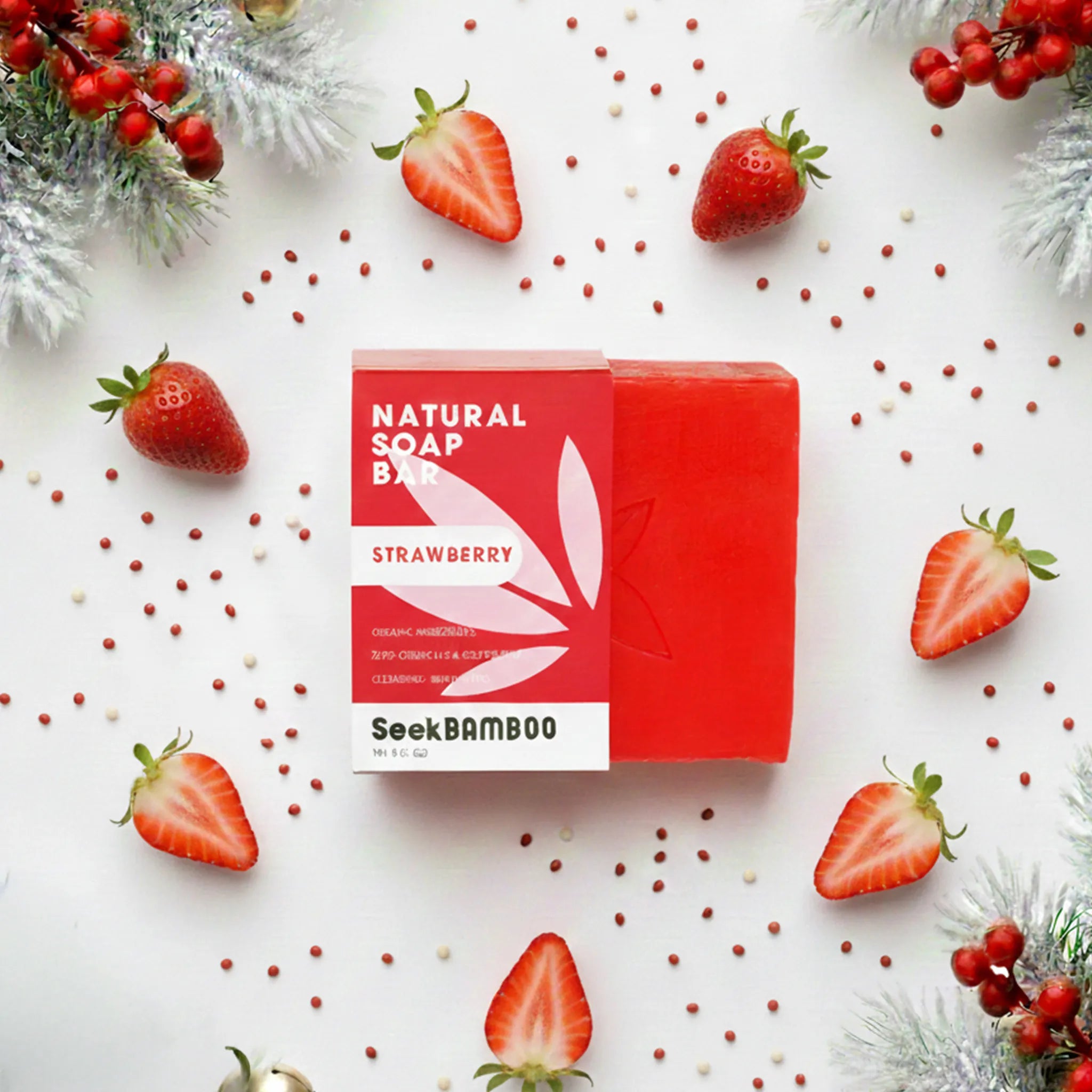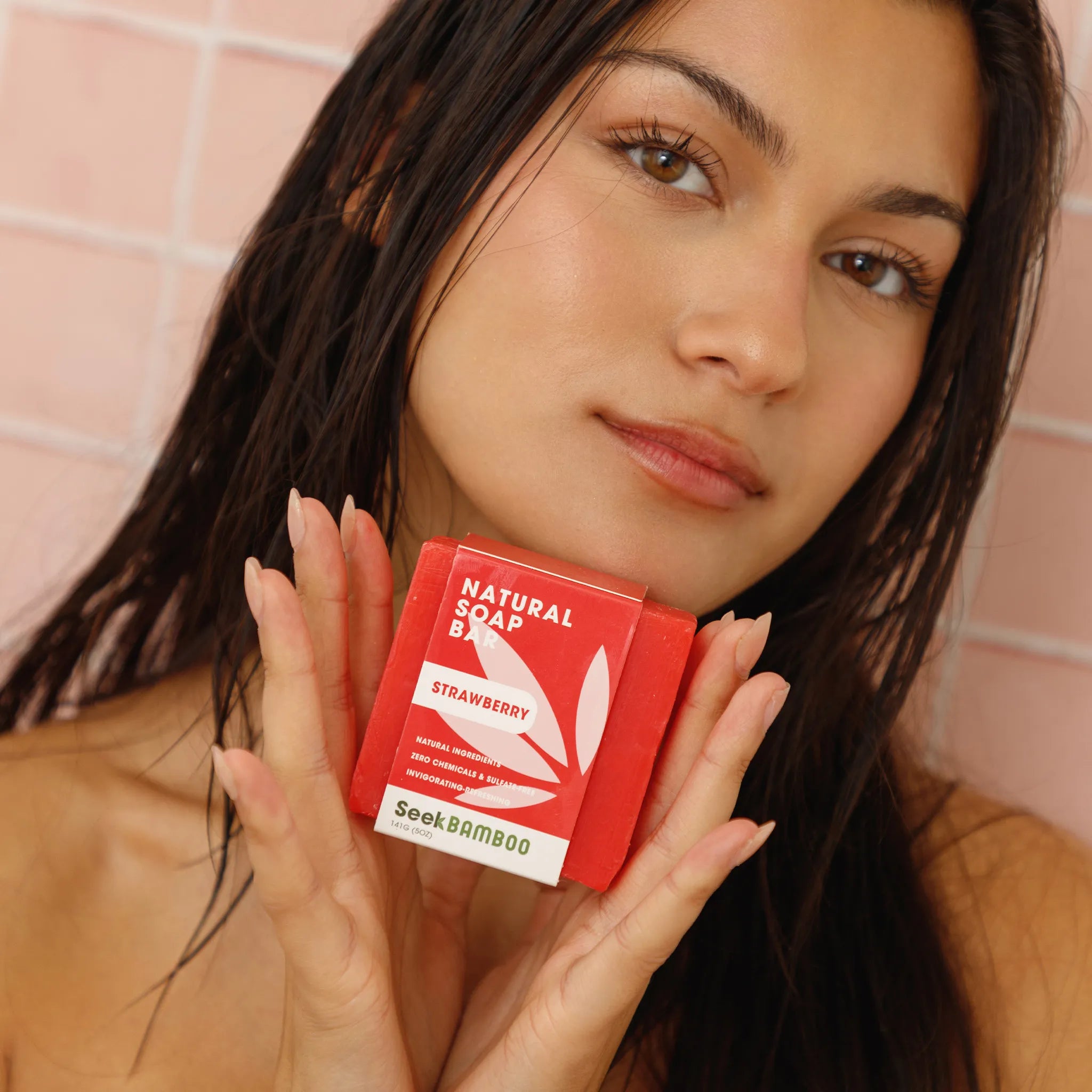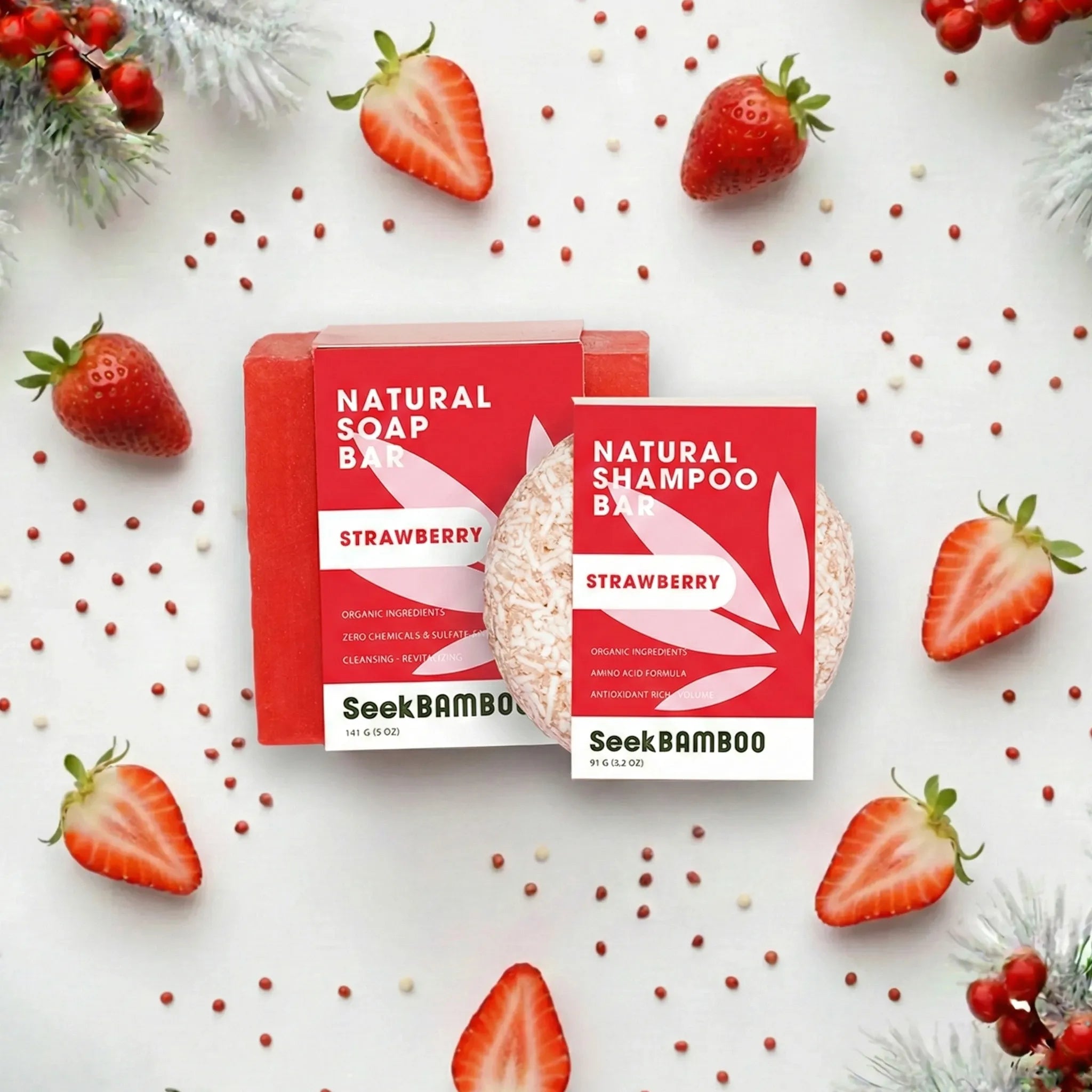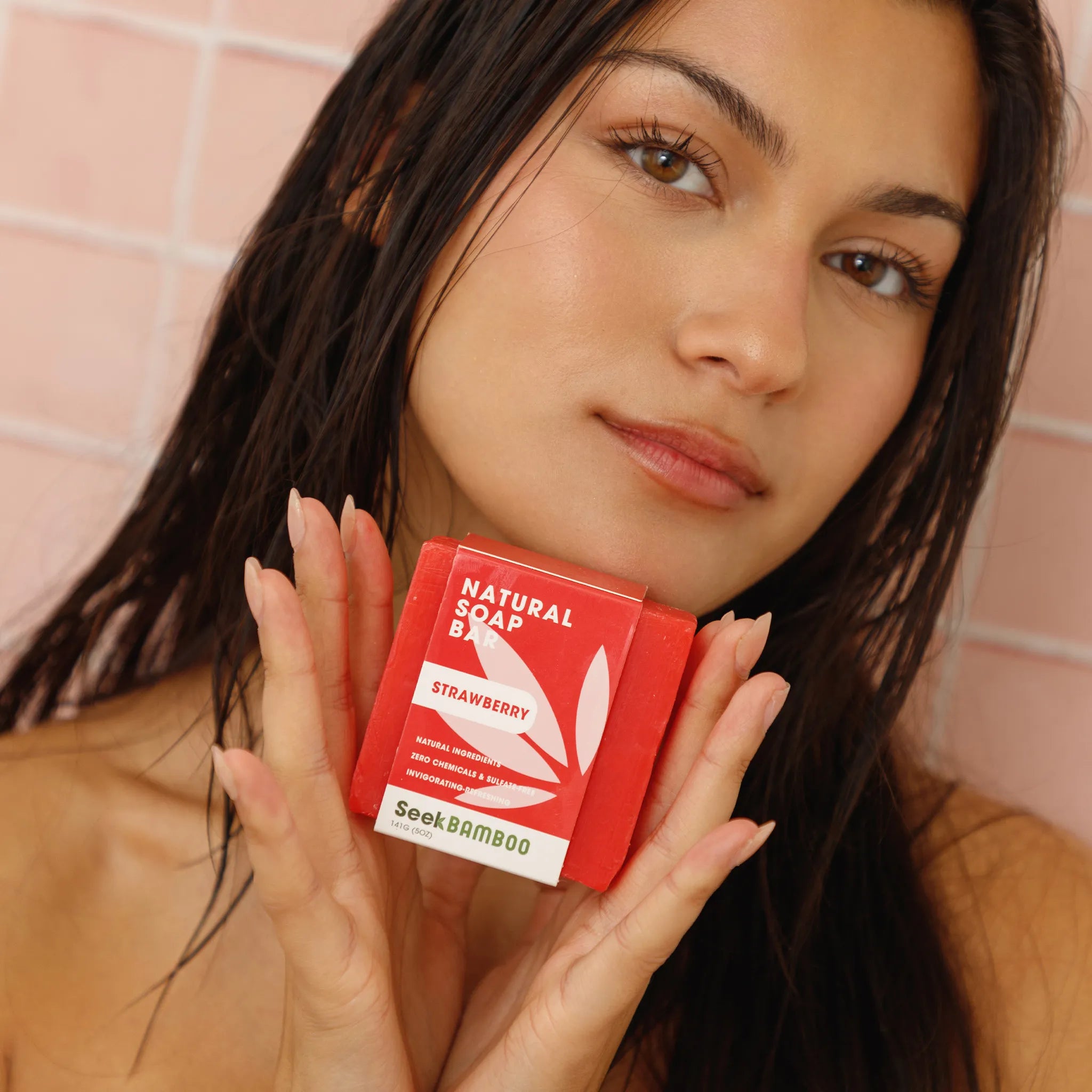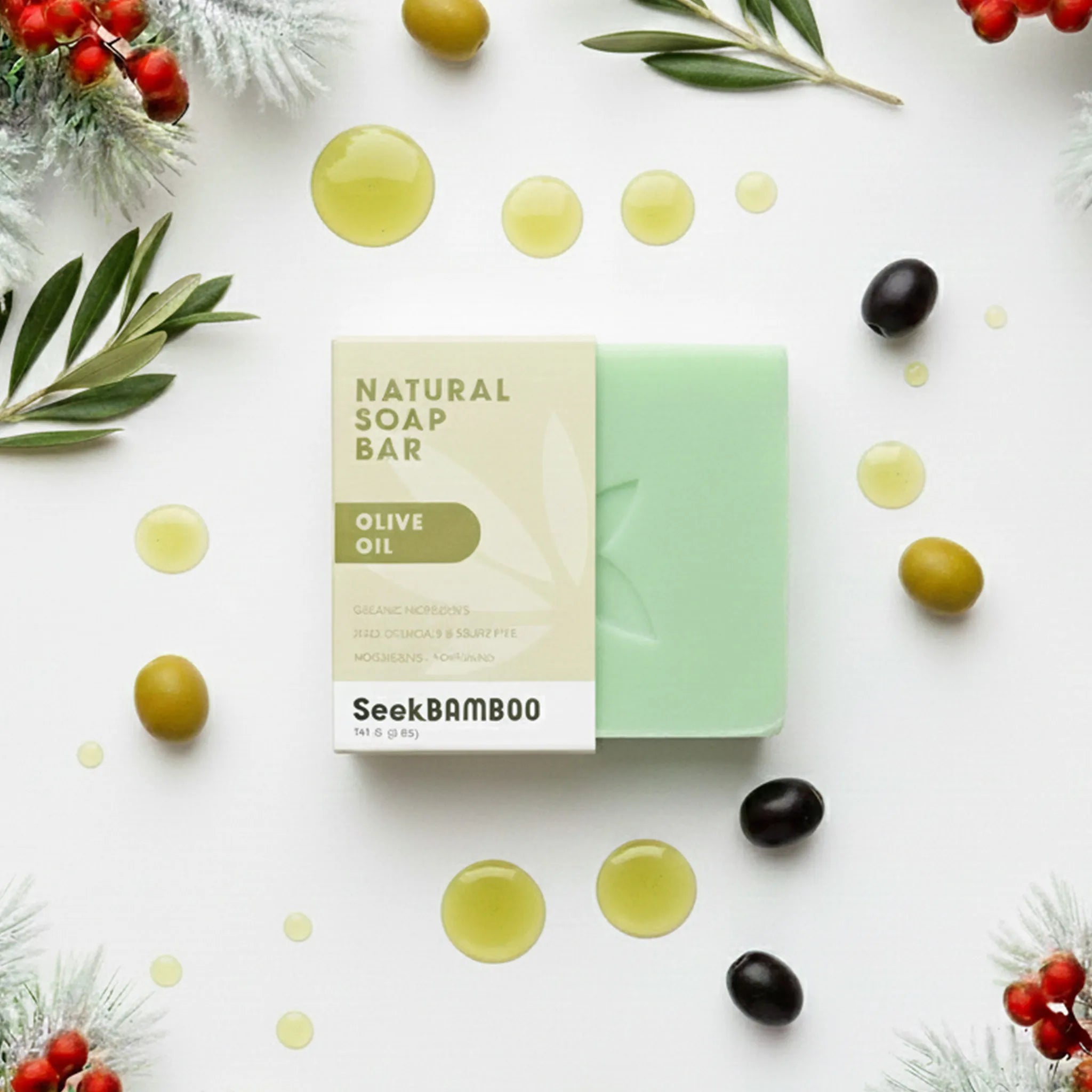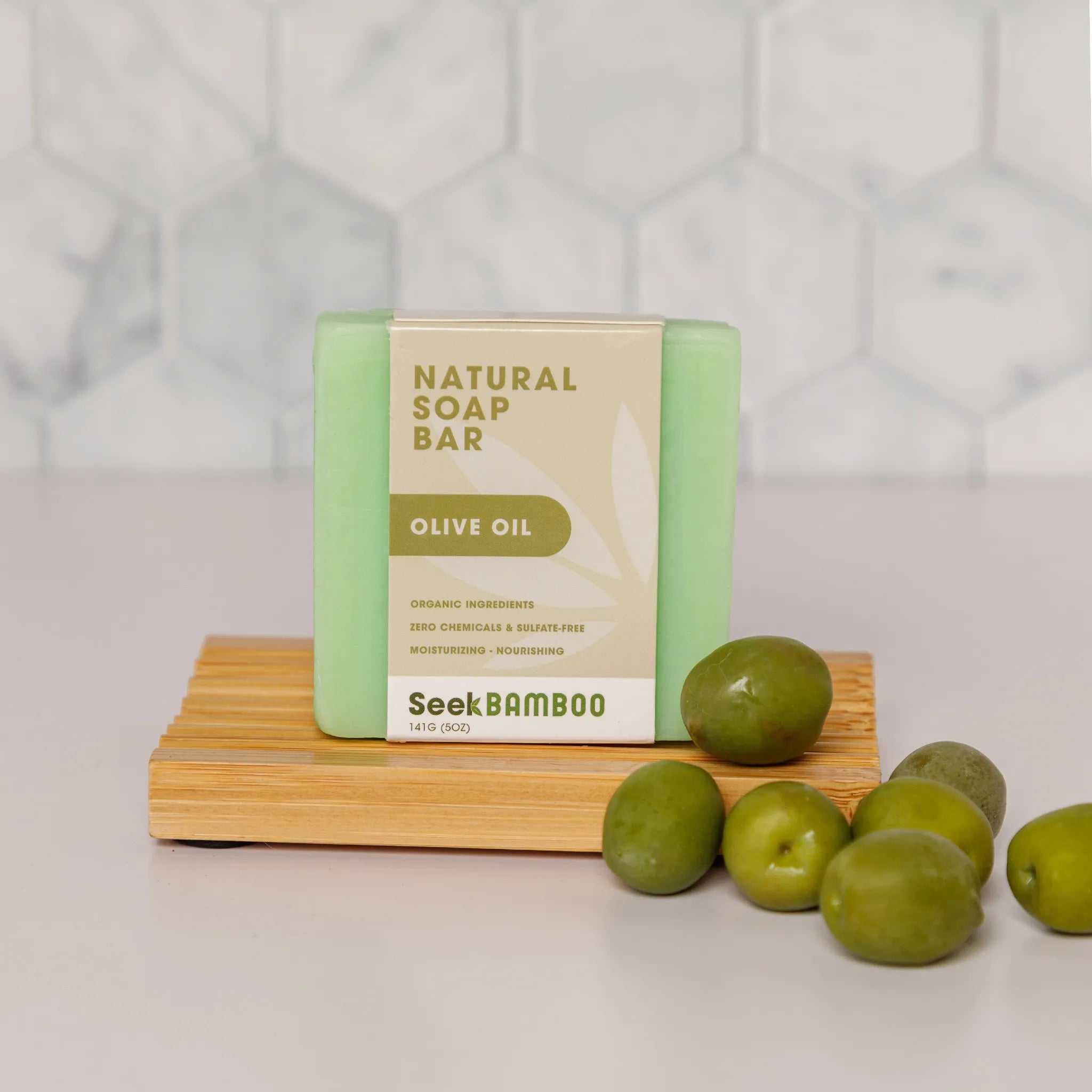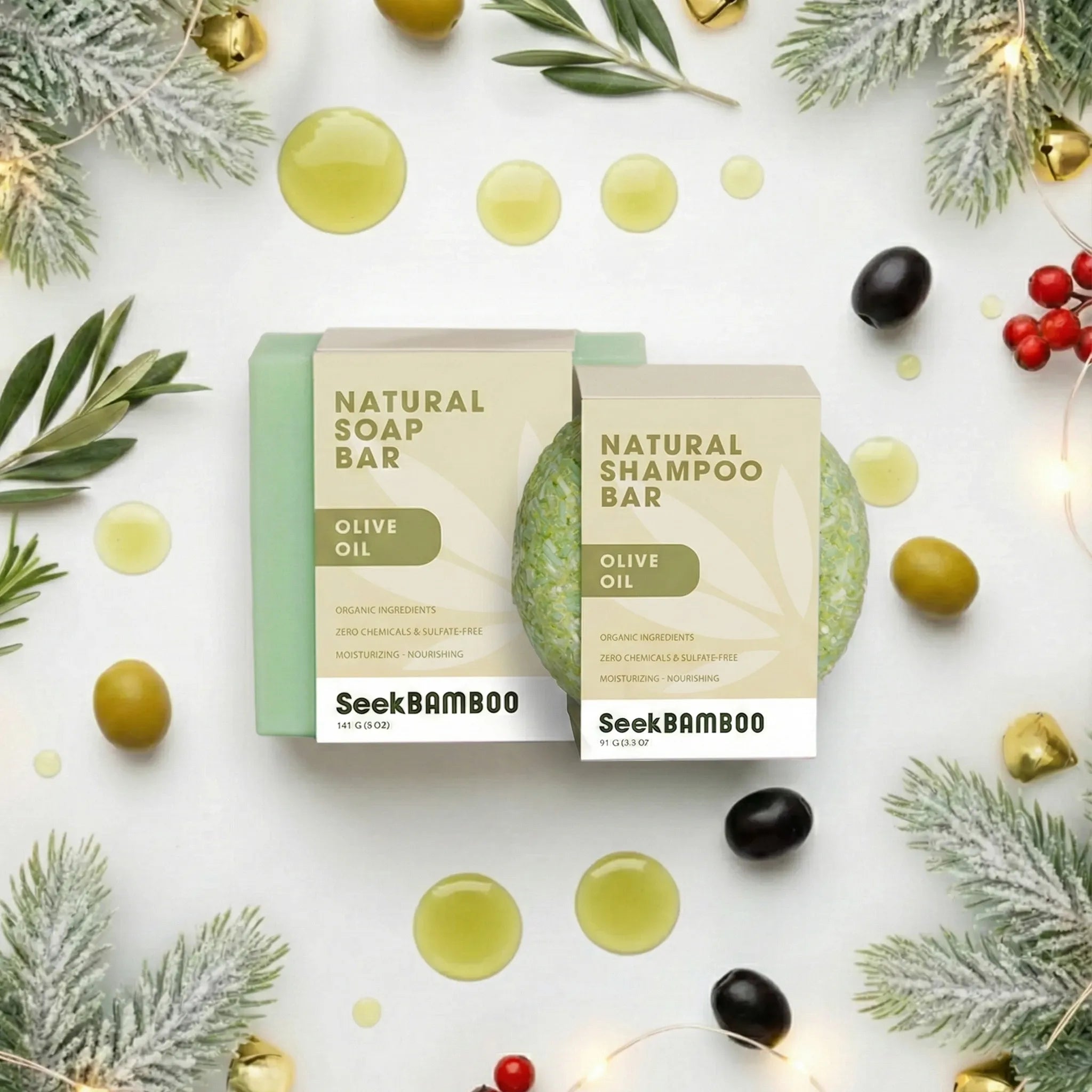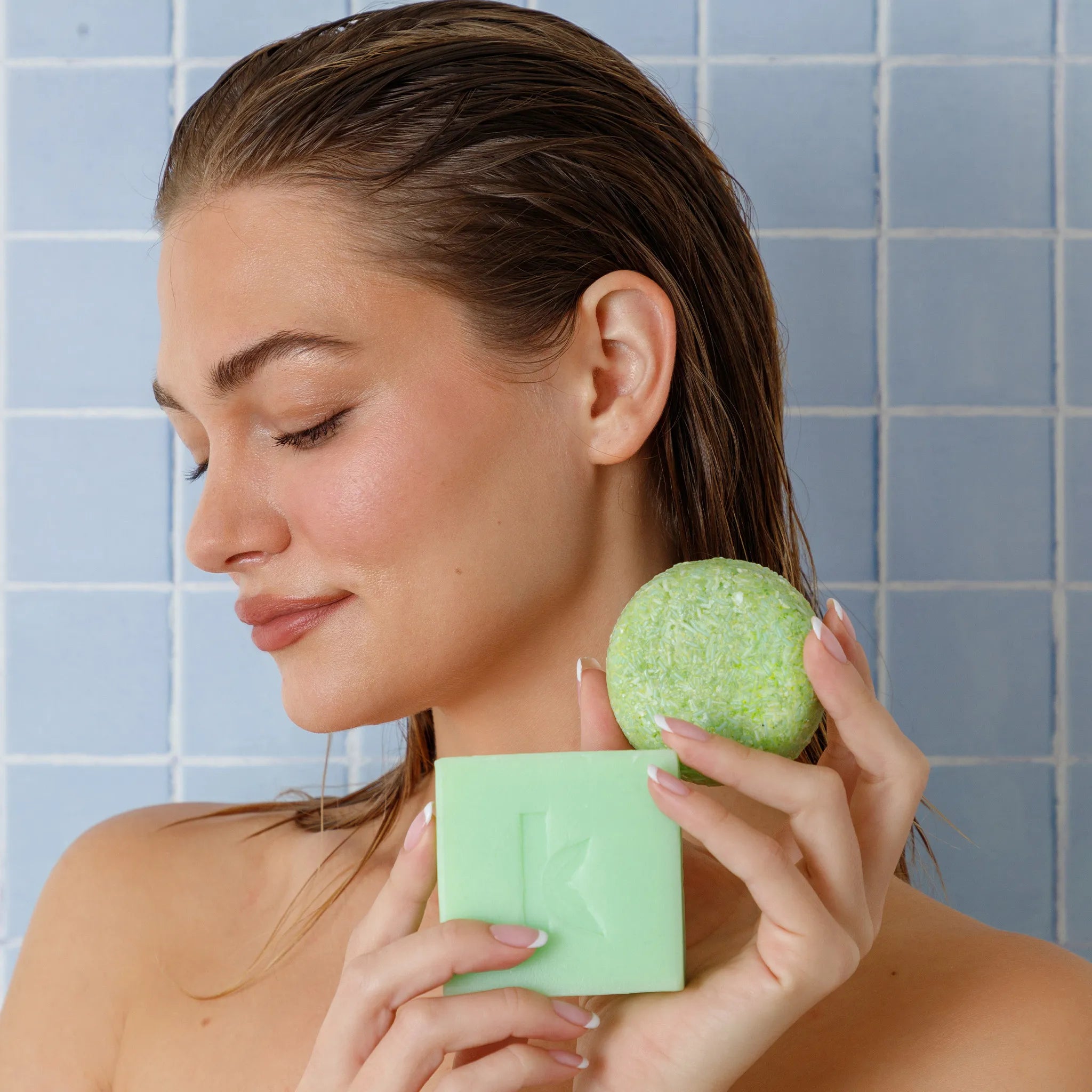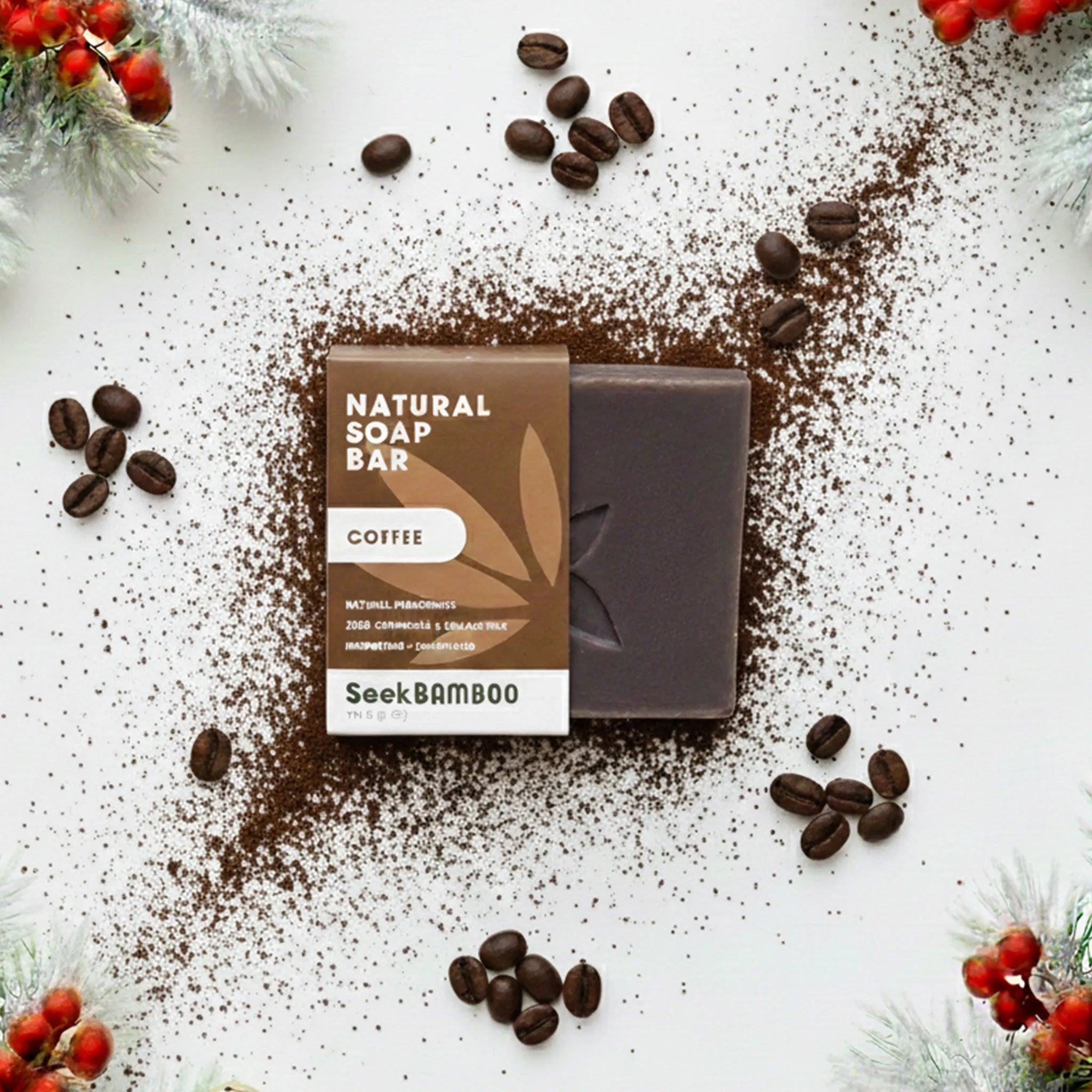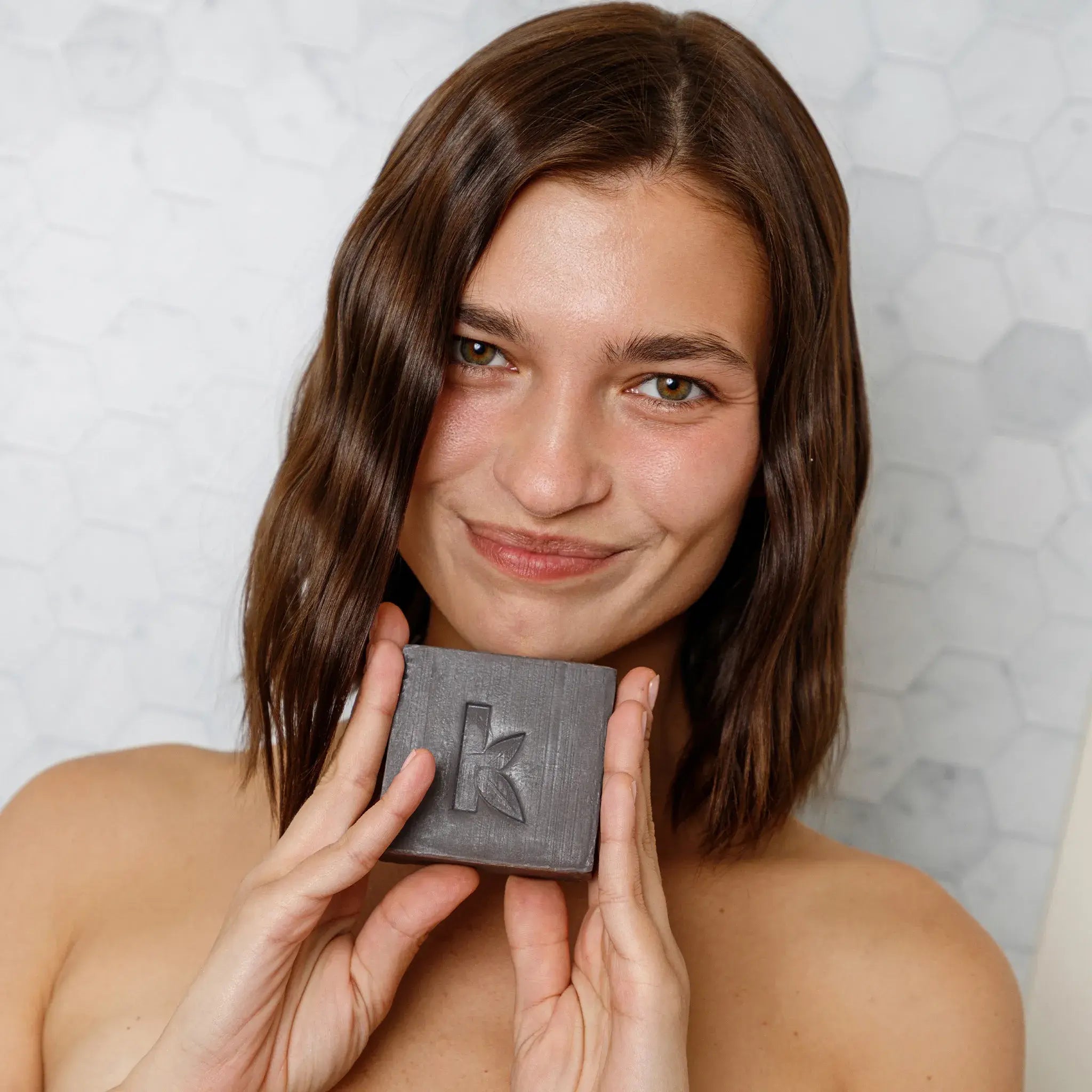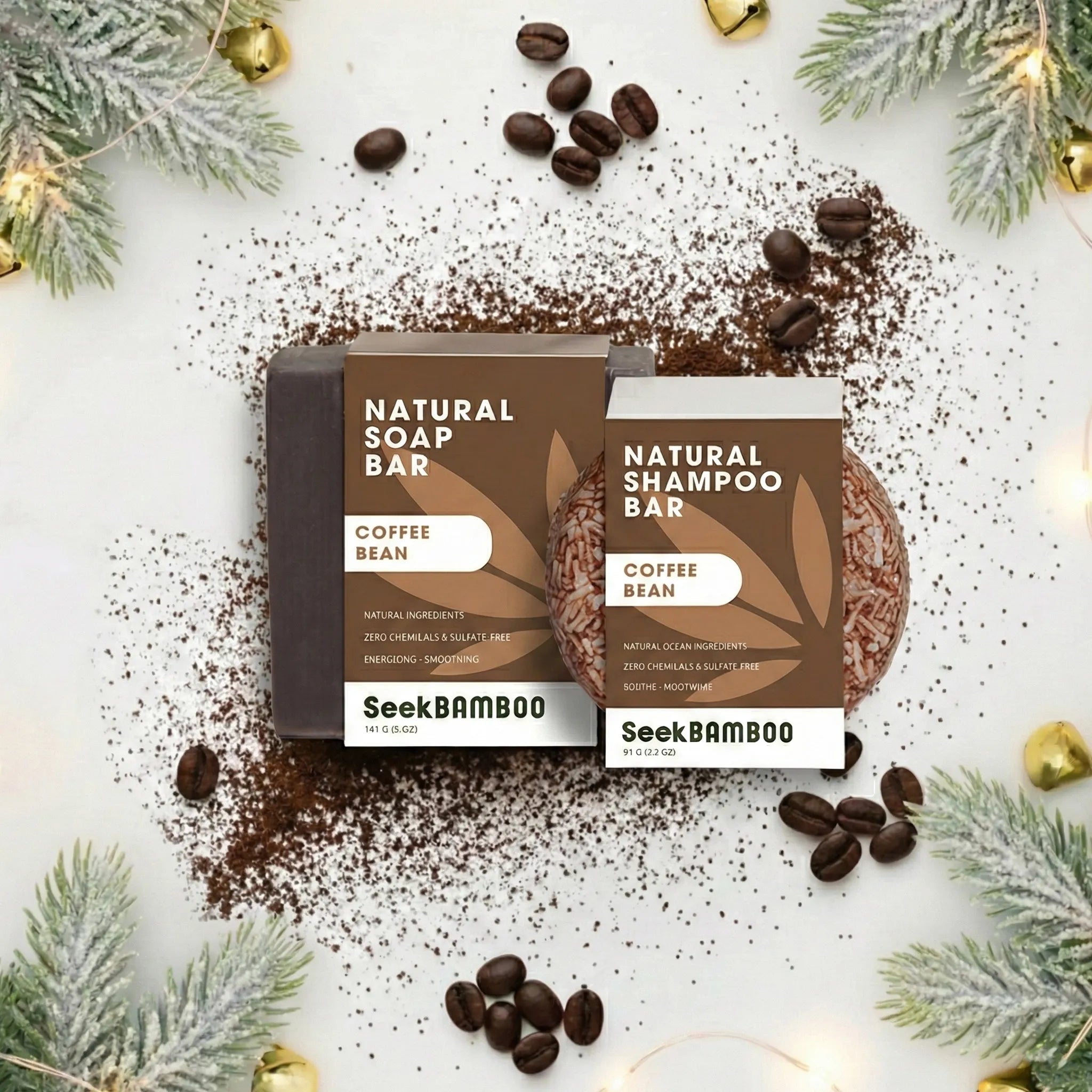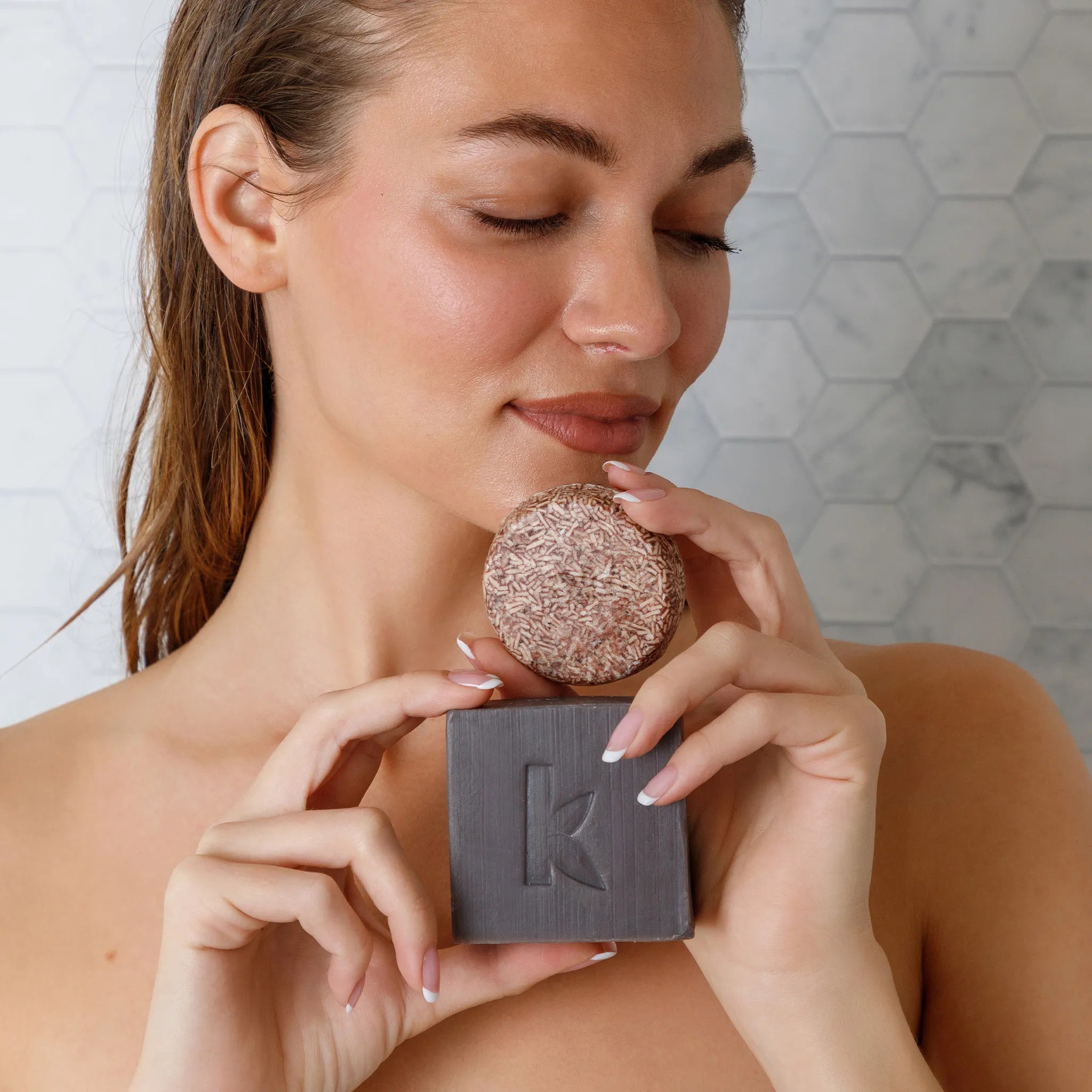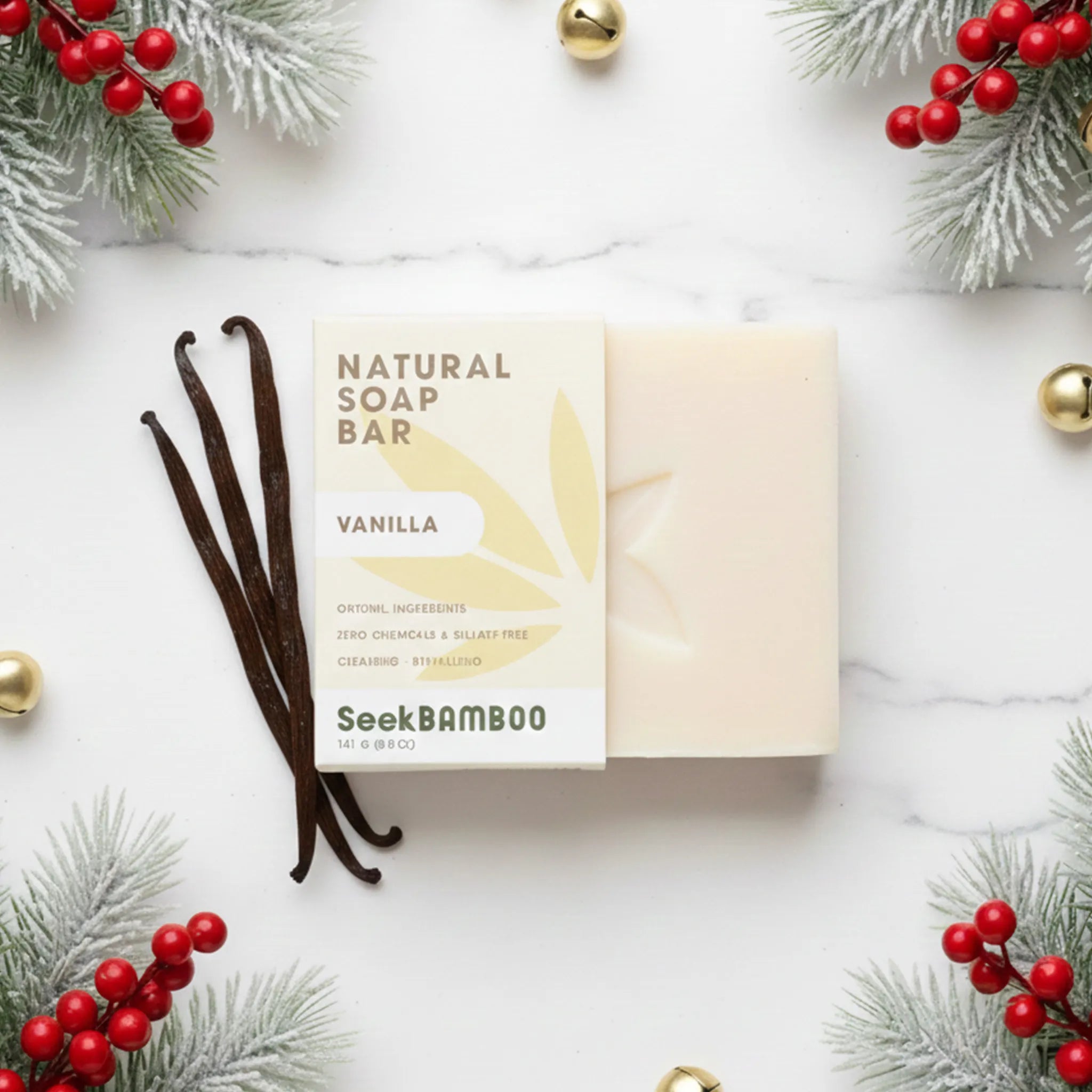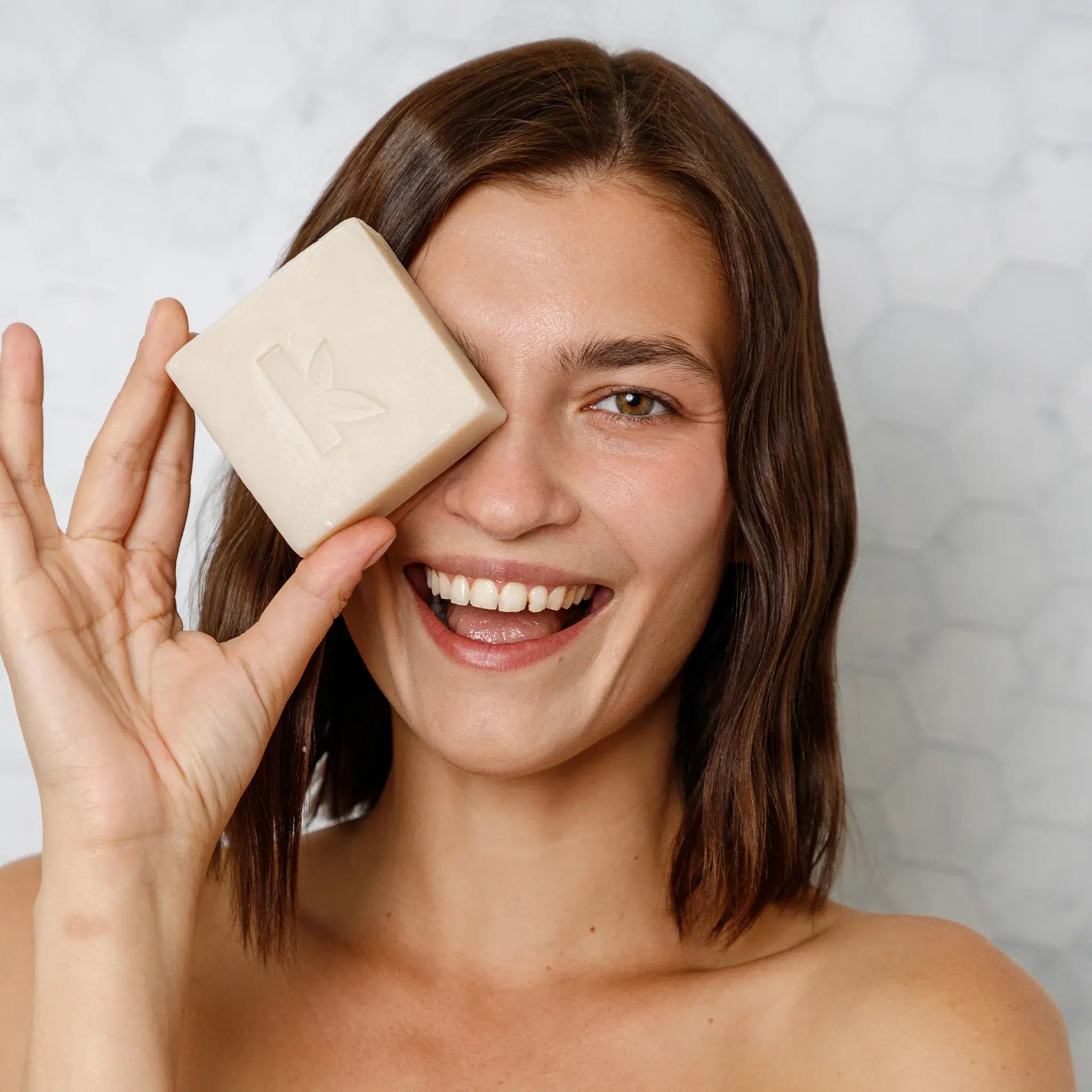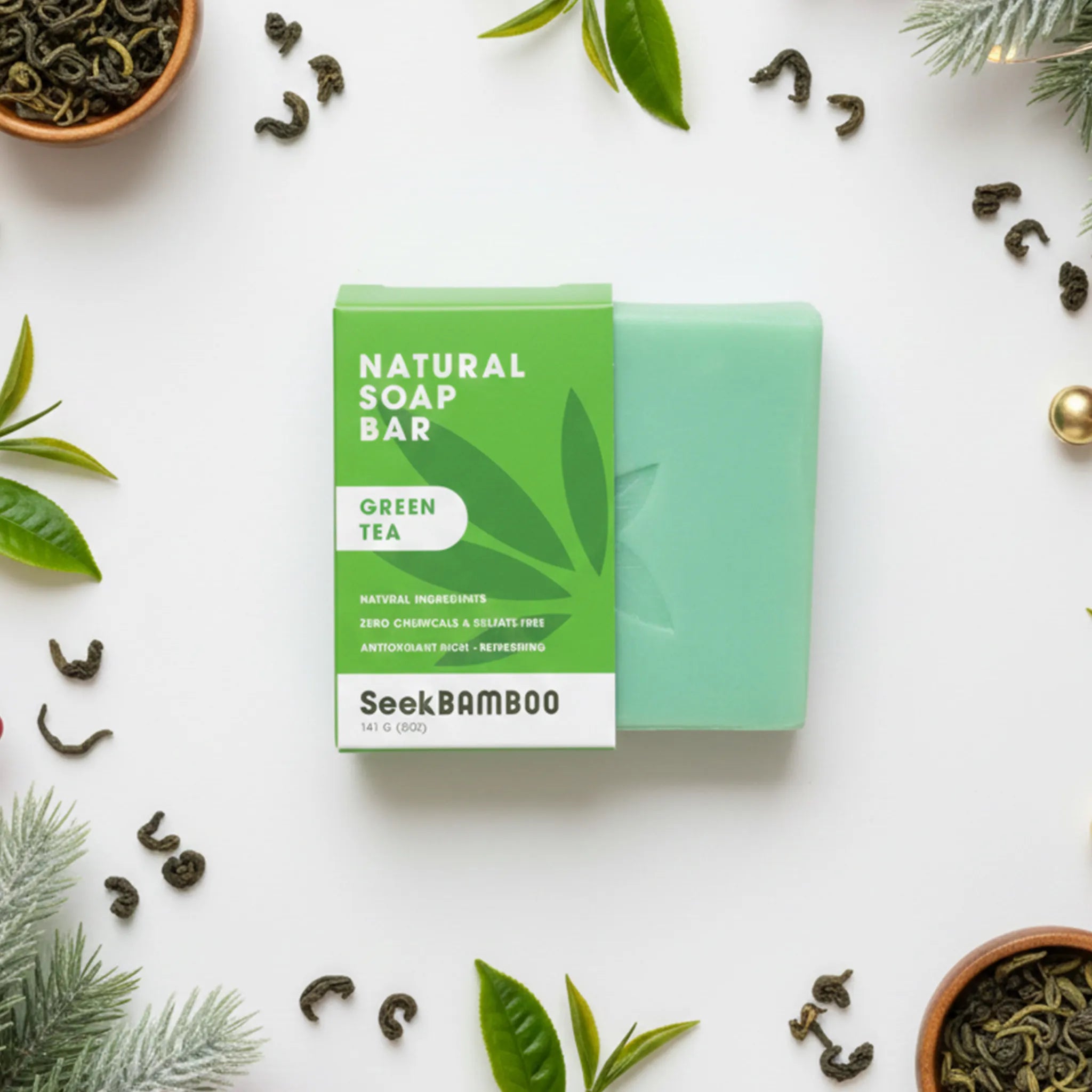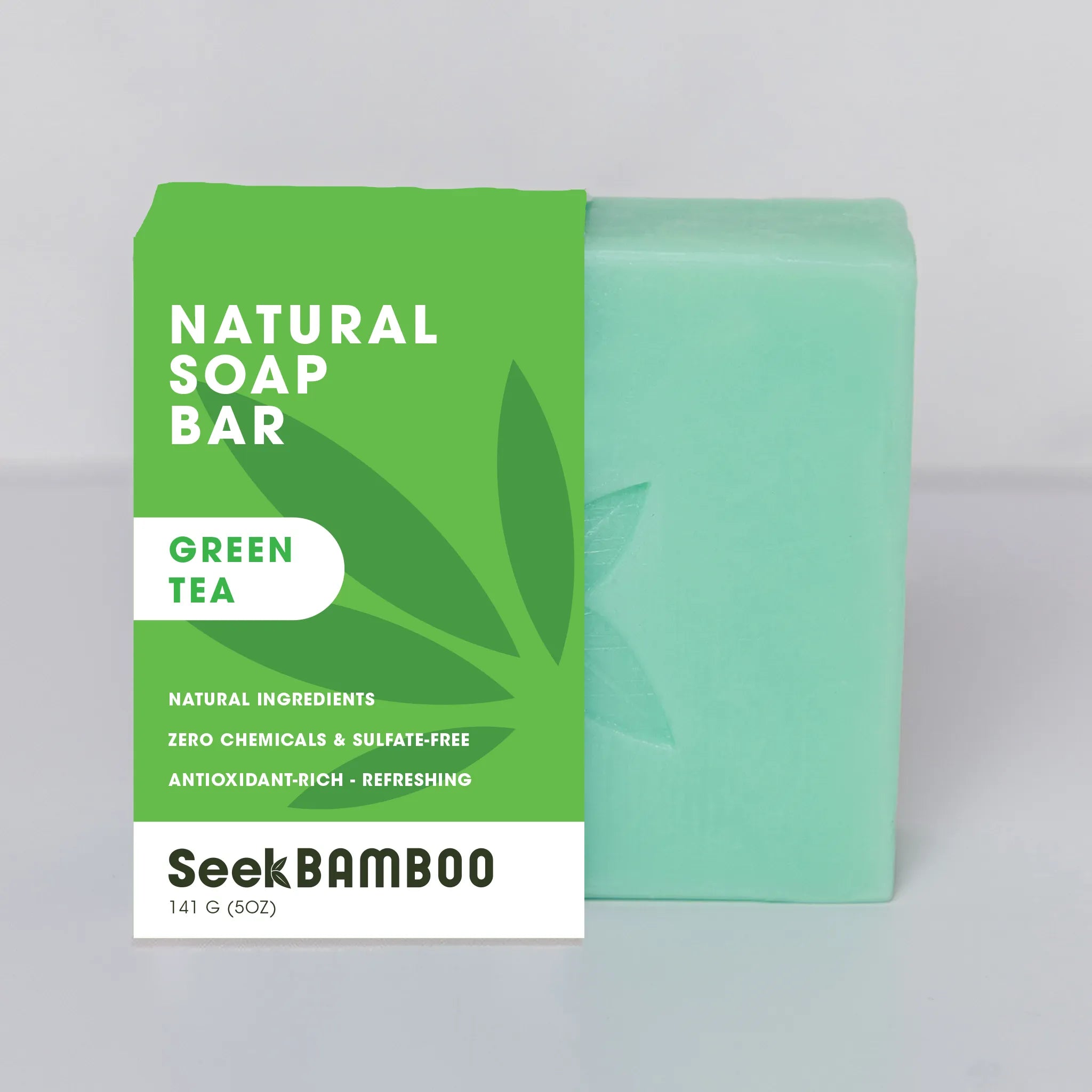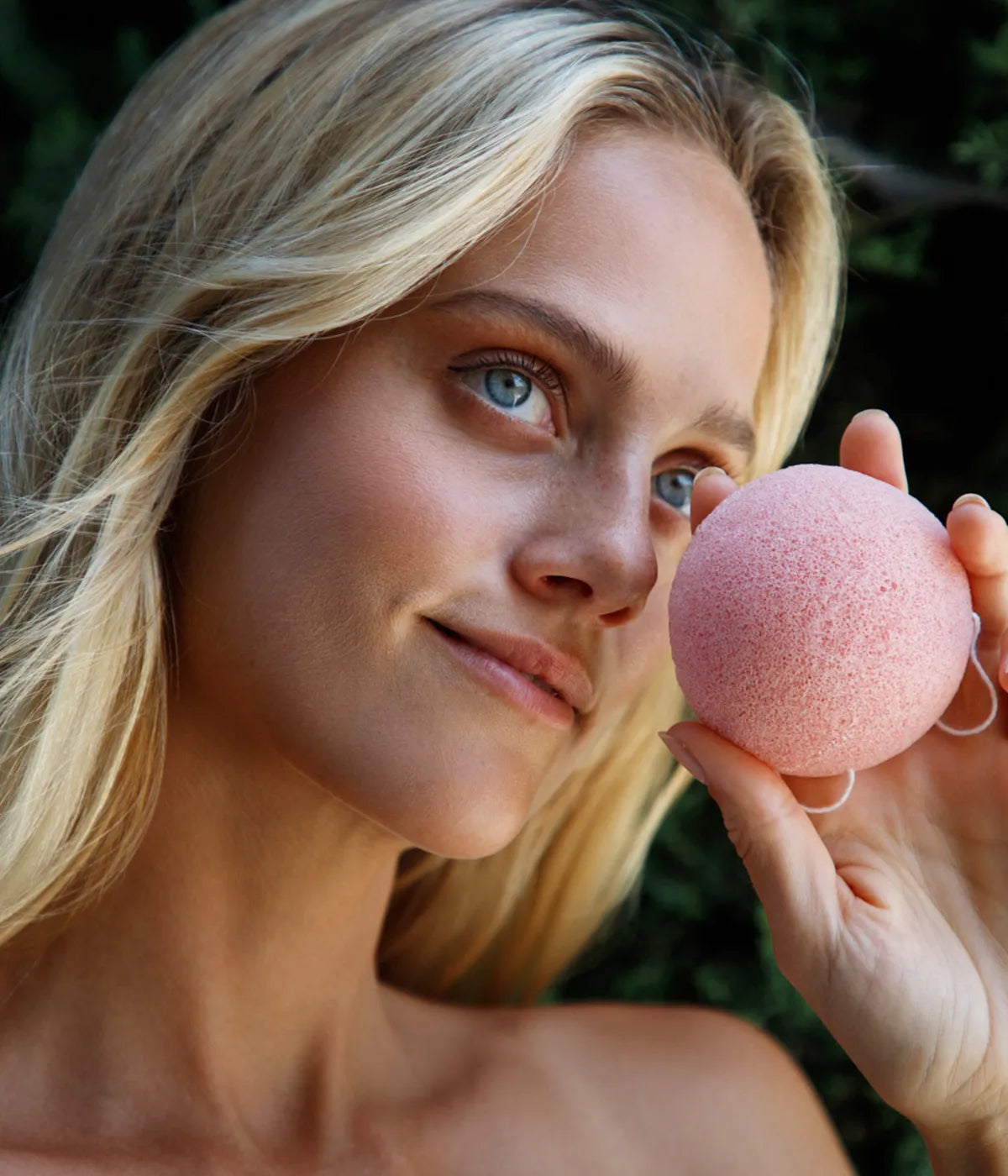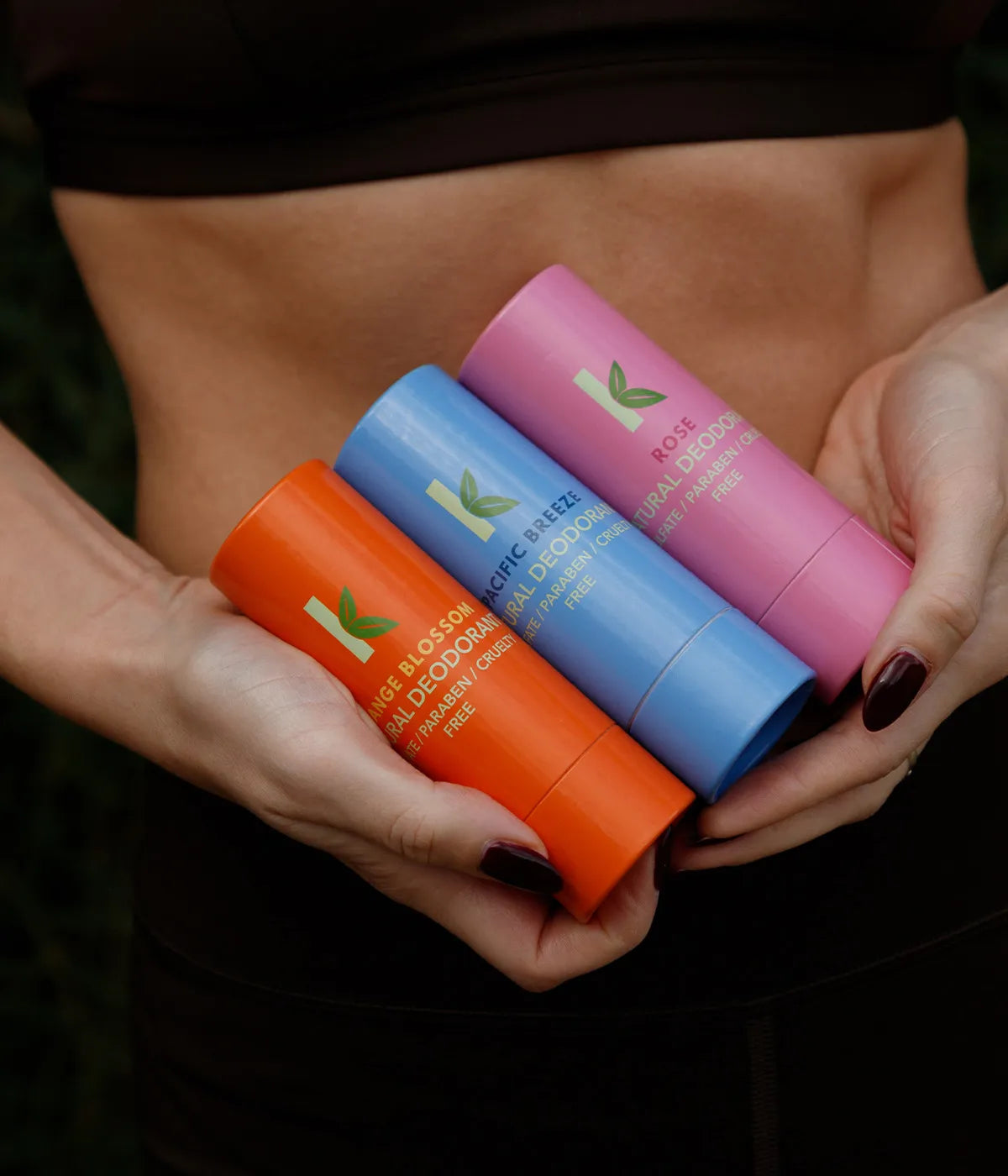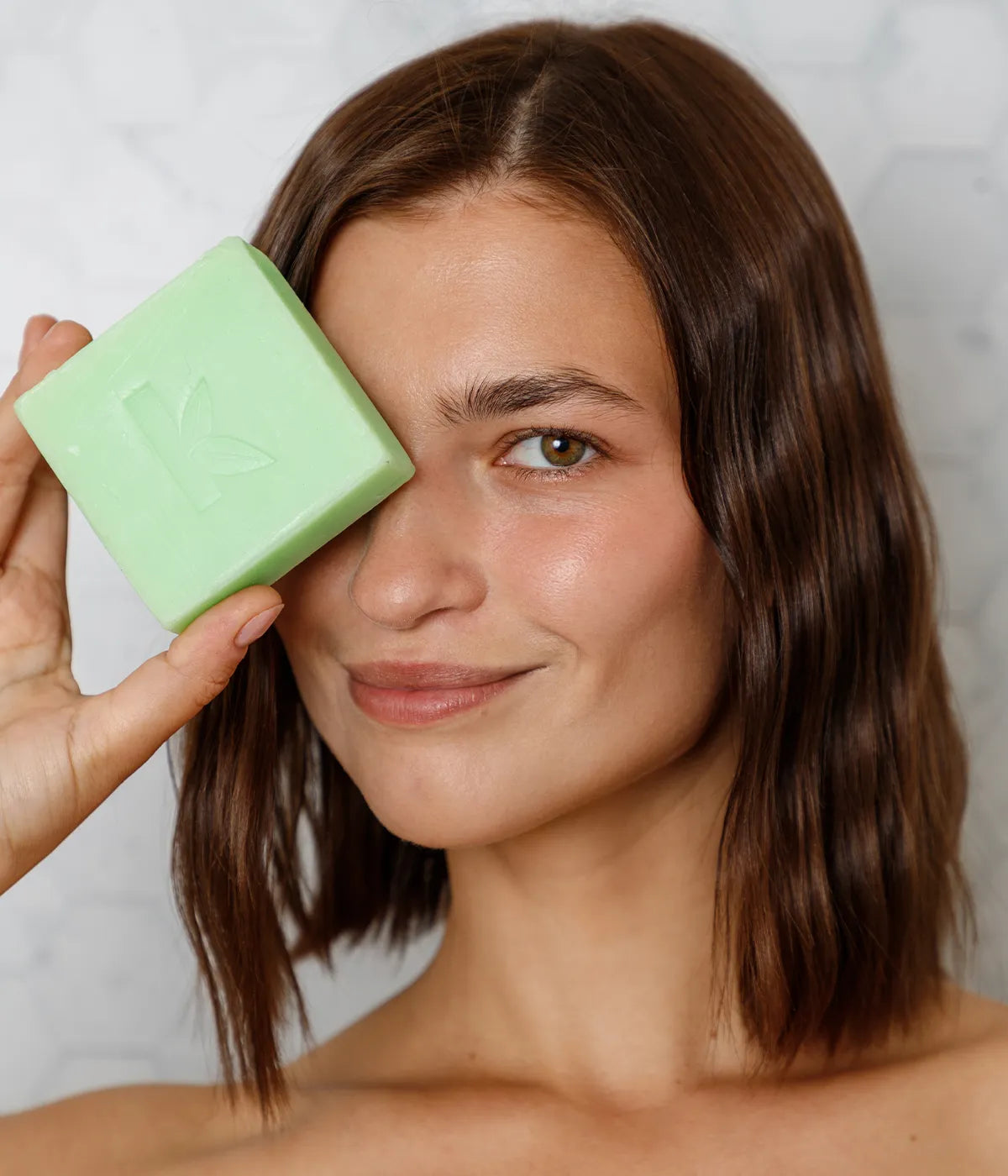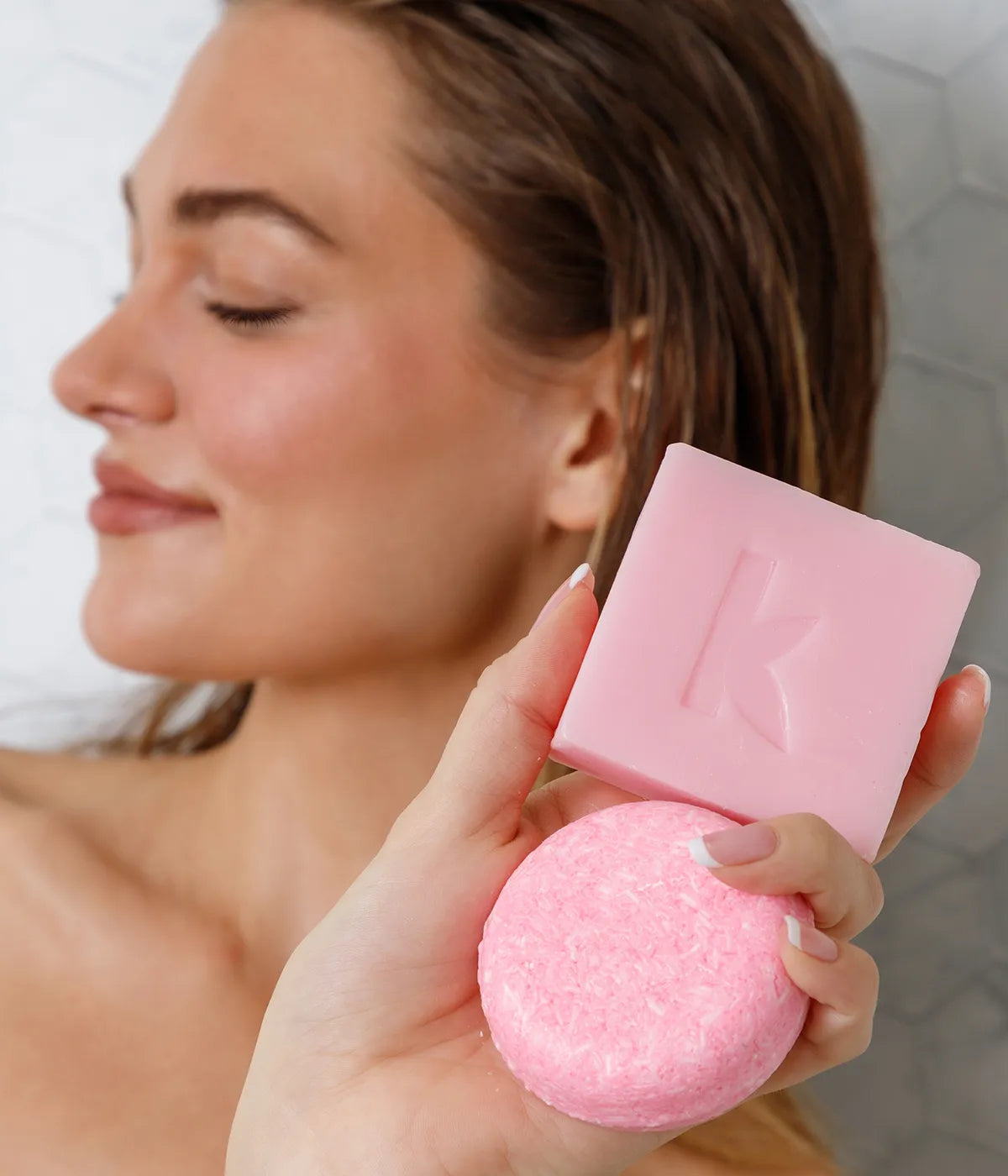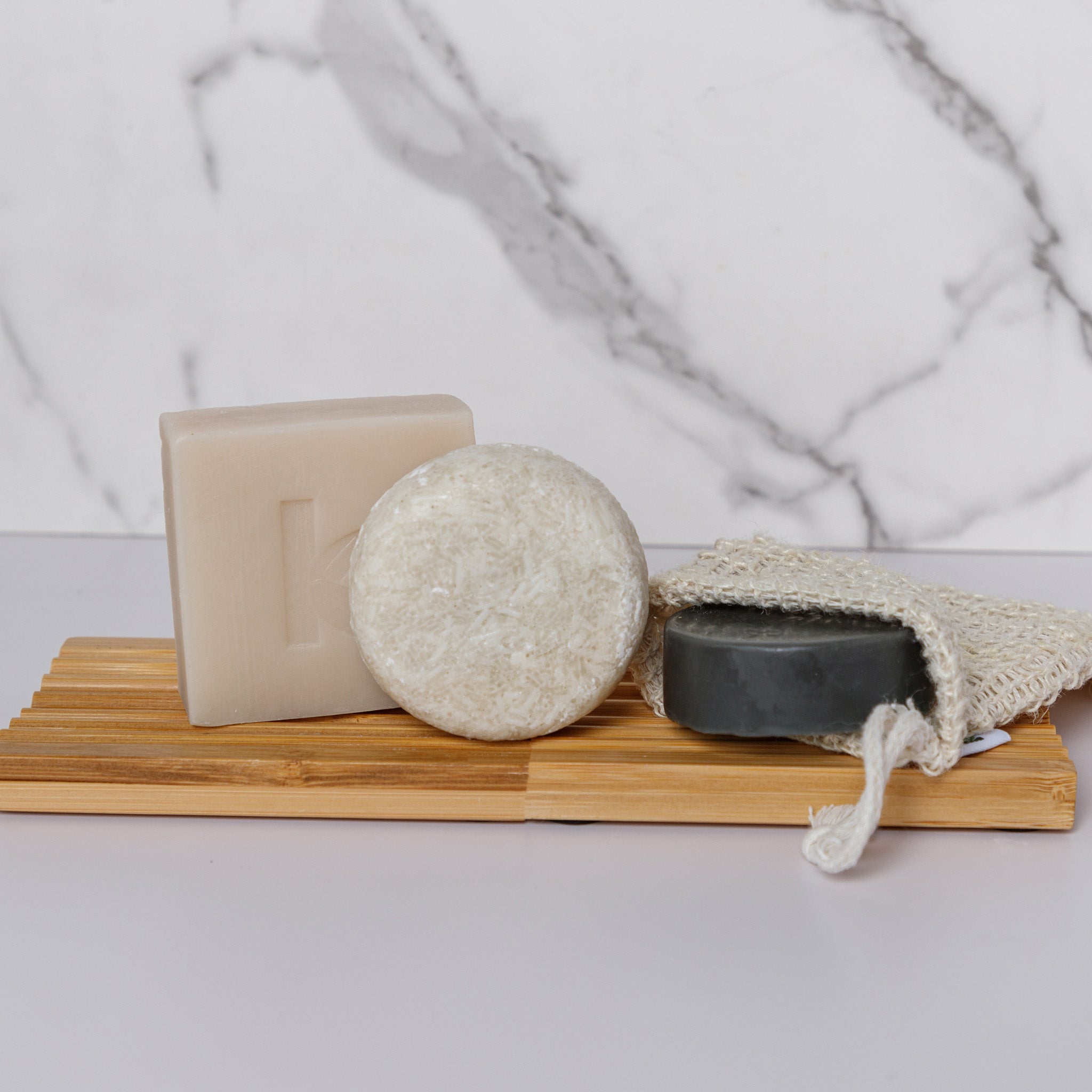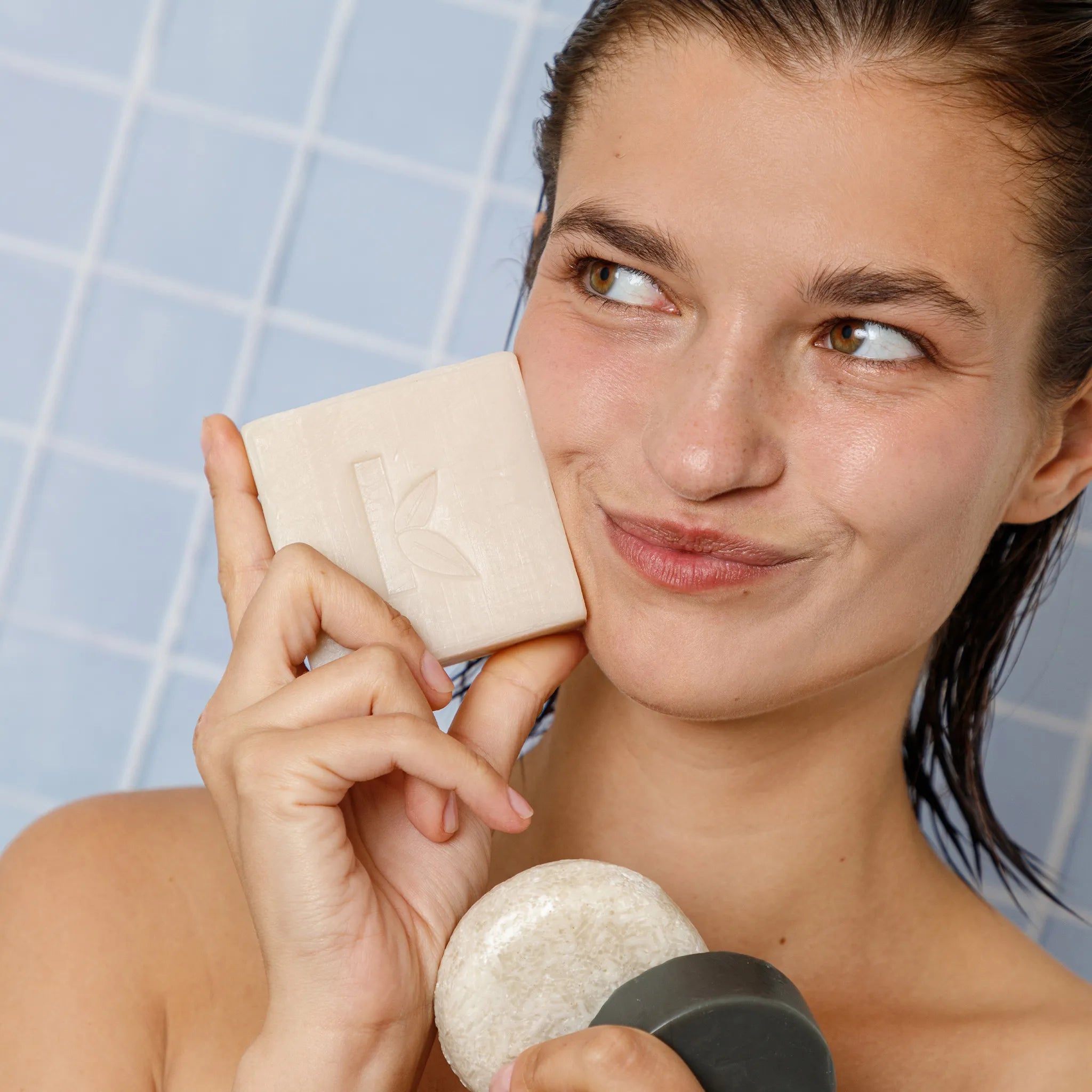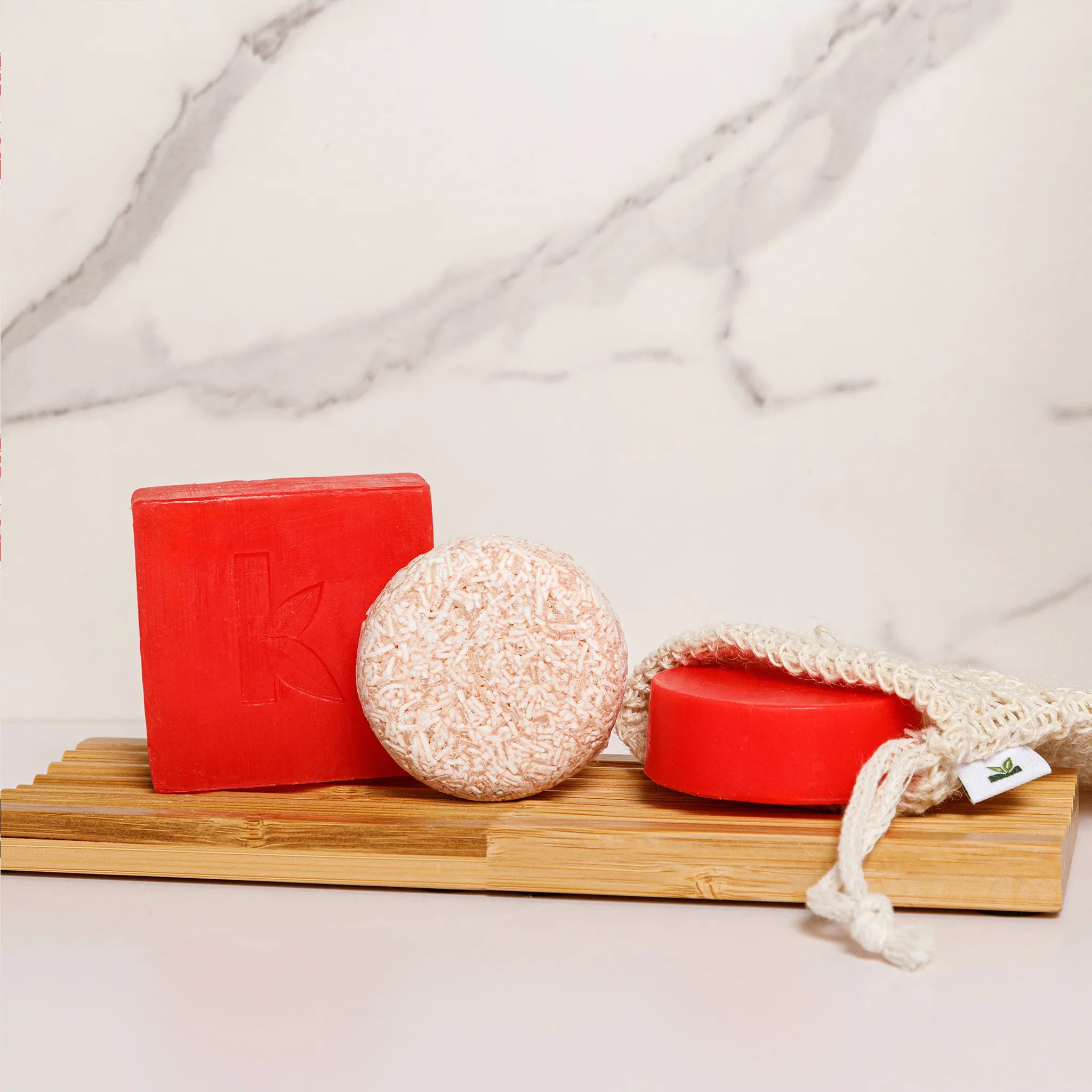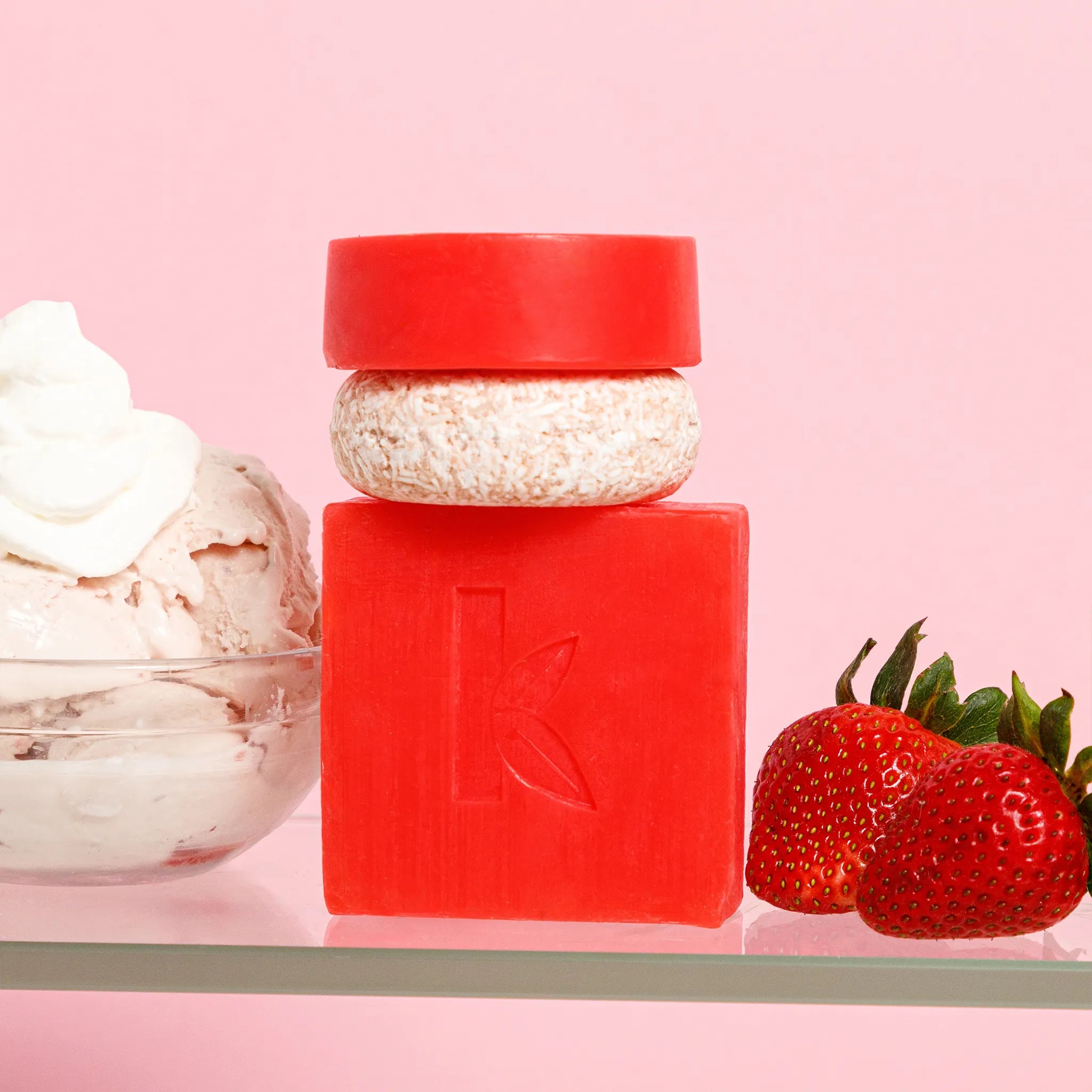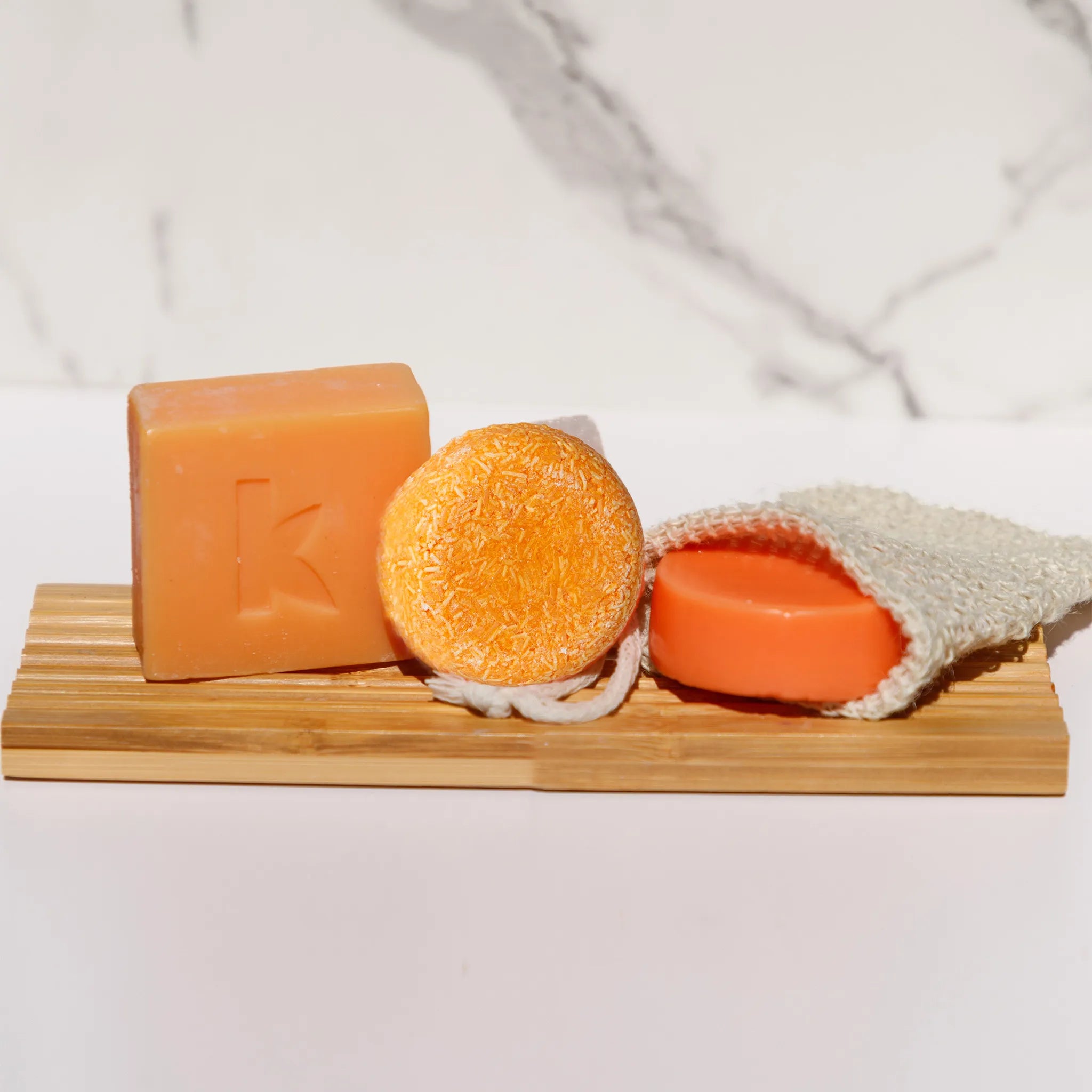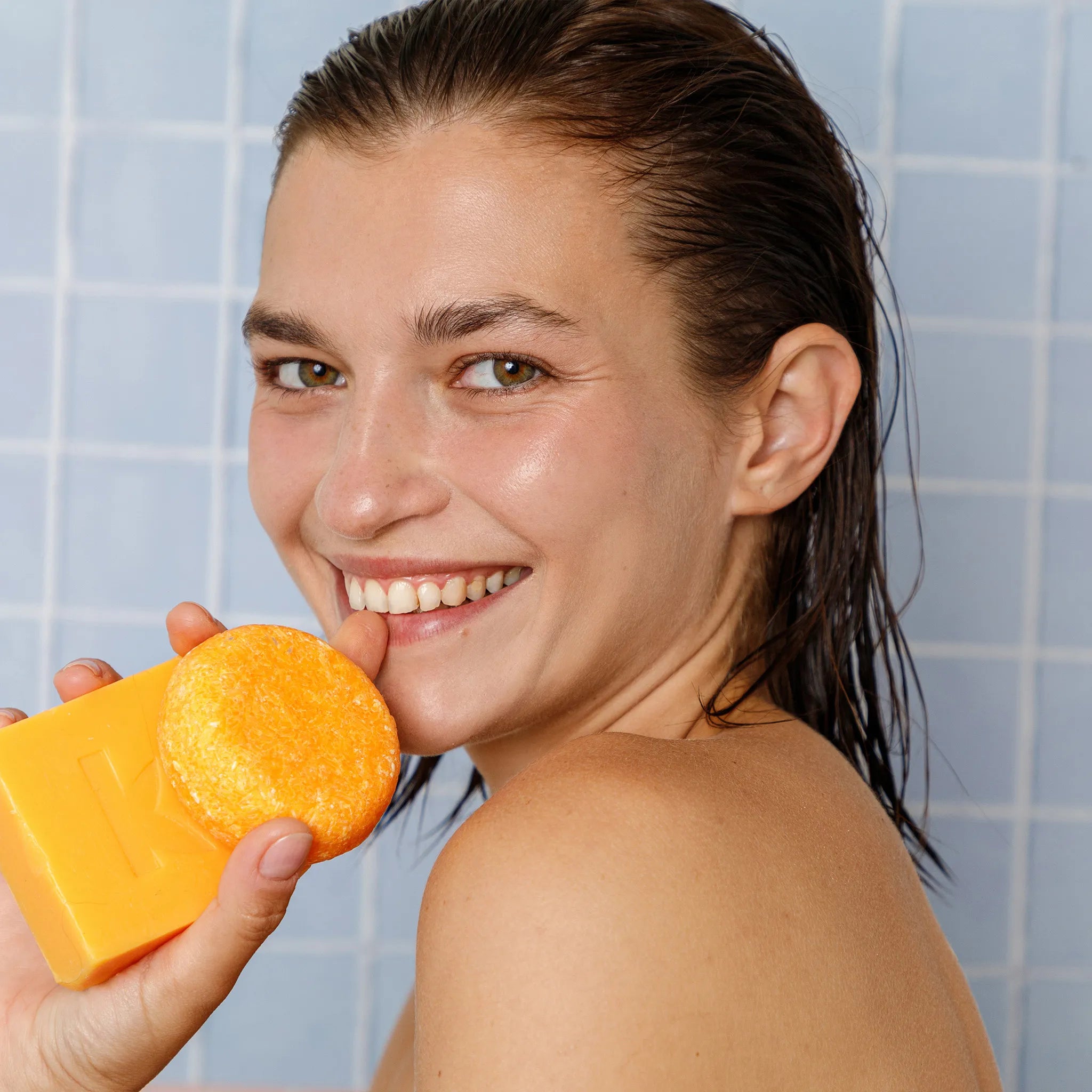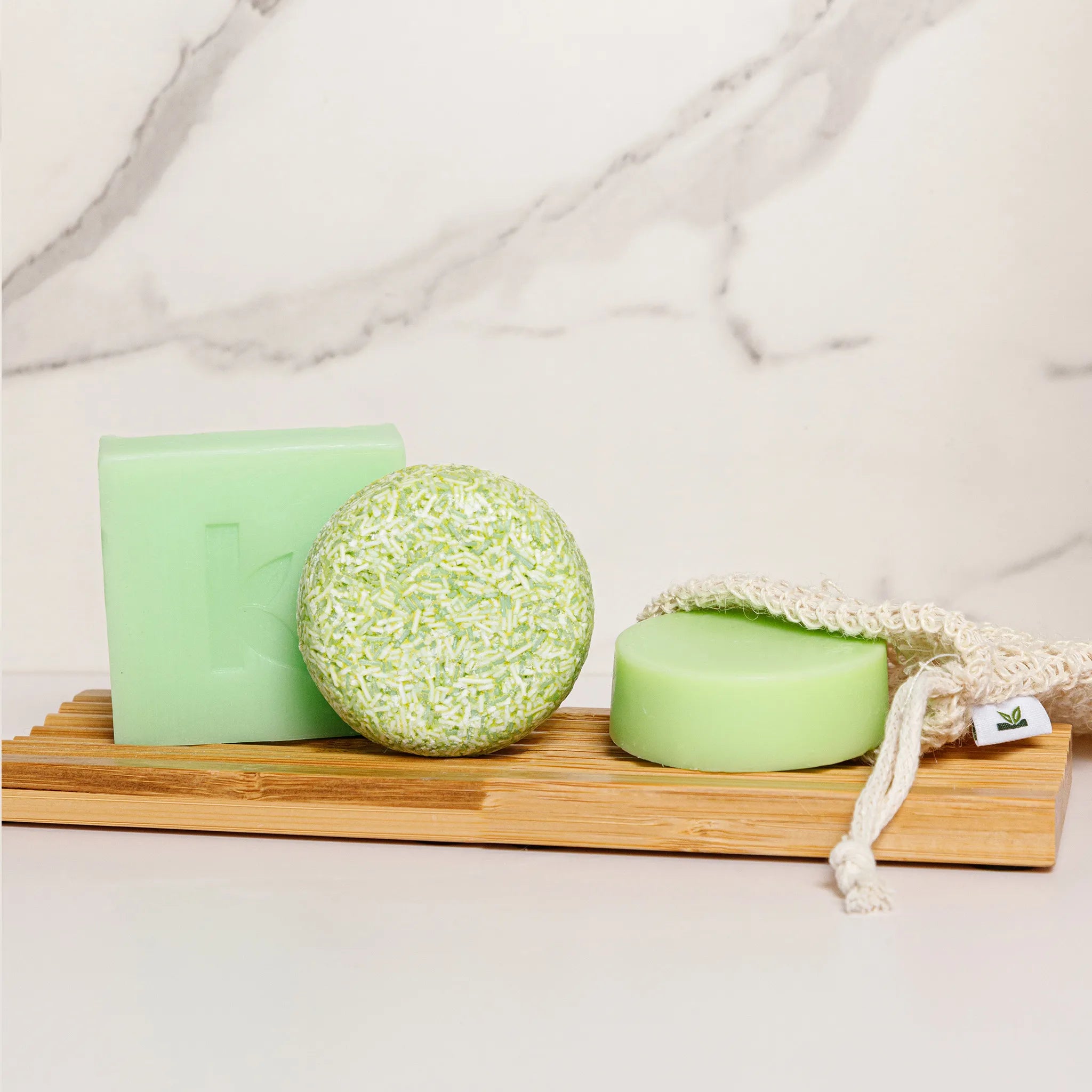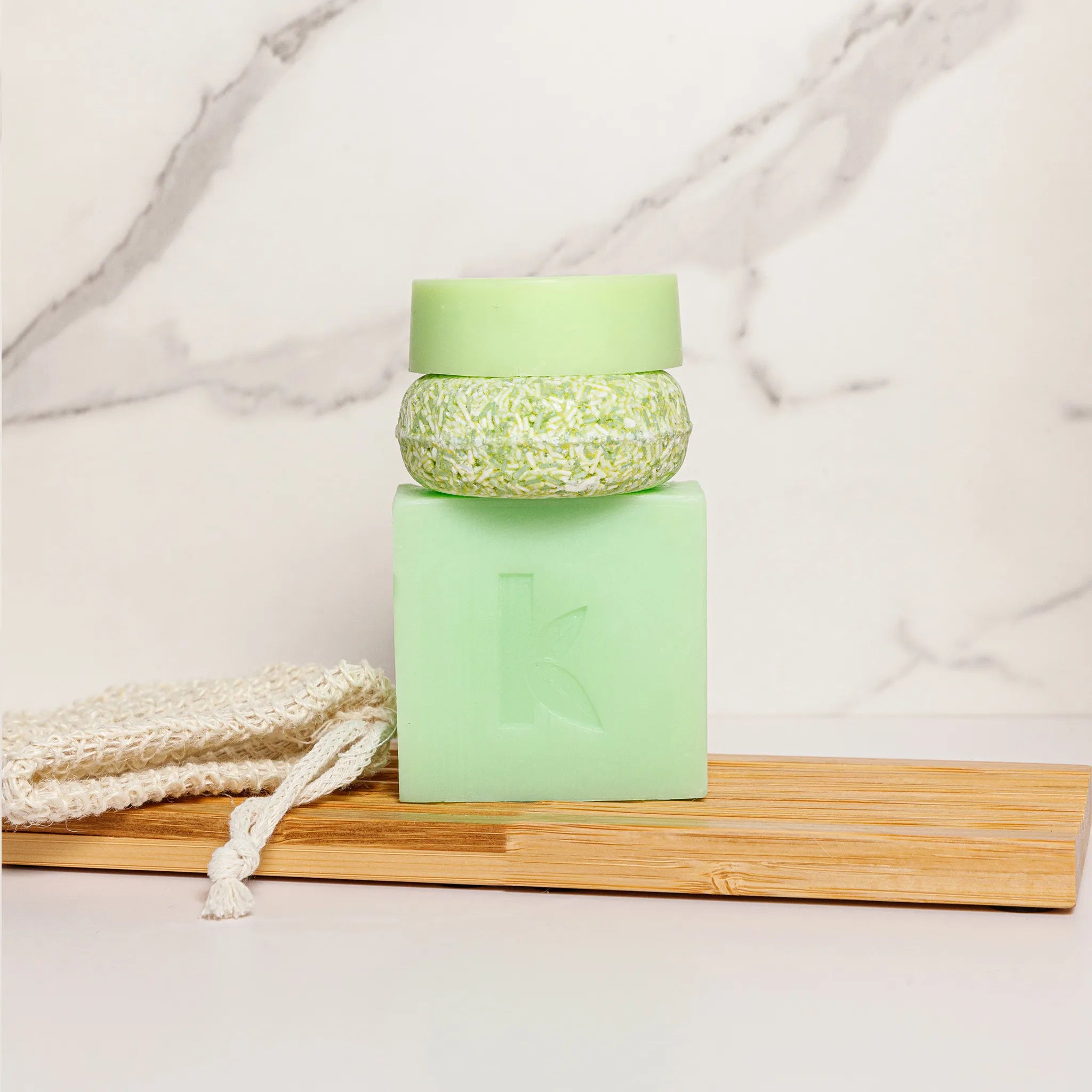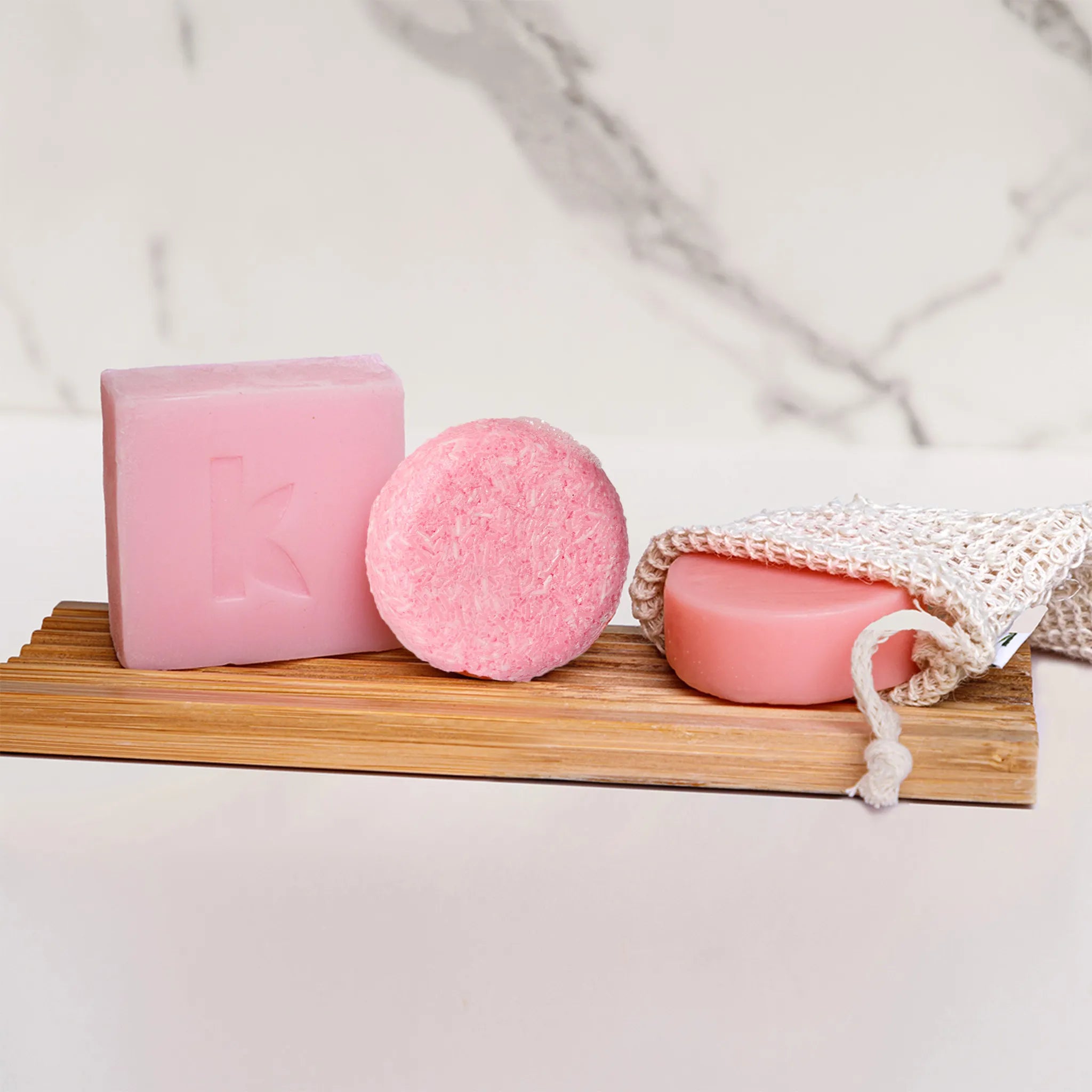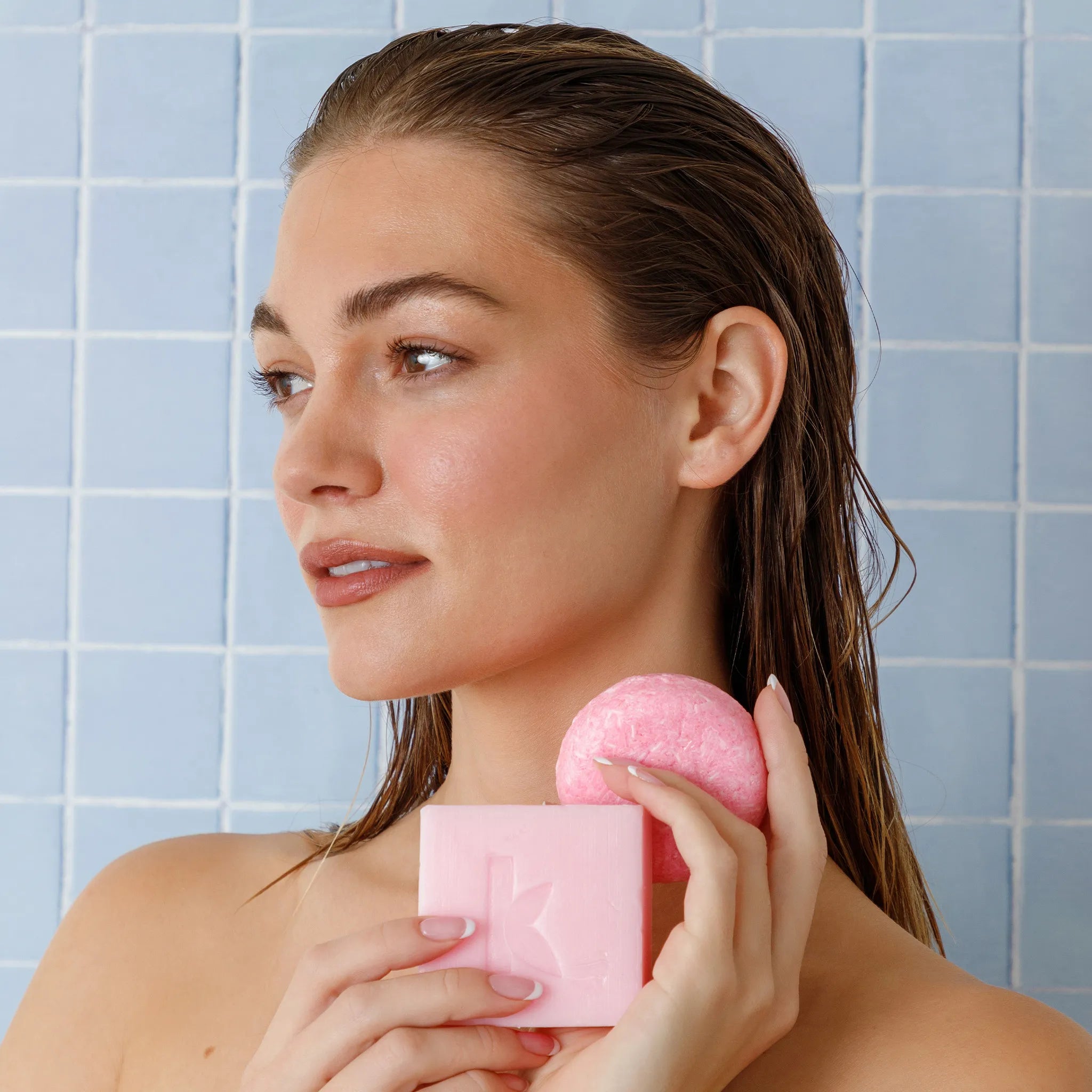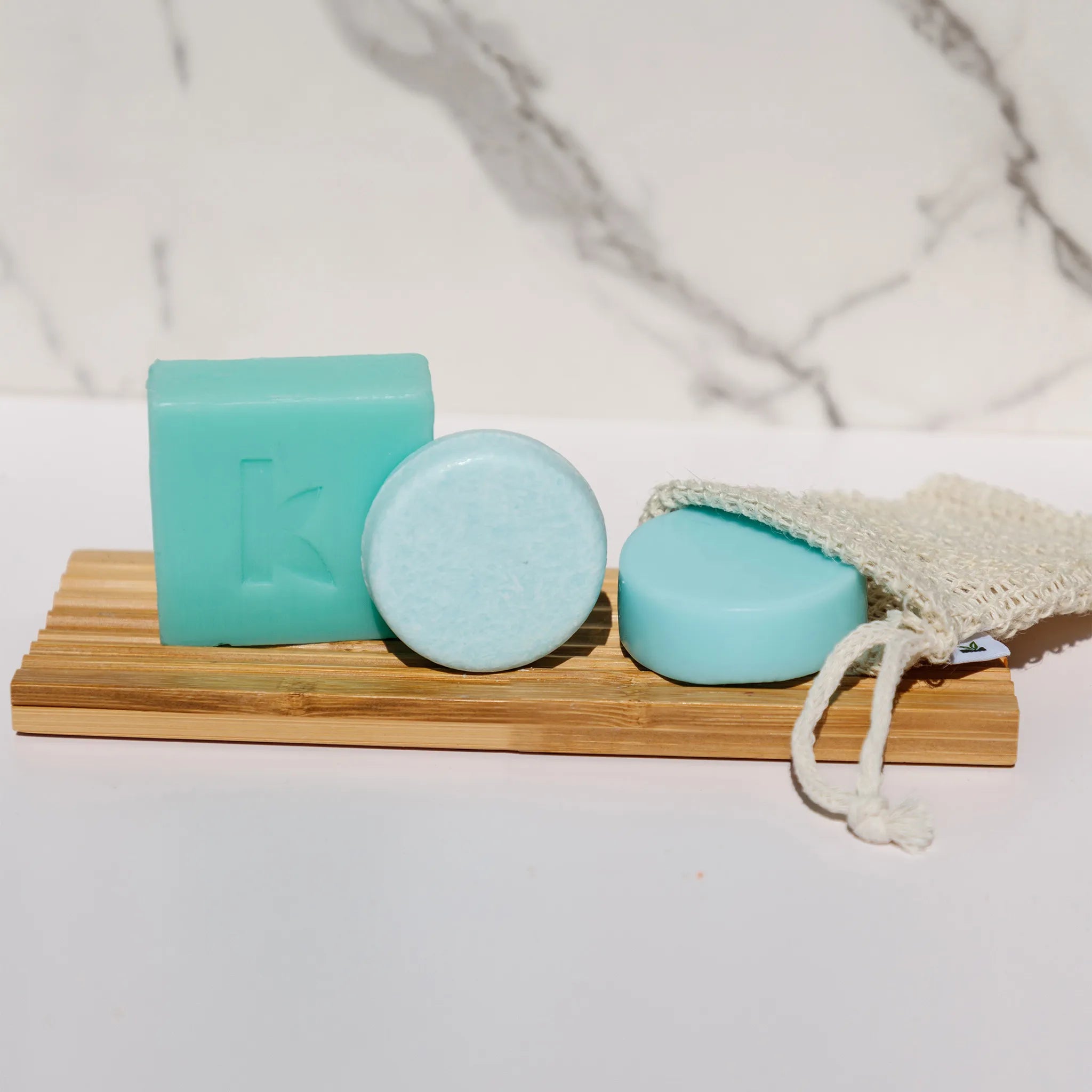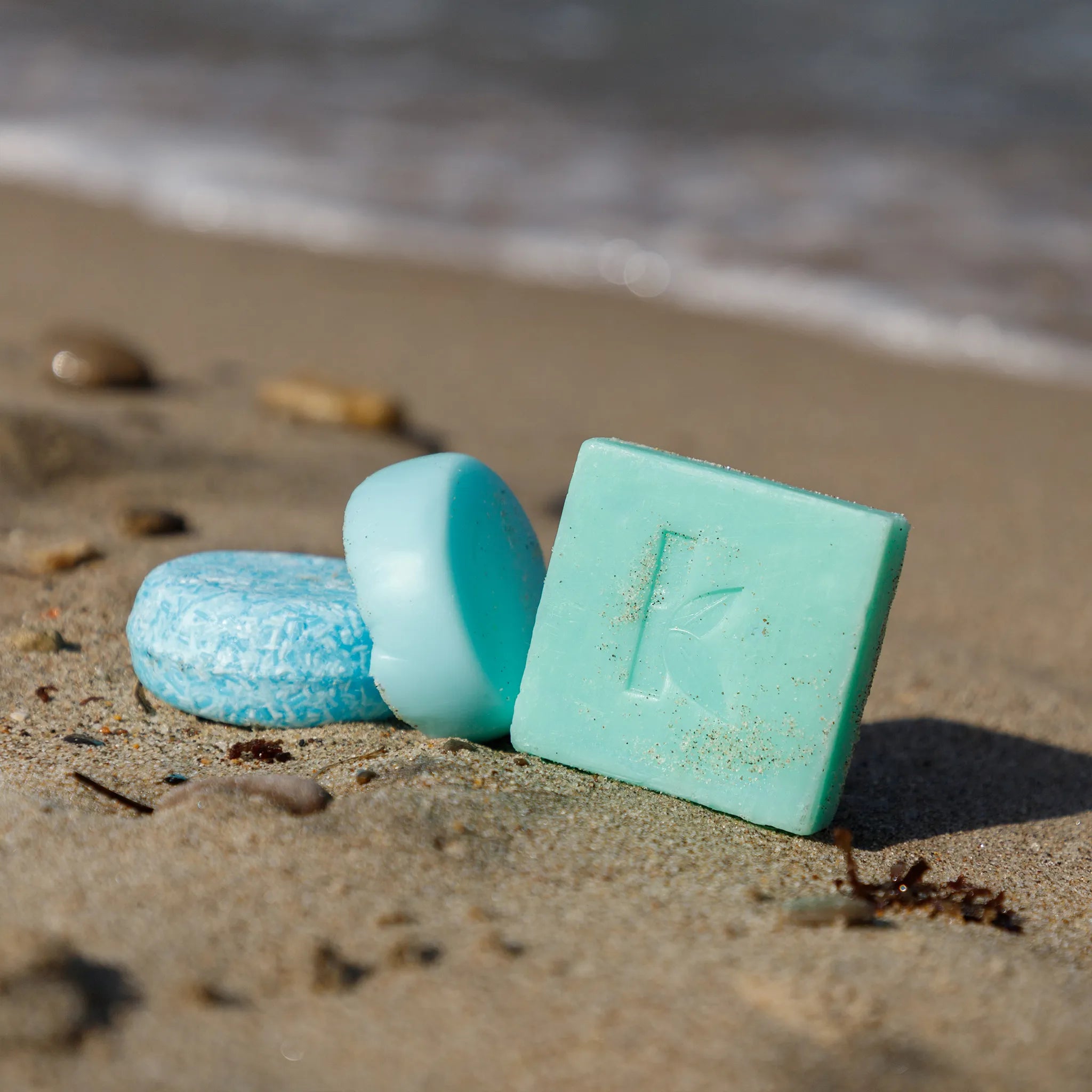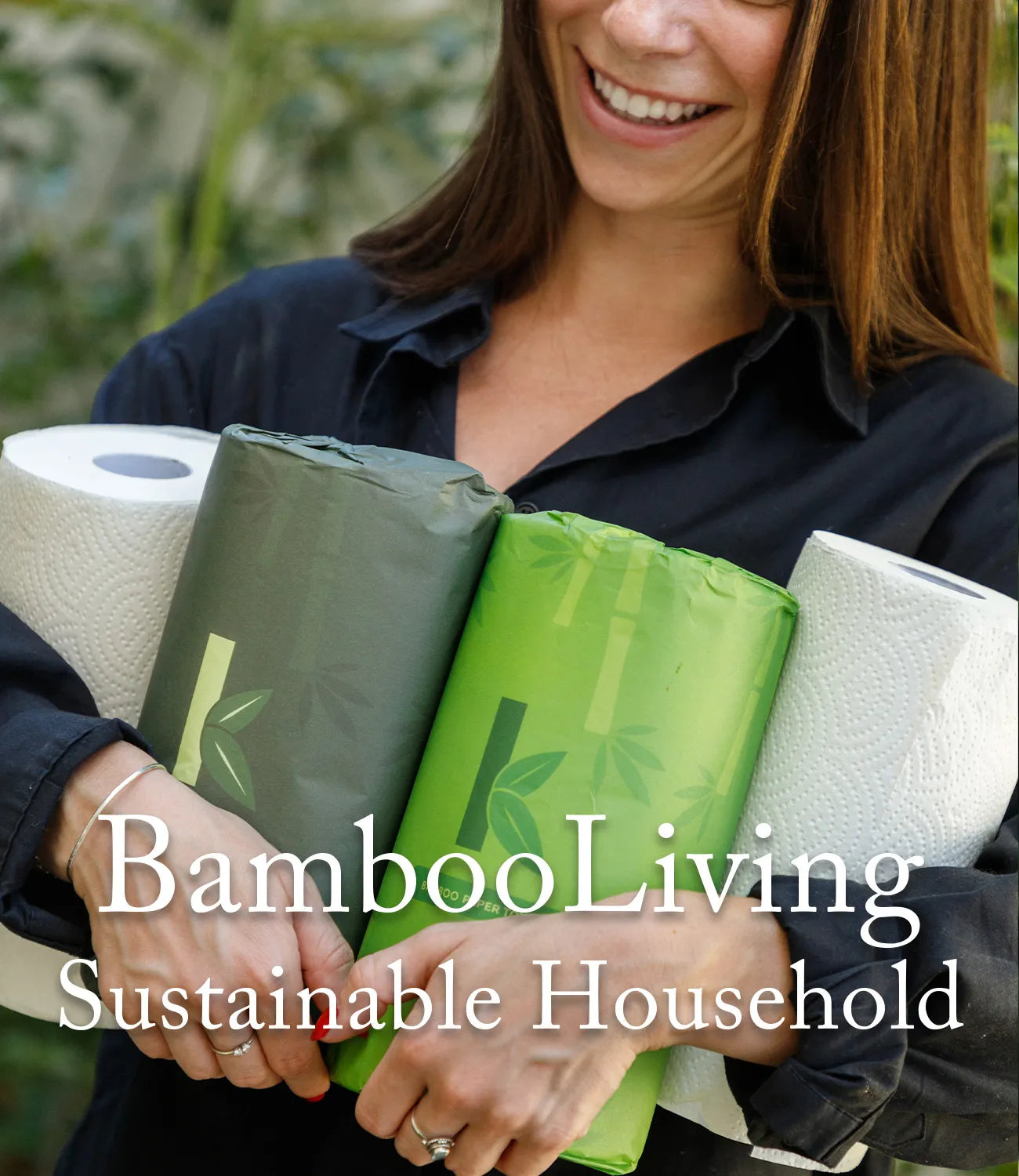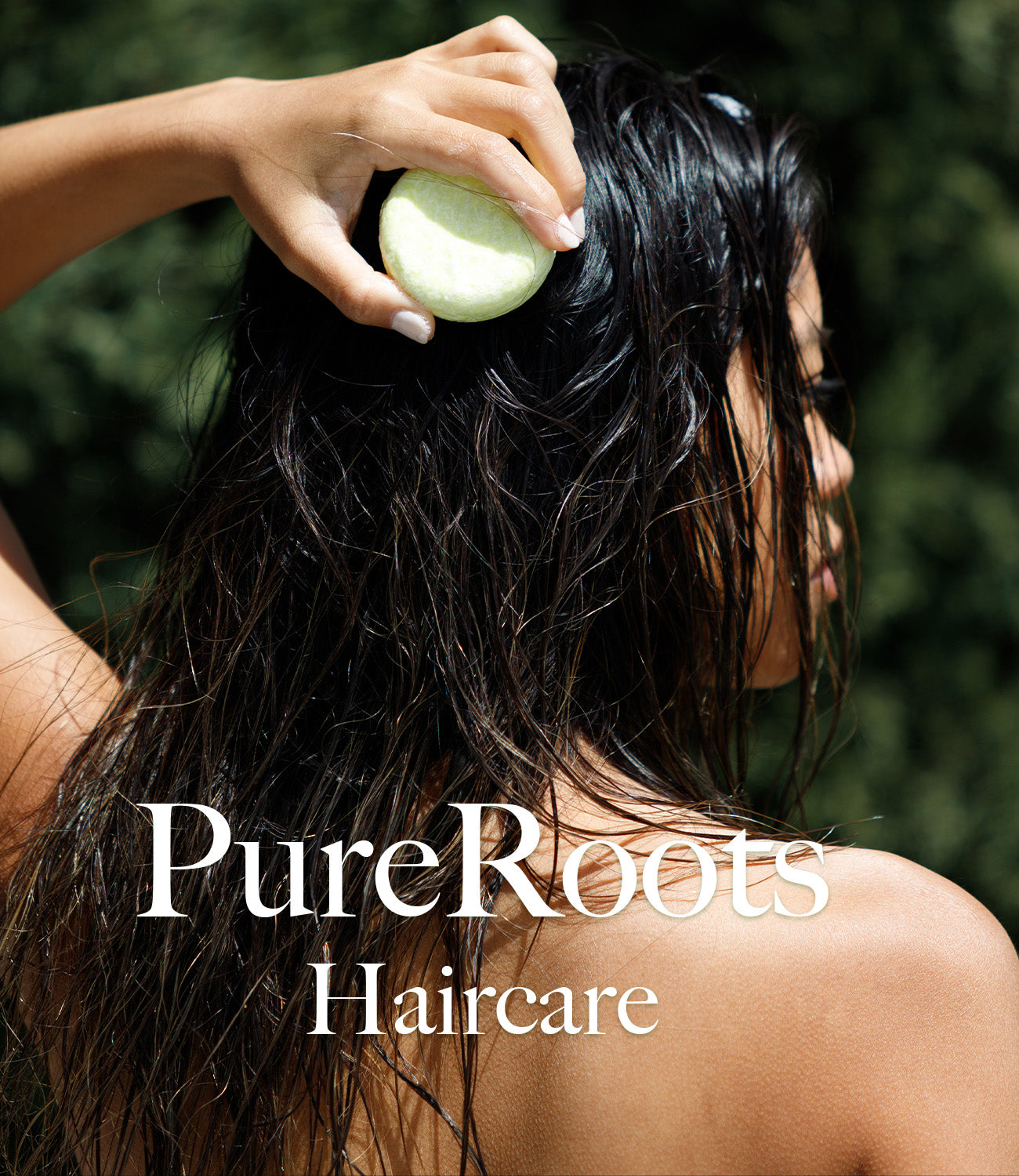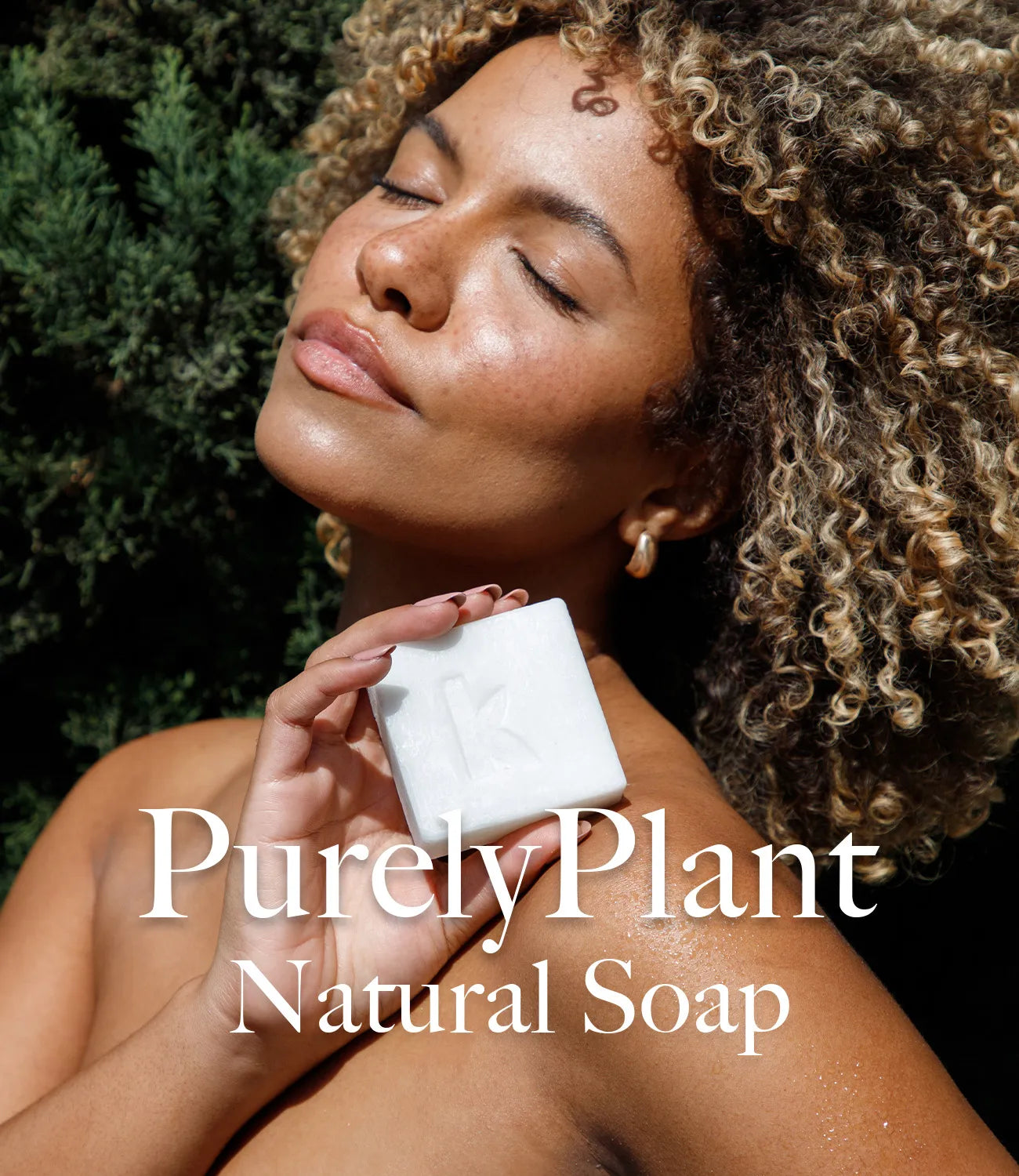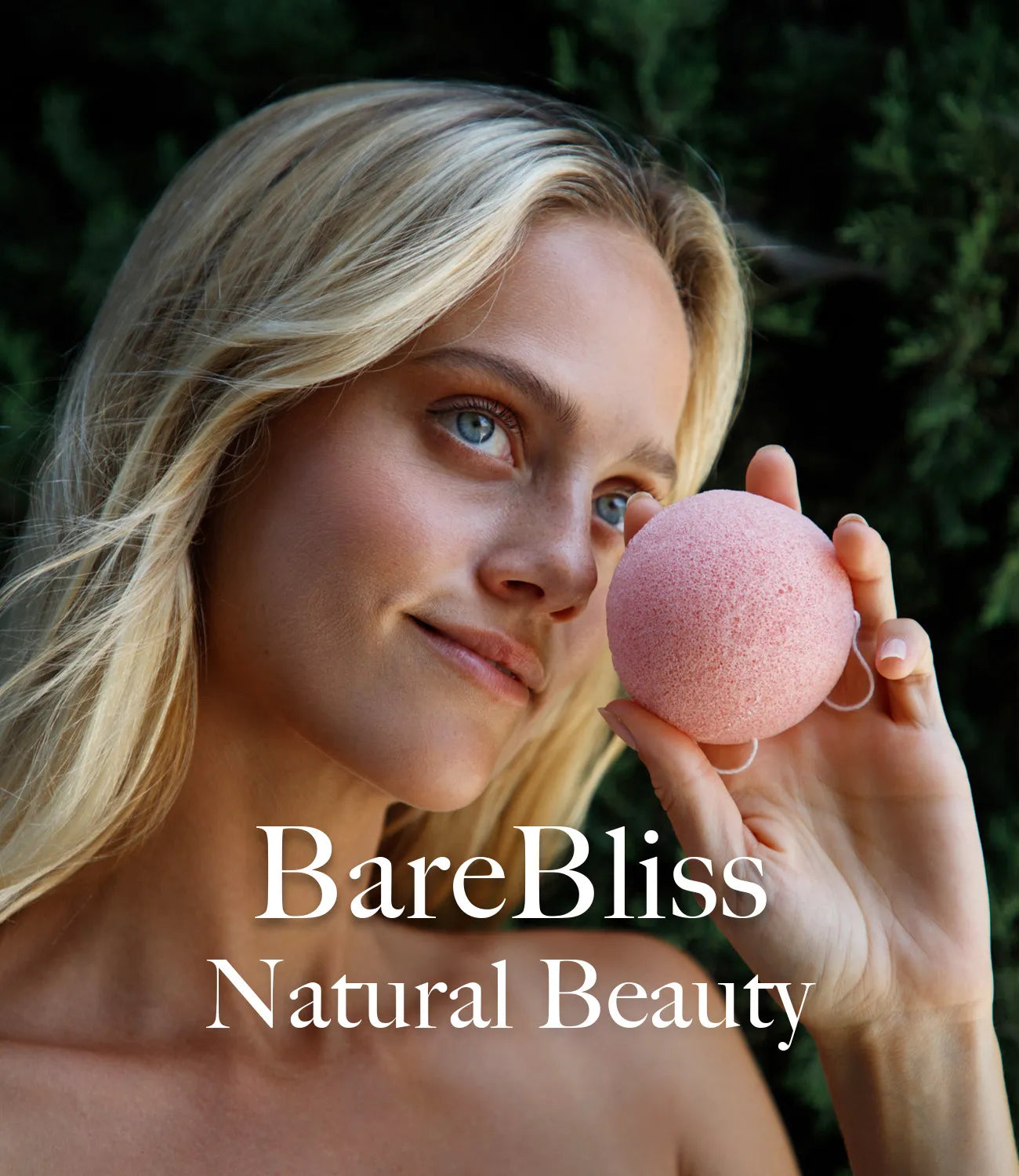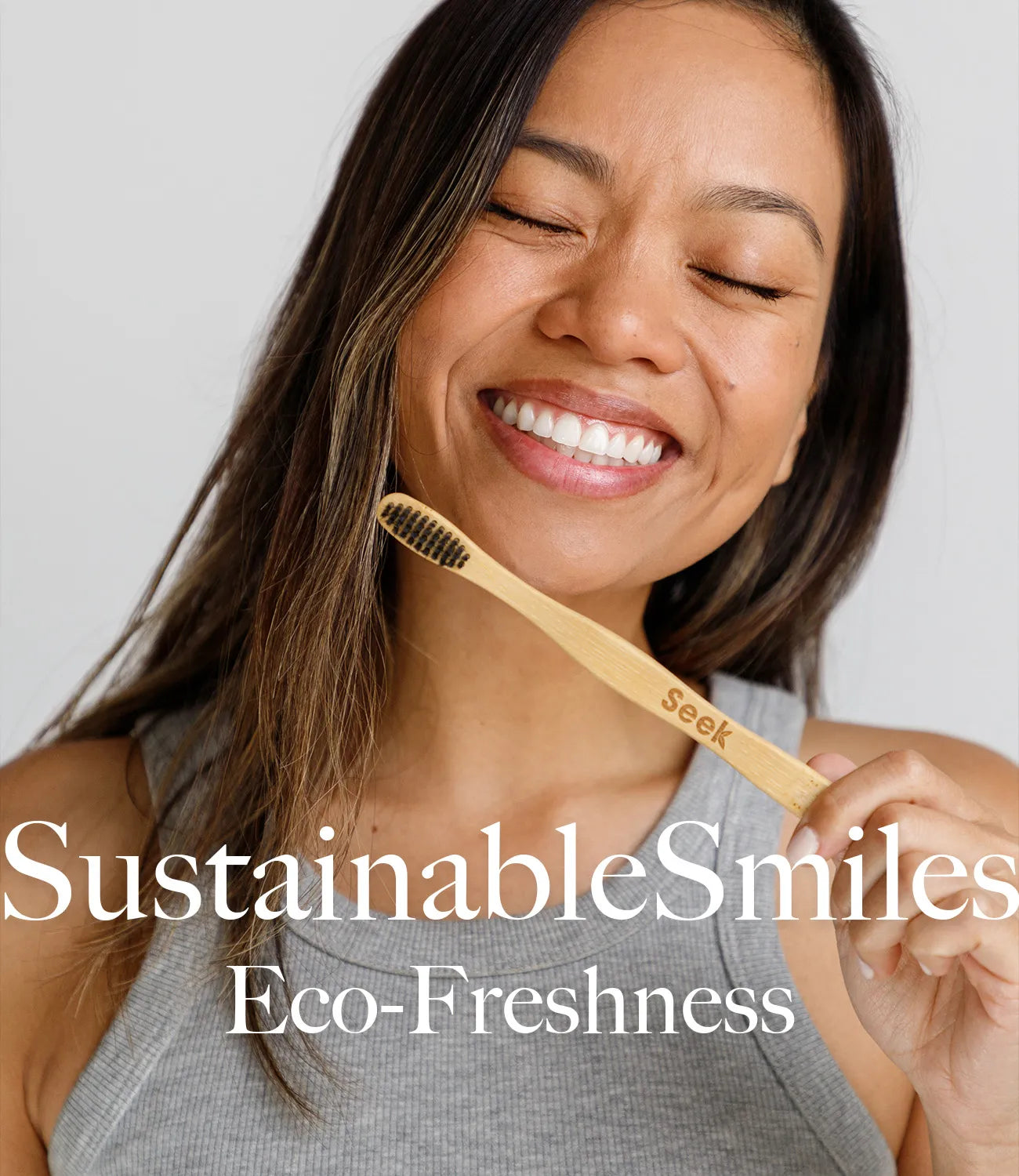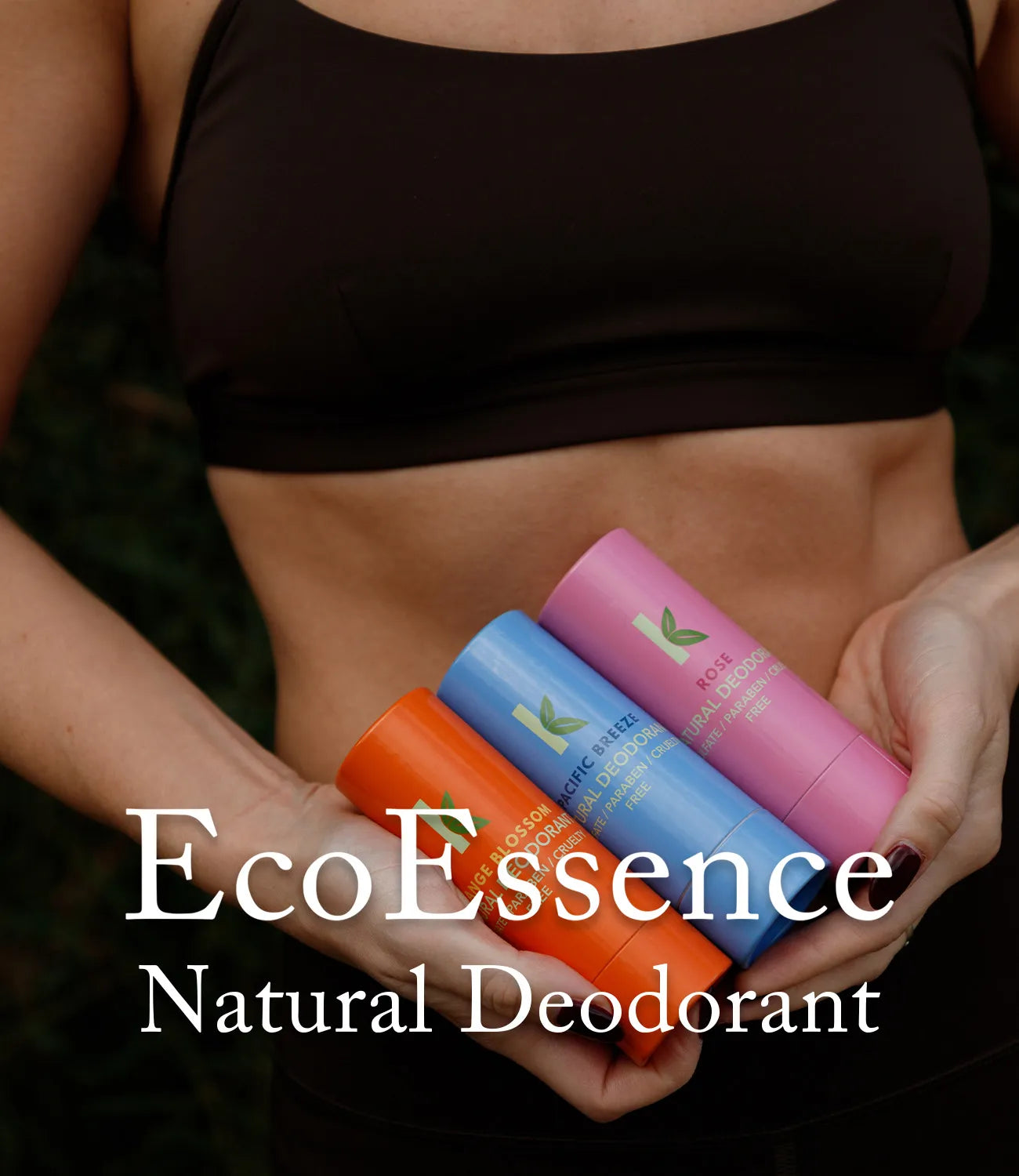Soap Solutions for Healthy Skin
Filters
32 products
Shower Bundles
Lathering Up Knowledge
Your Natural Soap FAQs Unwrapped
What are the benefits of using natural soap?
Natural soaps are made with organic and natural ingredients, which can be gentler on the skin compared to conventional soaps that often contain synthetic chemicals. The benefits of using natural soap include:
- Moisturizing Properties: Many natural soaps are enriched with oils like coconut, olive, and shea butter, which provide deep hydration and help maintain the skin's moisture barrier.
- No Harsh Chemicals: Natural soaps are free from synthetic fragrances, dyes, and preservatives, reducing the risk of skin irritation and allergic reactions.
- Rich in Nutrients: Ingredients such as essential oils, herbs, and plant extracts in natural soaps are rich in vitamins and antioxidants, promoting healthier and more radiant skin.
- Eco-Friendly: Natural soaps are often biodegradable and come in eco-friendly packaging, making them a sustainable choice for environmentally conscious consumers.
Is natural soap good for all skin types?
Yes, natural soap is generally suitable for all skin types, including sensitive, dry, oily, and combination skin. The key is to choose a natural soap with ingredients that cater to your specific skin needs:
- Sensitive Skin: Soaps with gentle ingredients like oatmeal, aloe vera, and chamomile can soothe and calm sensitive skin.
- Dry Skin: Soaps containing moisturizing agents like shea butter, cocoa butter, and glycerin help to hydrate and nourish dry skin.
- Oily Skin: Natural soaps with ingredients like tea tree oil, activated charcoal, and clay can help absorb excess oils and detoxify the skin without stripping its natural oils.
Can natural soap help with skin conditions like eczema and acne?
Natural soap can be beneficial for managing skin conditions such as eczema and acne due to its gentle and nourishing properties:
- Eczema: Soaps with ingredients like shea butter, olive oil, and oatmeal can help soothe the itching and irritation associated with eczema. These ingredients provide moisture and create a protective barrier on the skin.
- Acne: Natural soaps with antibacterial and anti-inflammatory ingredients such as tea tree oil, lavender, and neem can help reduce acne breakouts by cleansing the skin of bacteria and calming inflammation
How often should I use natural soap?
Natural soap can be used daily as part of your regular skincare routine. It is gentle enough for everyday use on both the face and body. For best results, use the soap during your morning and evening skincare routine to cleanse the skin and remove impurities. This regular use helps maintain skin hydration, balance oil production, and protect against environmental pollutants.
Is natural soap better for the environment?
Yes, natural soap is generally better for the environment compared to conventional soaps. Natural soaps are often made with biodegradable ingredients and free from harmful chemicals like parabens, sulfates, and synthetic fragrances, which can harm aquatic life and ecosystems. Additionally, many natural soap brands use eco-friendly packaging, such as recycled paper or cardboard, reducing plastic waste. Choosing natural soap is a conscious choice that supports both personal health and environmental sustainability.
What ingredients should I look for in natural soap?
When choosing natural soap, look for high-quality, nourishing ingredients that cater to your skin type and concerns. Key ingredients to consider include:
- Oils and Butters: Ingredients like olive oil, coconut oil, shea butter, and cocoa butter provide moisturizing and nourishing benefits.
- Essential Oils: Essential oils such as lavender, tea tree, eucalyptus, and chamomile add natural fragrance and offer therapeutic properties like antibacterial, anti-inflammatory, and calming effects.
- Herbs and Botanicals: Ingredients like calendula, aloe vera, and green tea can soothe the skin, reduce inflammation, and provide antioxidants.
- Exfoliants: Natural exfoliants like oatmeal, ground almonds, or coffee grounds help remove dead skin cells and promote smooth, glowing skin.
How is natural soap made?
Natural soap is typically made using the traditional cold process method, which involves saponification—a chemical reaction between fats or oils and a strong alkali, such as lye. The basic steps include:
- Choosing the Oils: A blend of oils and butters is selected based on desired properties, such as moisturizing or cleansing.
- Mixing with Lye: Lye (sodium hydroxide) is mixed with water and then combined with the oils. The mixture is stirred until it reaches "trace," the point at which it thickens.
- Adding Additives: Essential oils, herbs, colorants, and exfoliants are added to enhance the soap's properties and appearance.
- Pouring and Curing: The soap mixture is poured into molds and left to harden. After unmolding, the soap is cured for several weeks to ensure all the lye has reacted, making it safe for use
Why is natural soap more expensive than commercial soap?
Natural soap is often more expensive than commercial soap due to several factors:
- Quality of Ingredients: Natural soaps use high-quality, often organic ingredients, which can be more costly than the synthetic additives found in commercial soaps.
- Handmade Process: Many natural soaps are handcrafted in small batches, which involves more labor and time compared to mass-produced commercial soaps.
- Sustainability: Natural soap producers often prioritize sustainable practices, including eco-friendly packaging and fair trade ingredients, which can add to the cost.
- Health Benefits: The absence of harmful chemicals and the inclusion of beneficial natural ingredients make natural soap a premium product for skin health.
Can natural soap expire?
Yes, natural soap can expire. While it doesn't "go bad" in the same way food does, natural soap can lose its scent, color, and effectiveness over time. The shelf life of natural soap typically ranges from 12 to 24 months, depending on the ingredients used. Factors that can affect the shelf life include:
- Essential Oils: These can lose potency over time, reducing the soap's fragrance and therapeutic benefits.
- Natural Colorants: Ingredients like herbs and clays may fade or change color as the soap ages.
- Storage Conditions: Storing soap in a cool, dry place away from direct sunlight can help extend its shelf life. It's best to use natural soap within a year of purchase for optimal benefits.
Is natural soap safe for babies and children?
Natural soap can be safe for babies and children, provided it is free from harsh chemicals, synthetic fragrances, and potential allergens. When selecting natural soap for young skin, consider the following:
- Mild Formulation: Choose soaps with gentle, nourishing ingredients like olive oil, shea butter, and chamomile, which are less likely to irritate sensitive skin.
- Fragrance-Free: Opt for fragrance-free or lightly scented soaps using natural essential oils that are safe for children, such as lavender or chamomile.
- Allergy Considerations: Check the ingredient list for potential allergens, especially if your child has known sensitivities or allergies. Always perform a patch test before using a new soap on a child's skin.
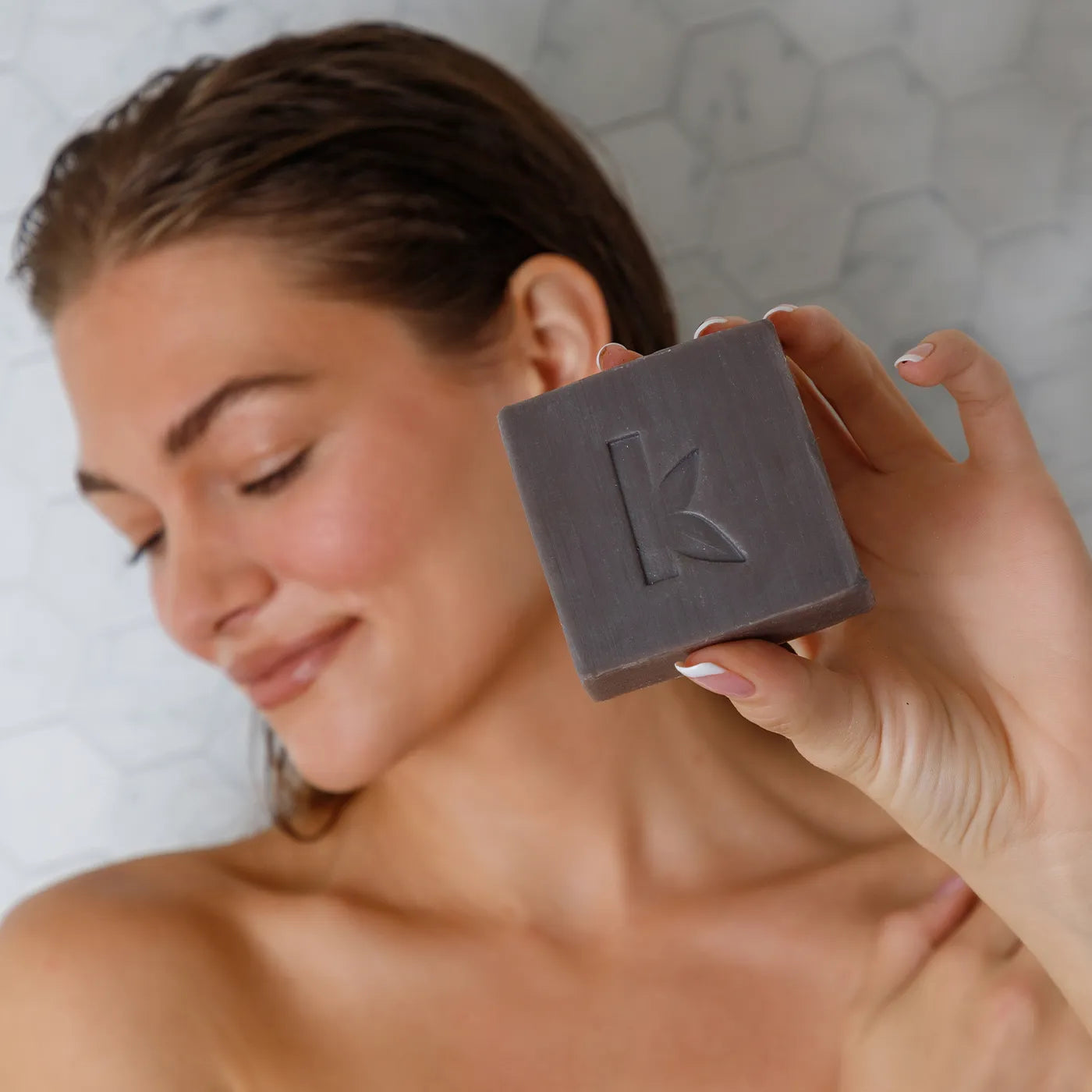
What Is Natural Soap?
Seems like a funny question, but there IS a difference. Not all soaps are equal.
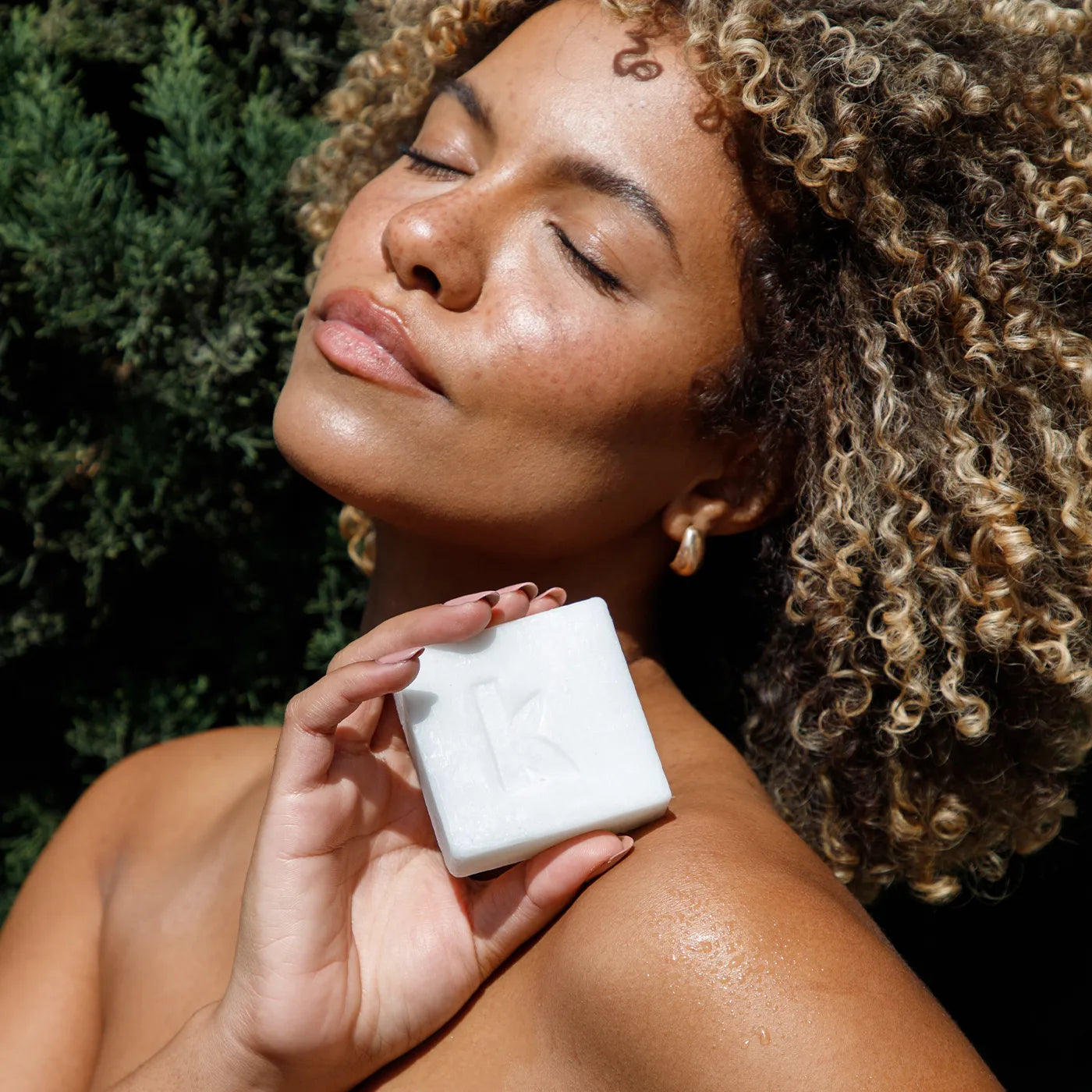
Which Natural Soap For Me?
We are unique and so should be our soap selection. Learn which one is for you!






